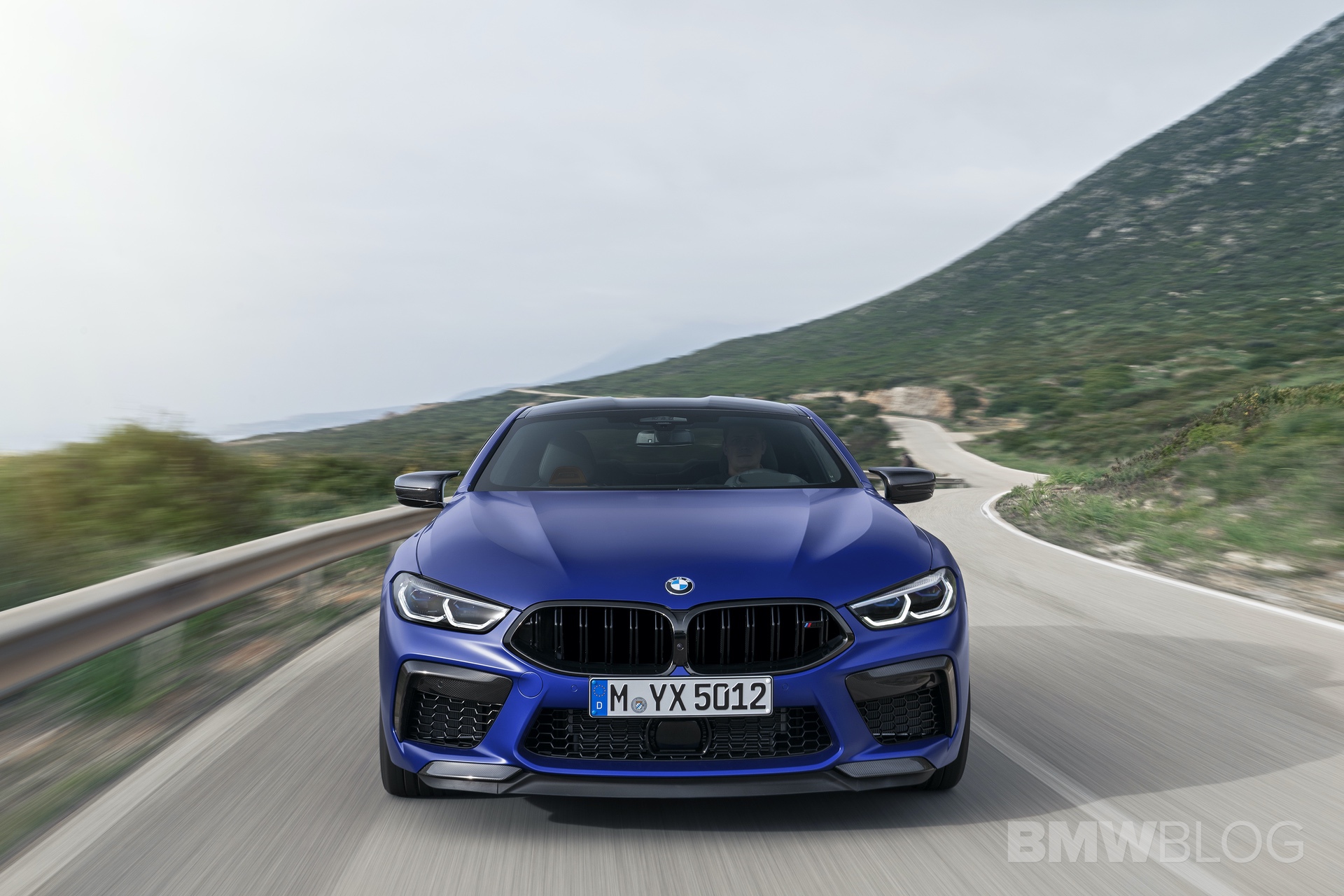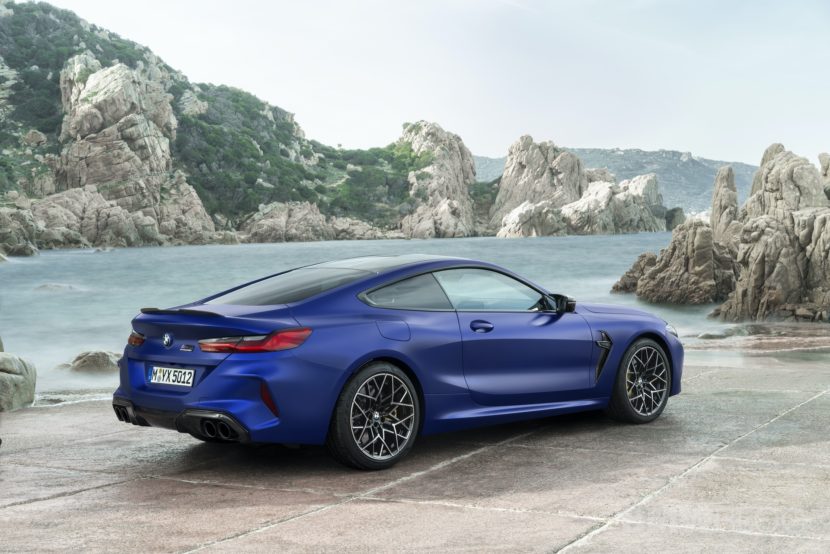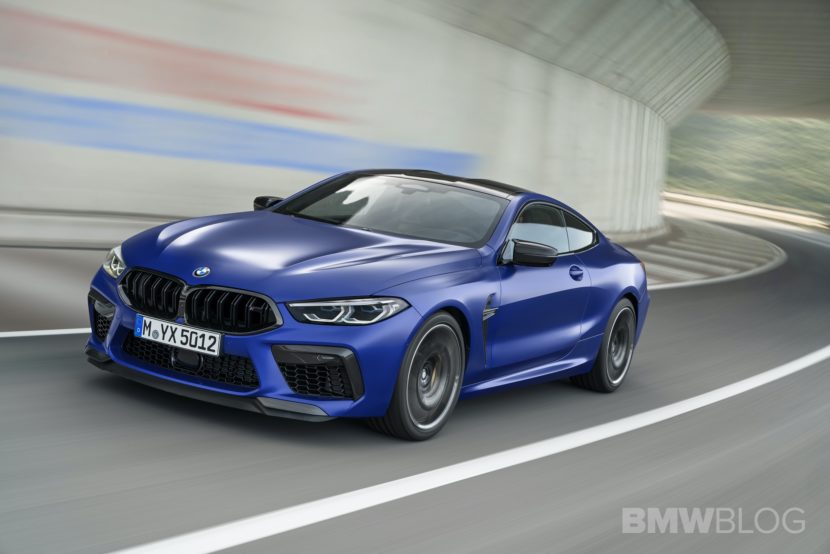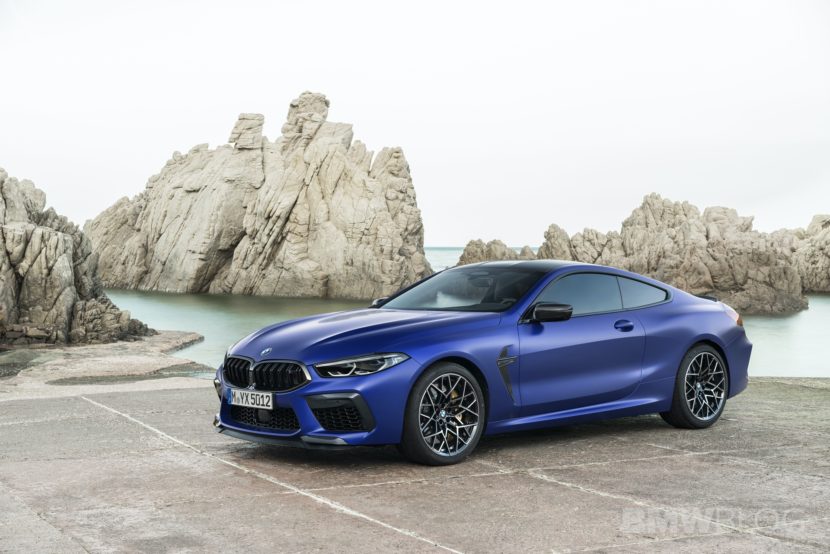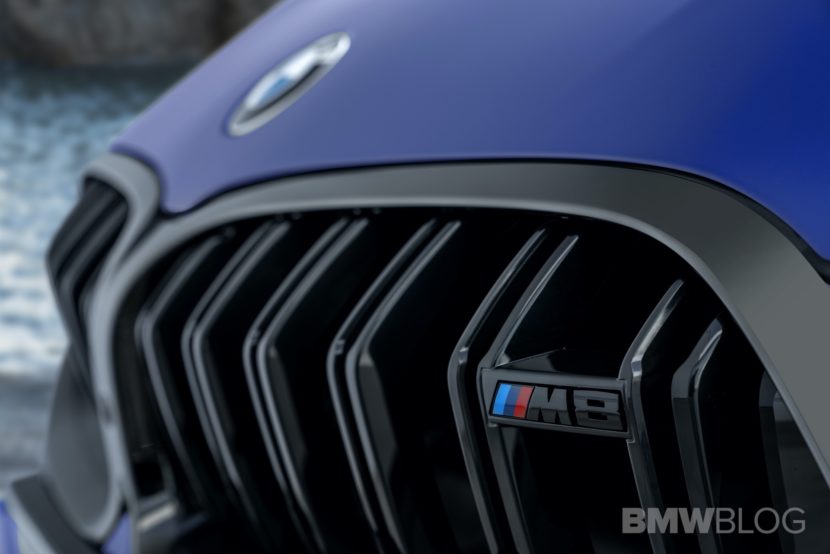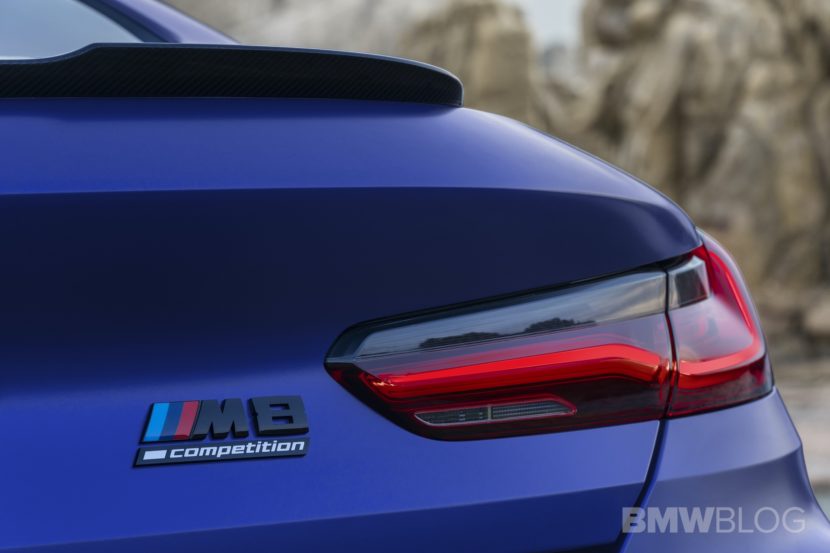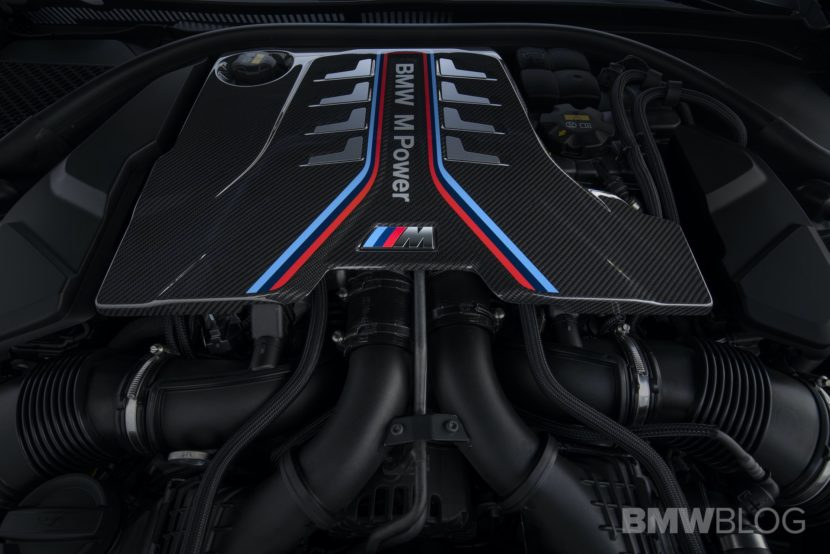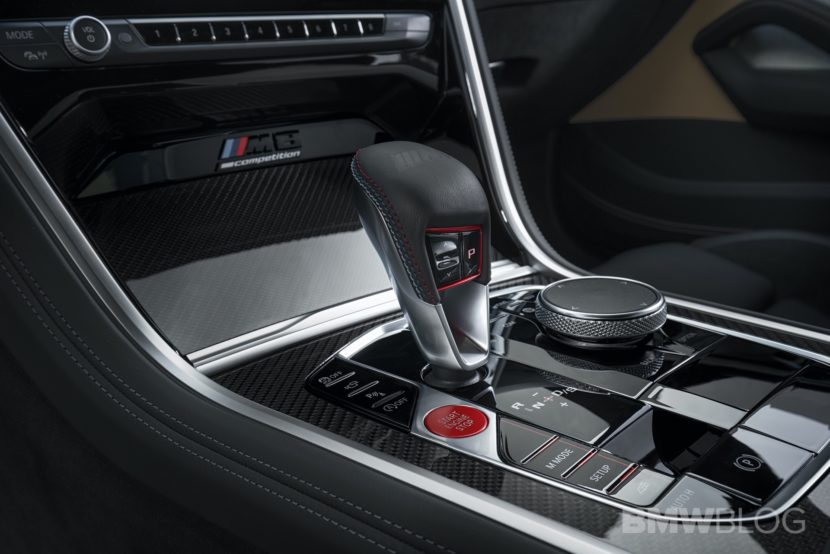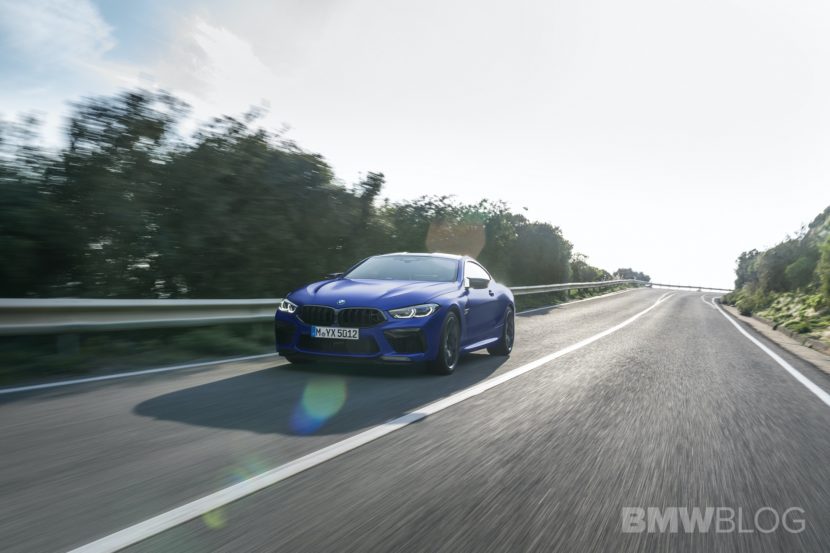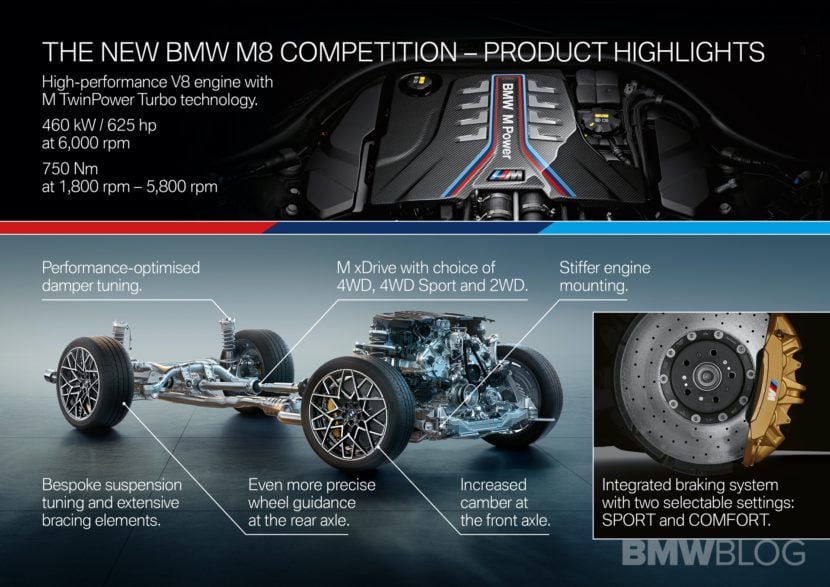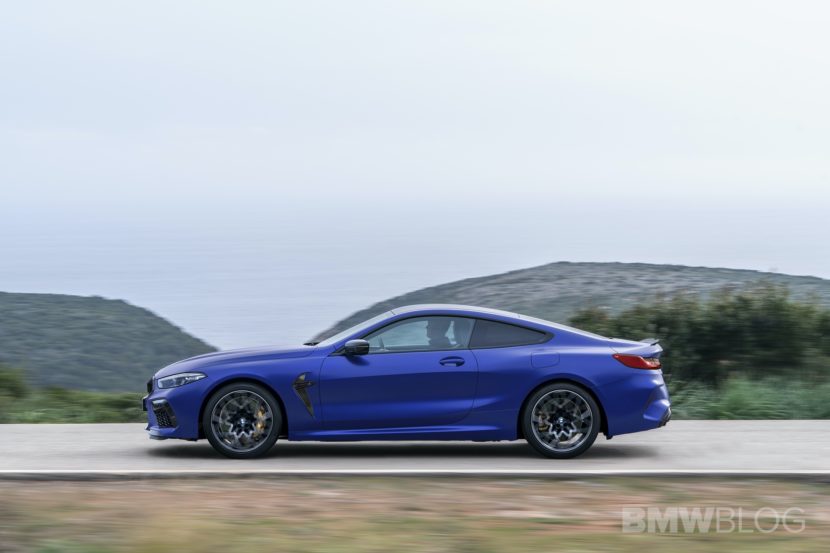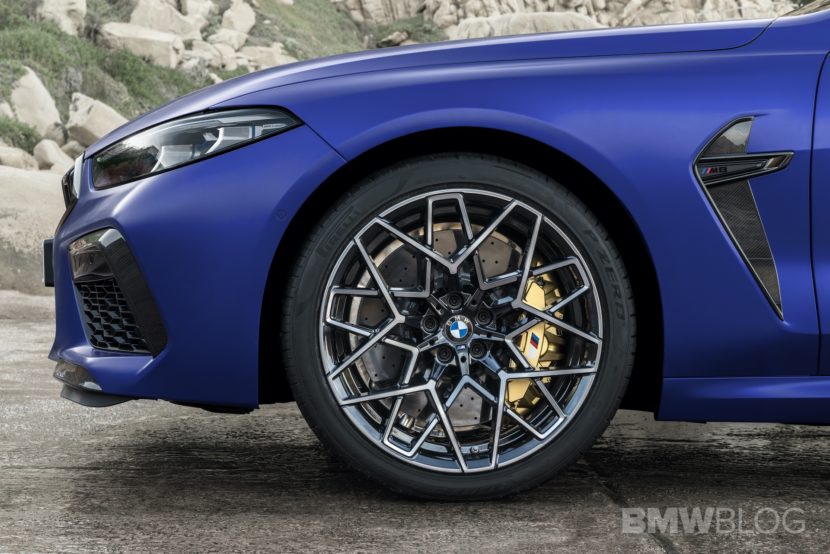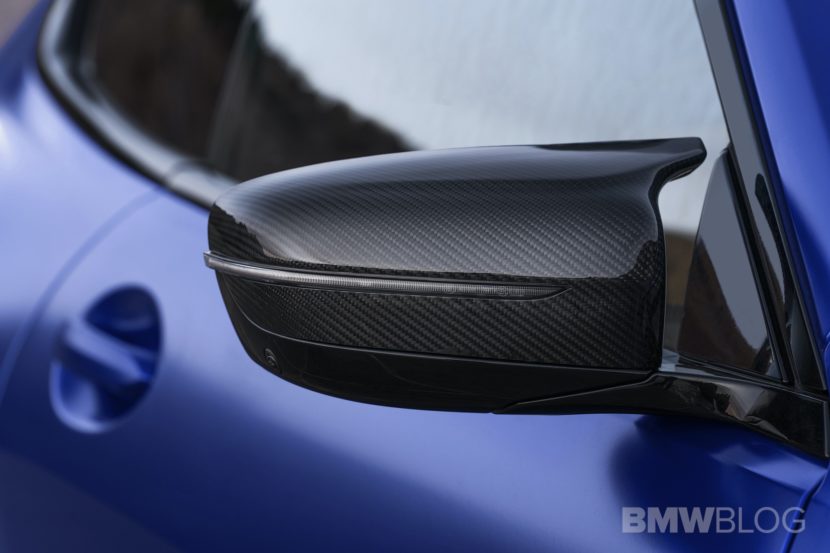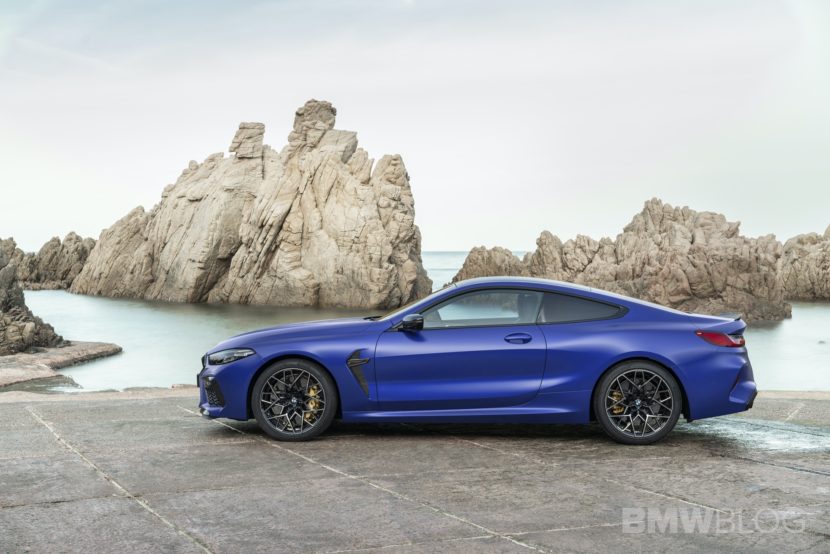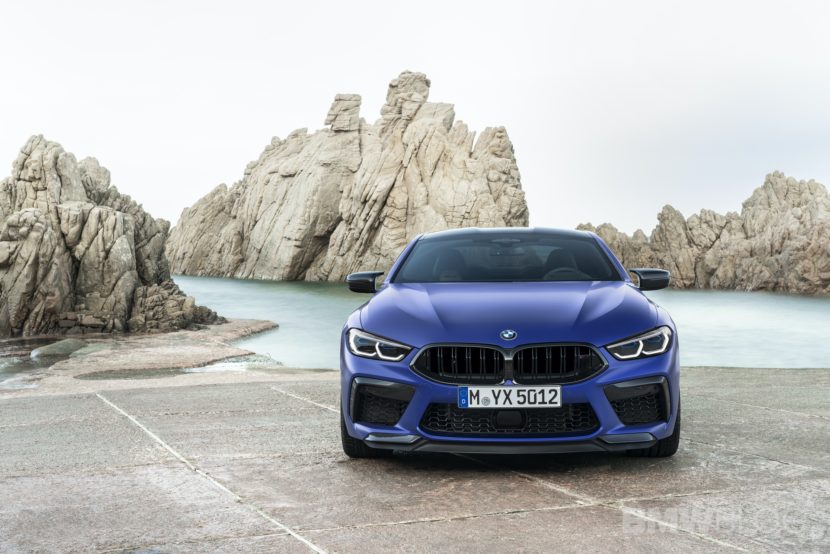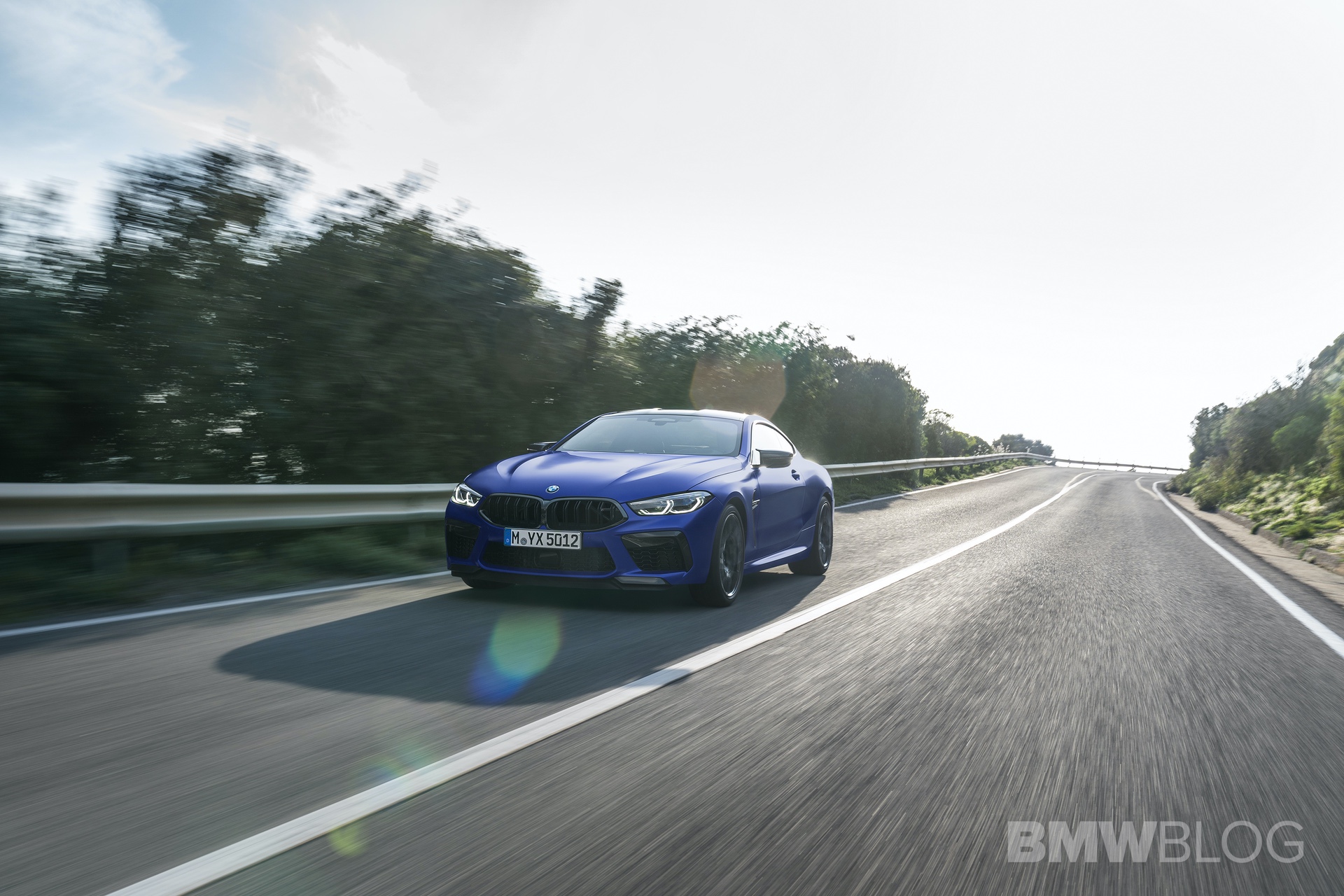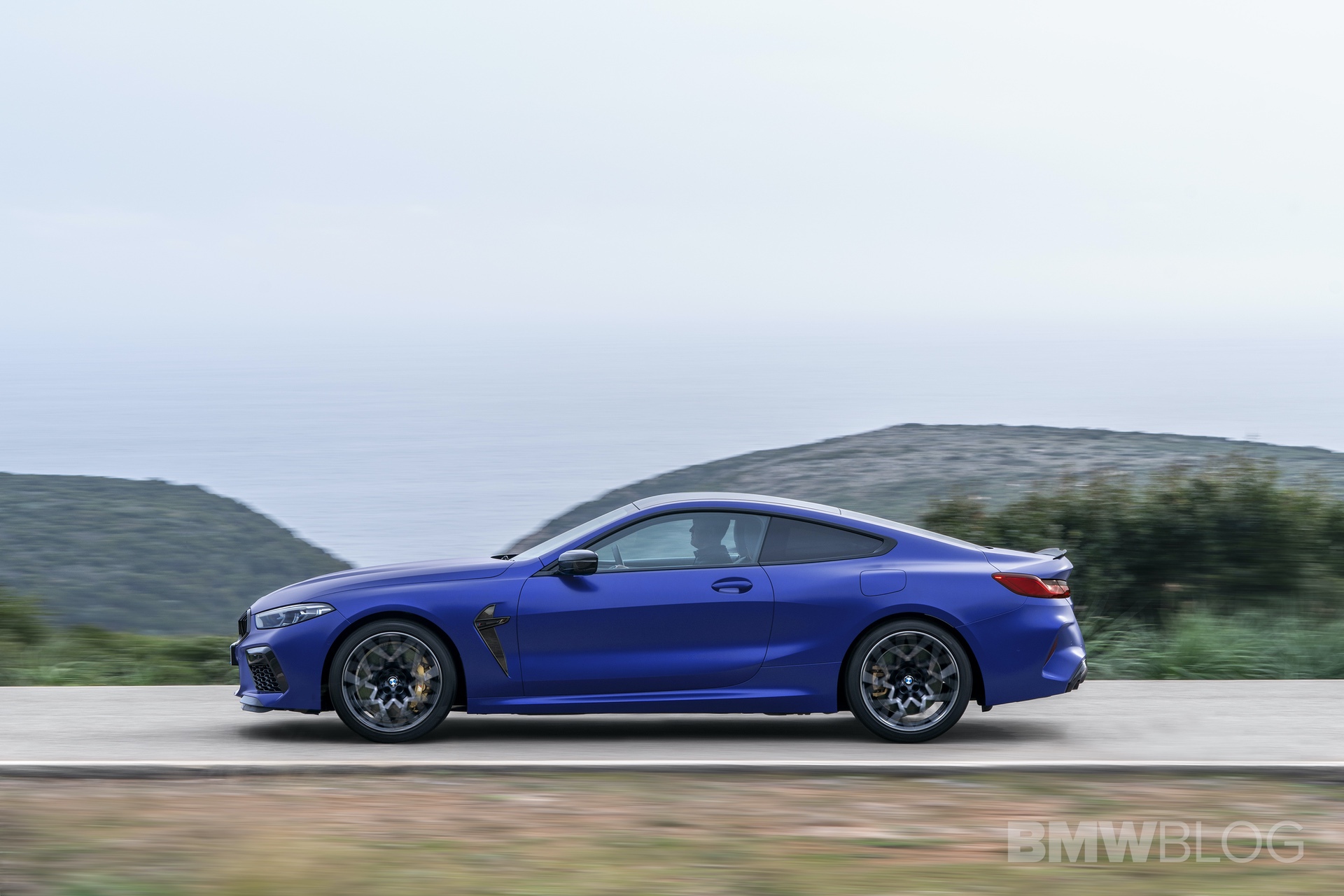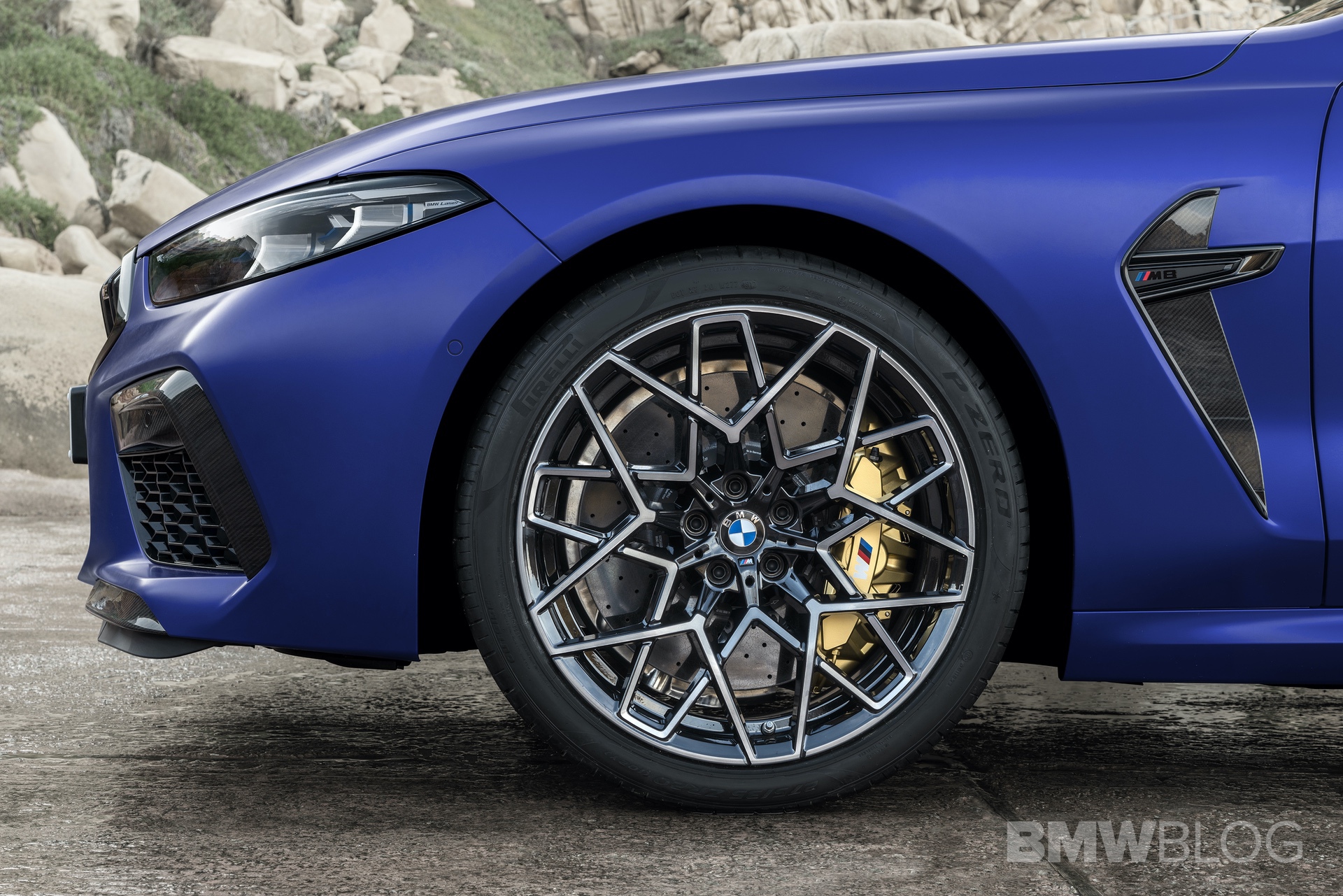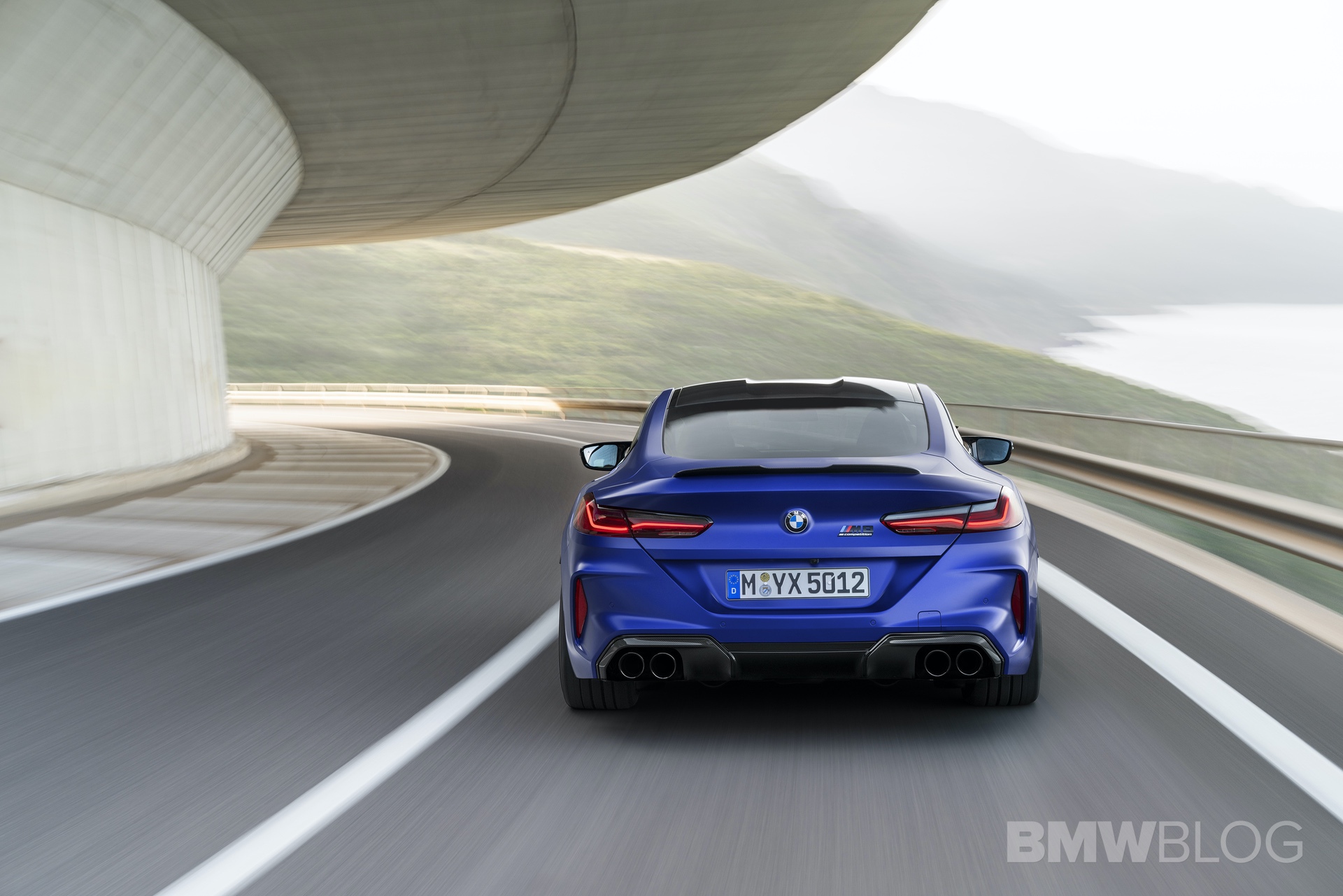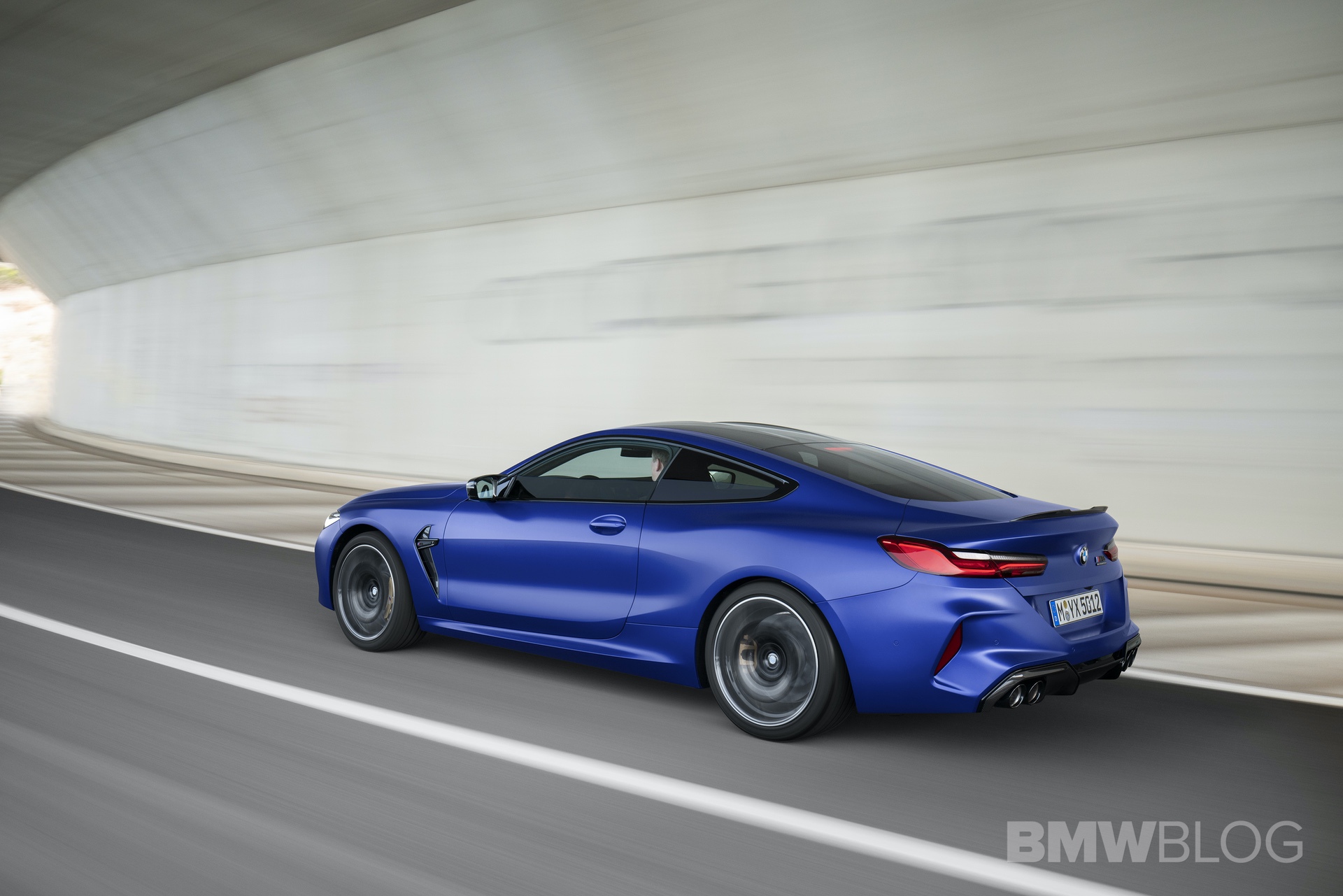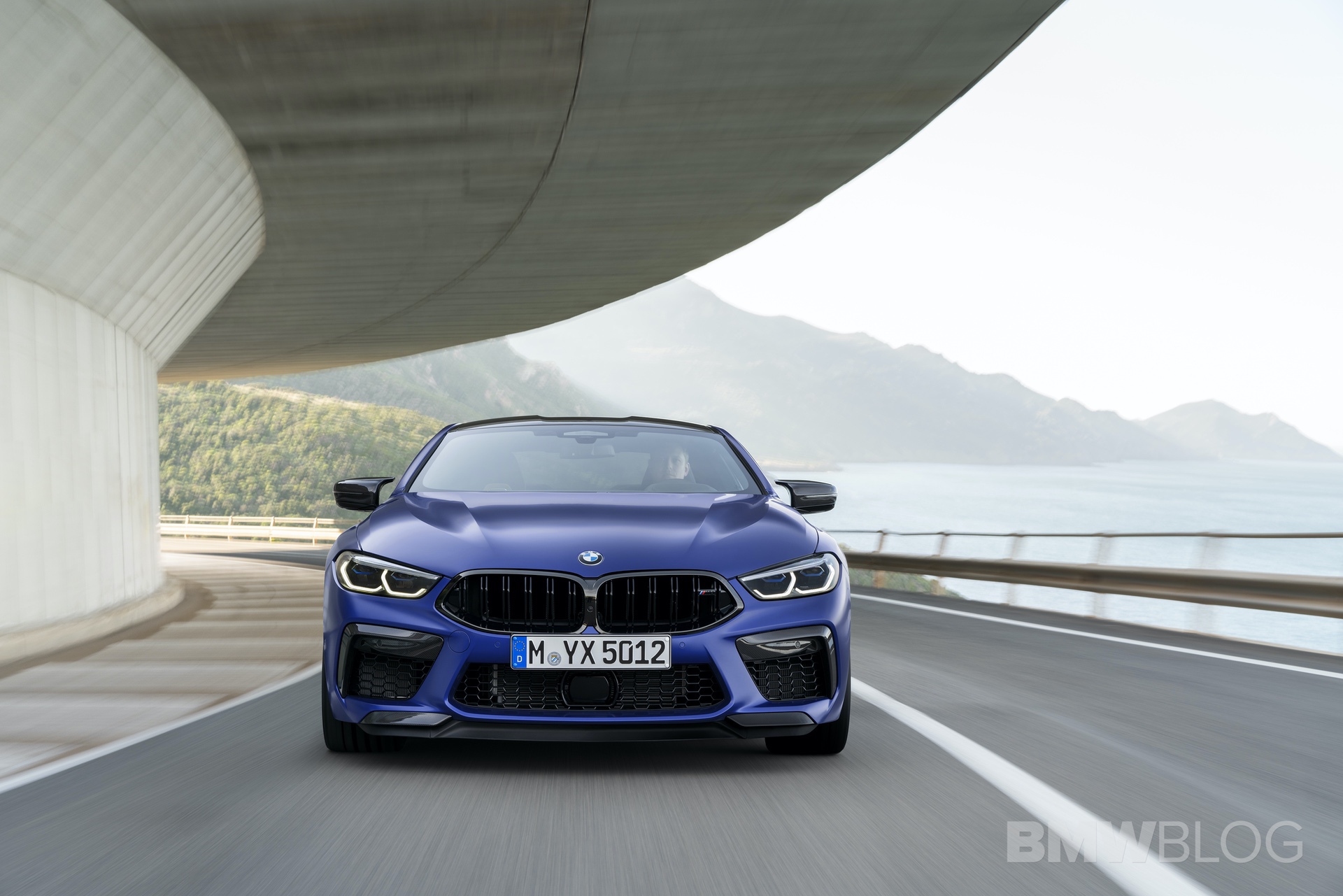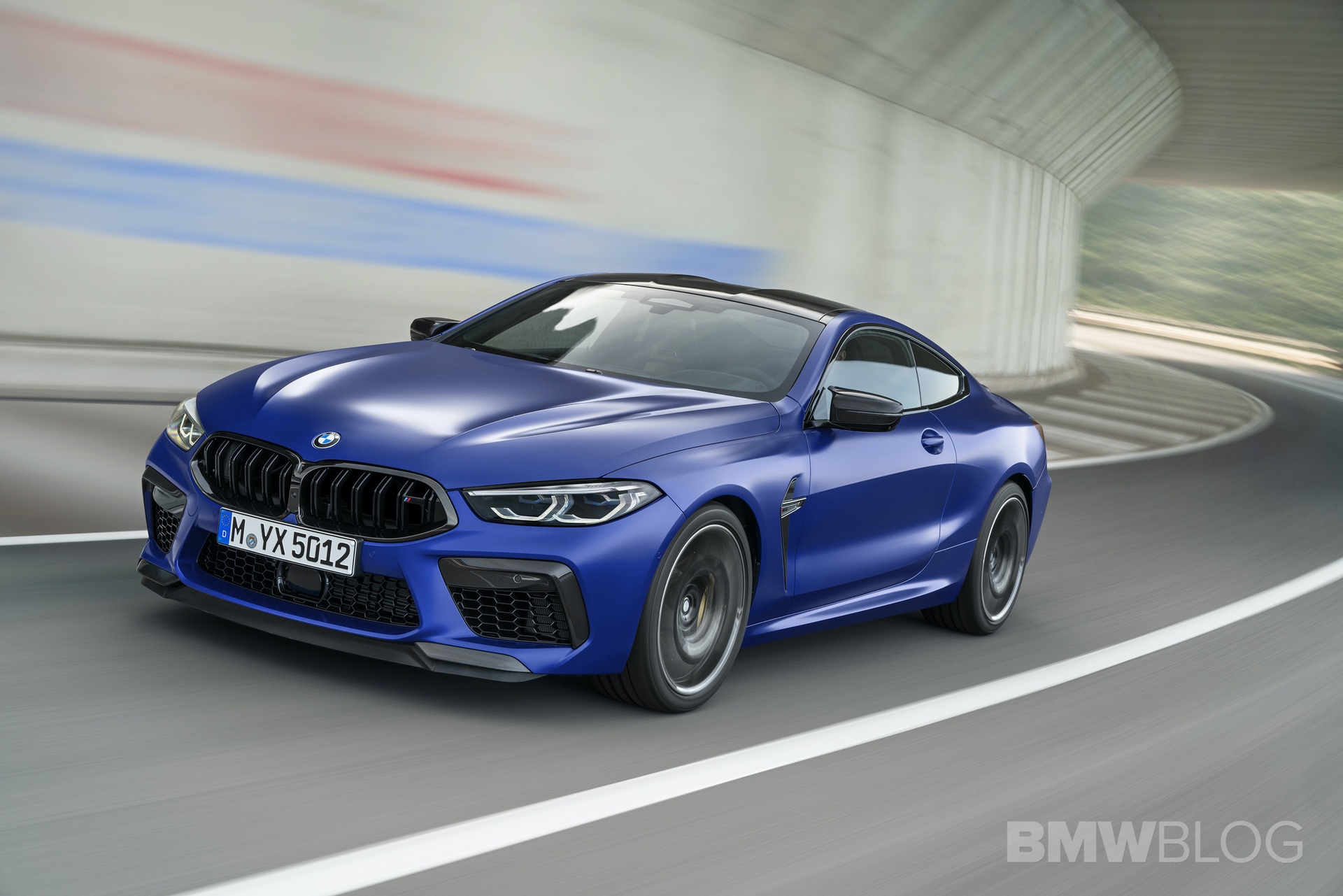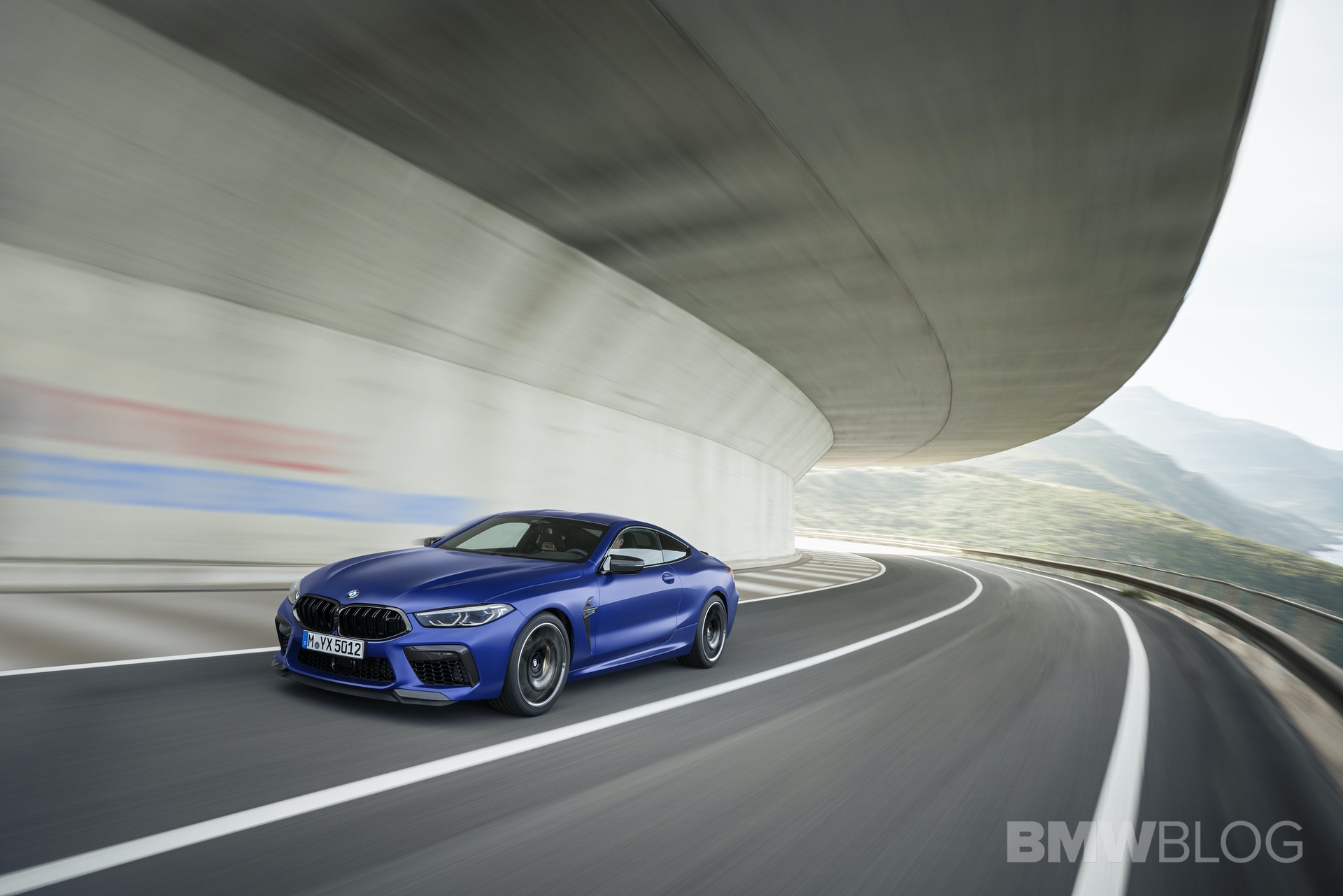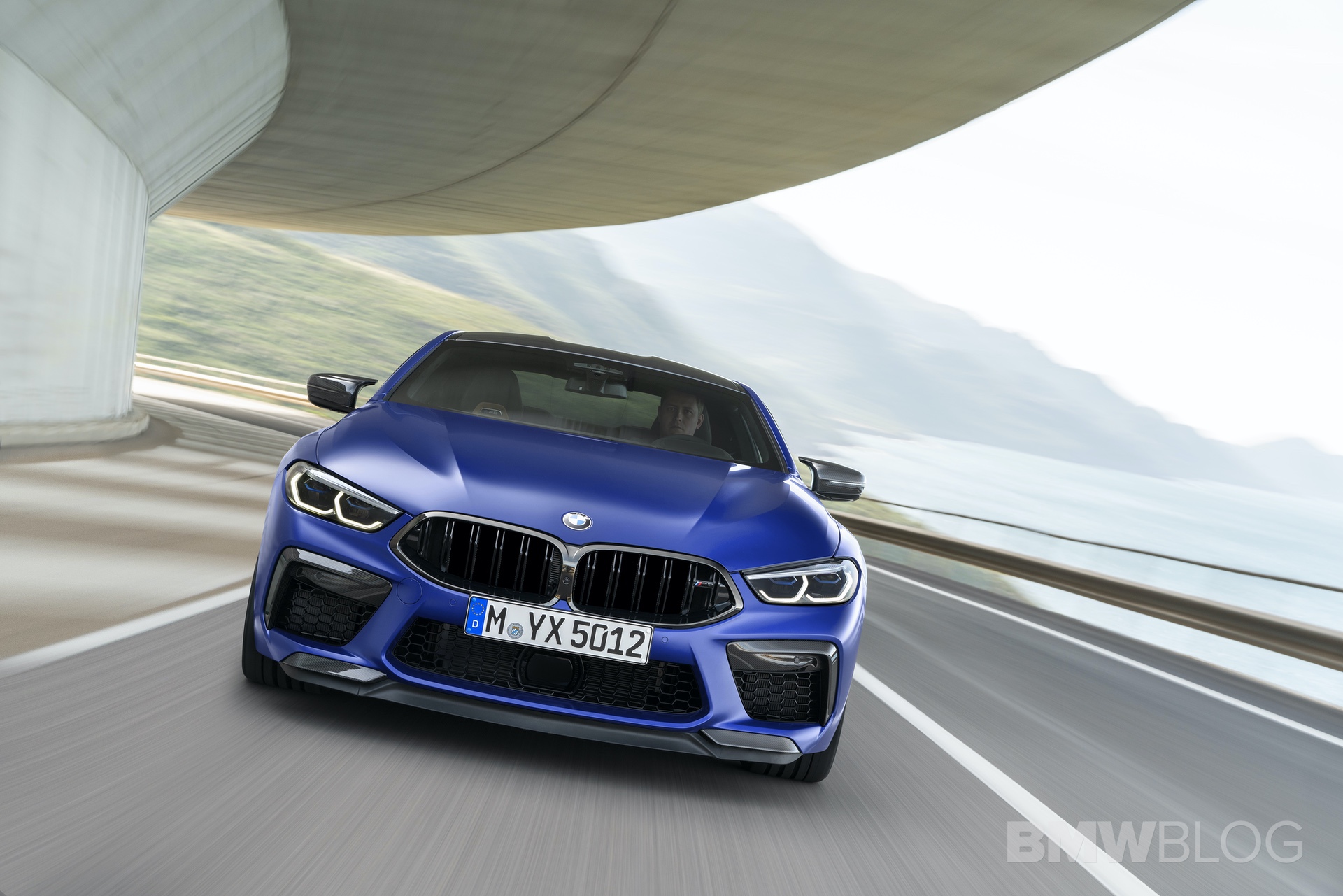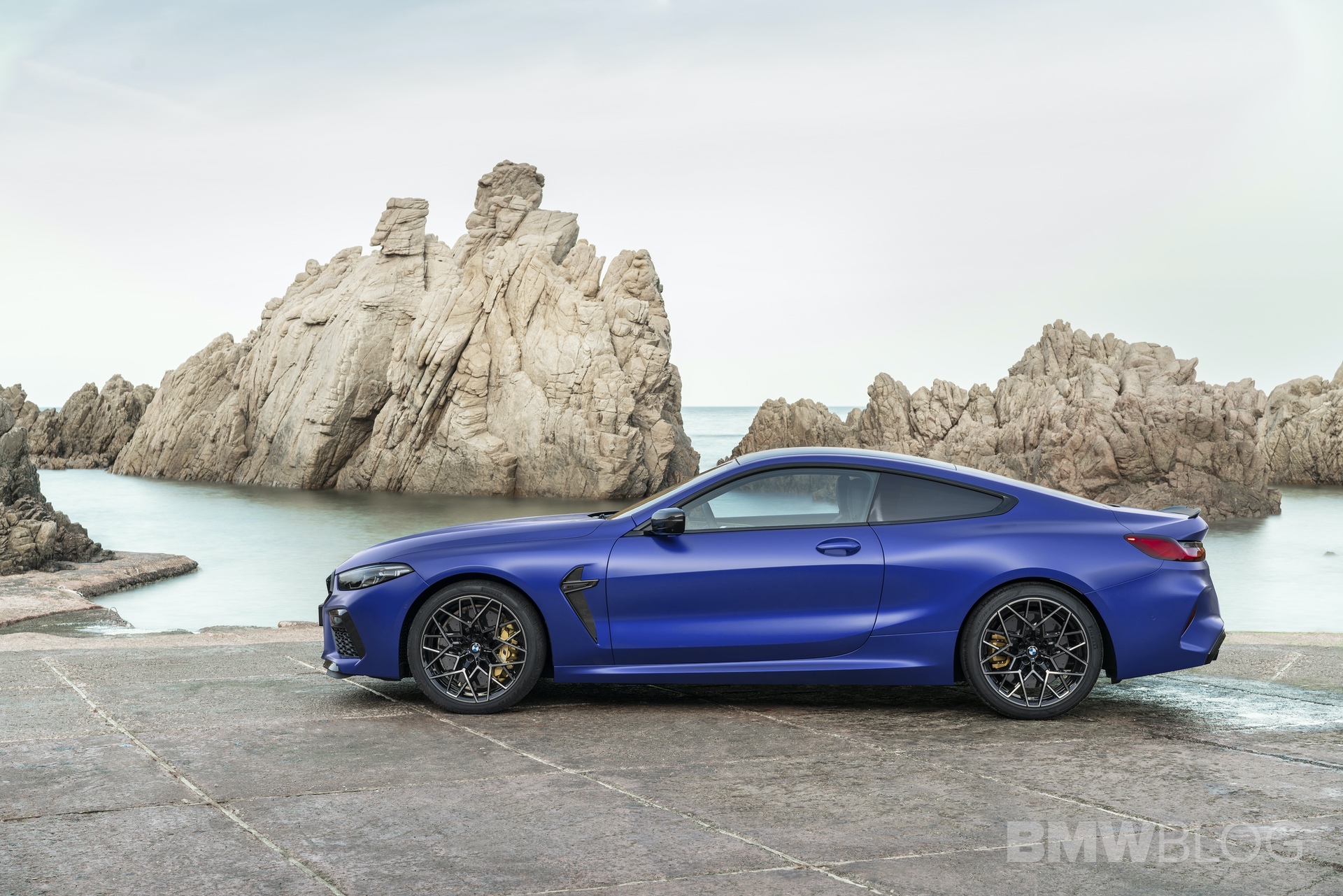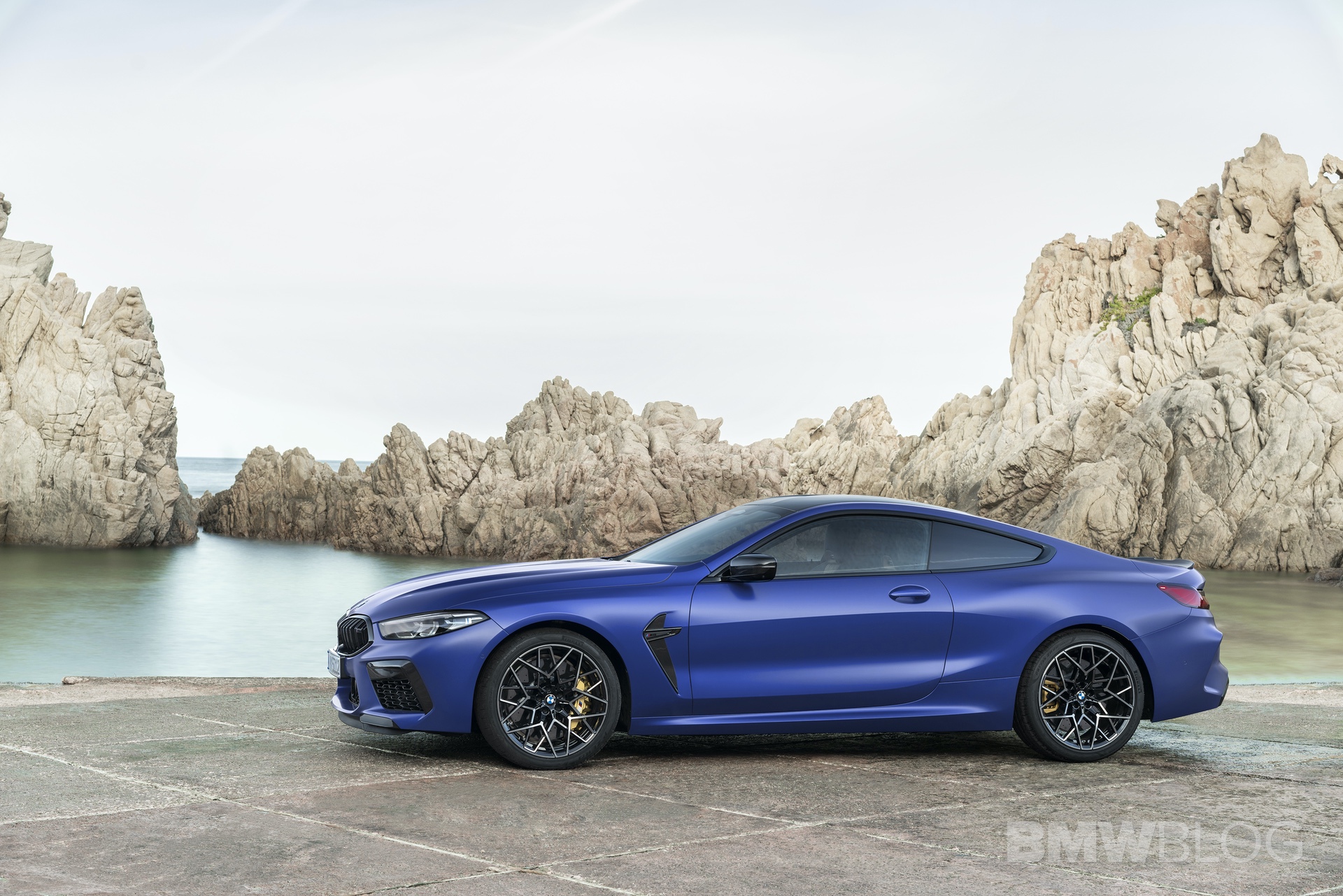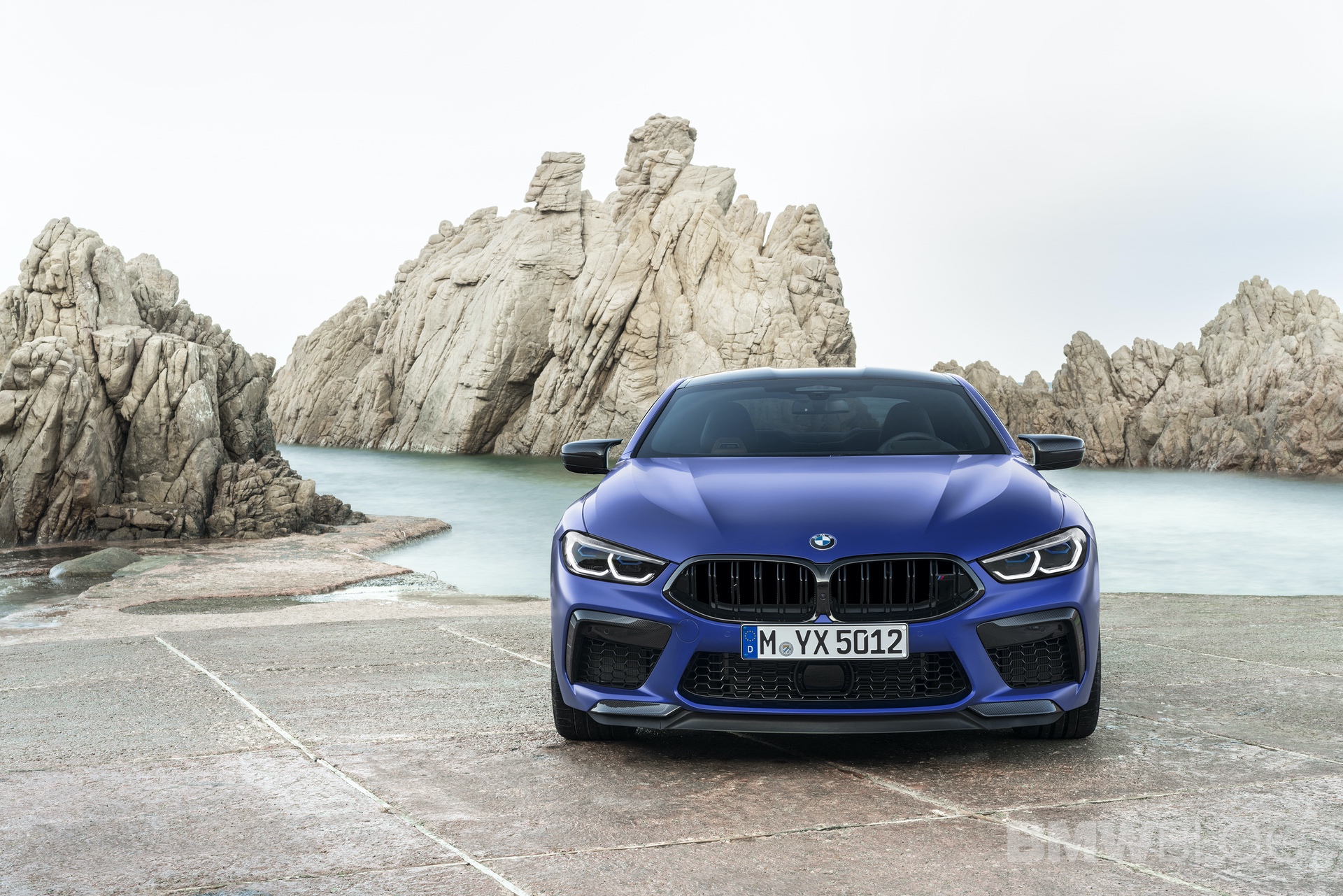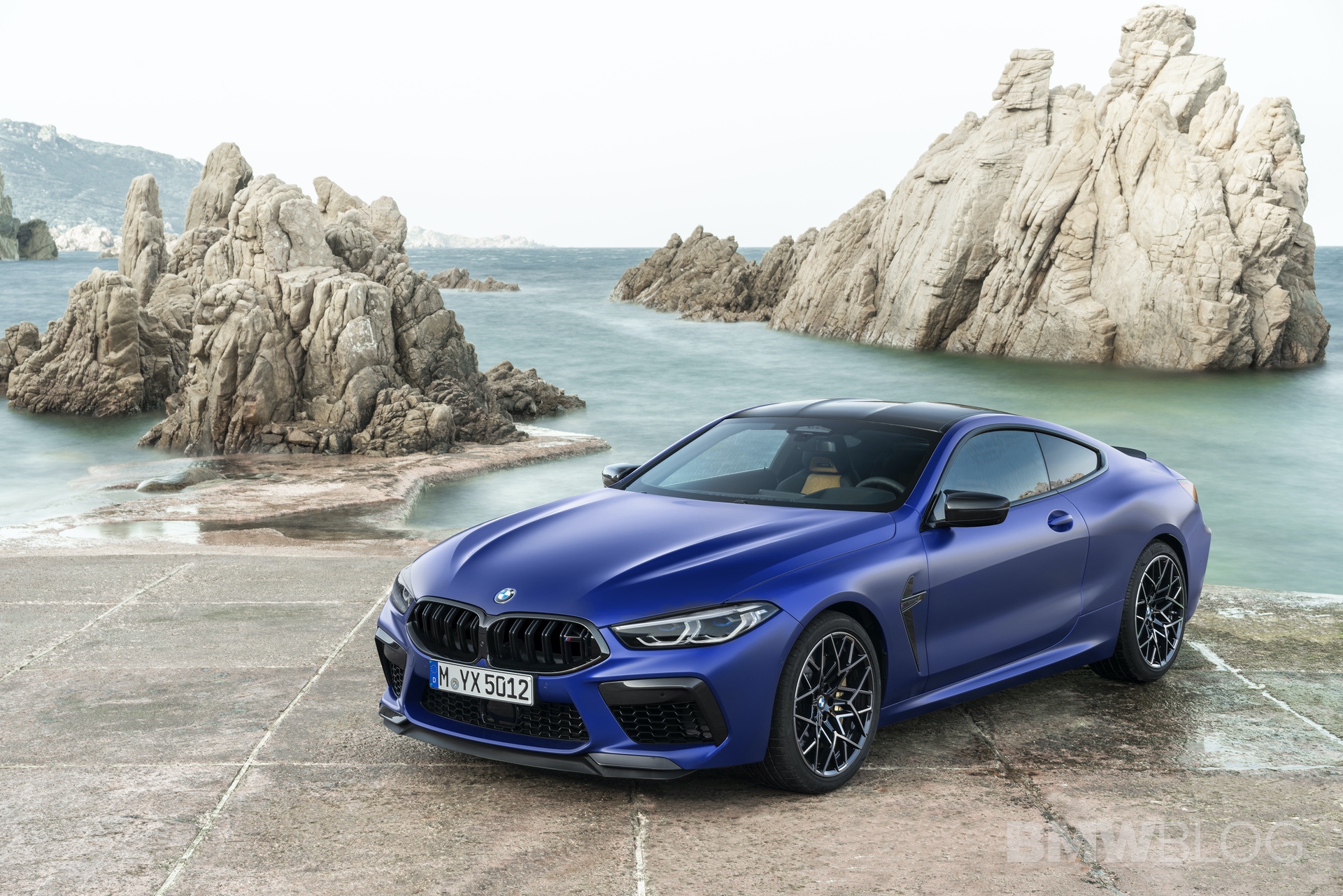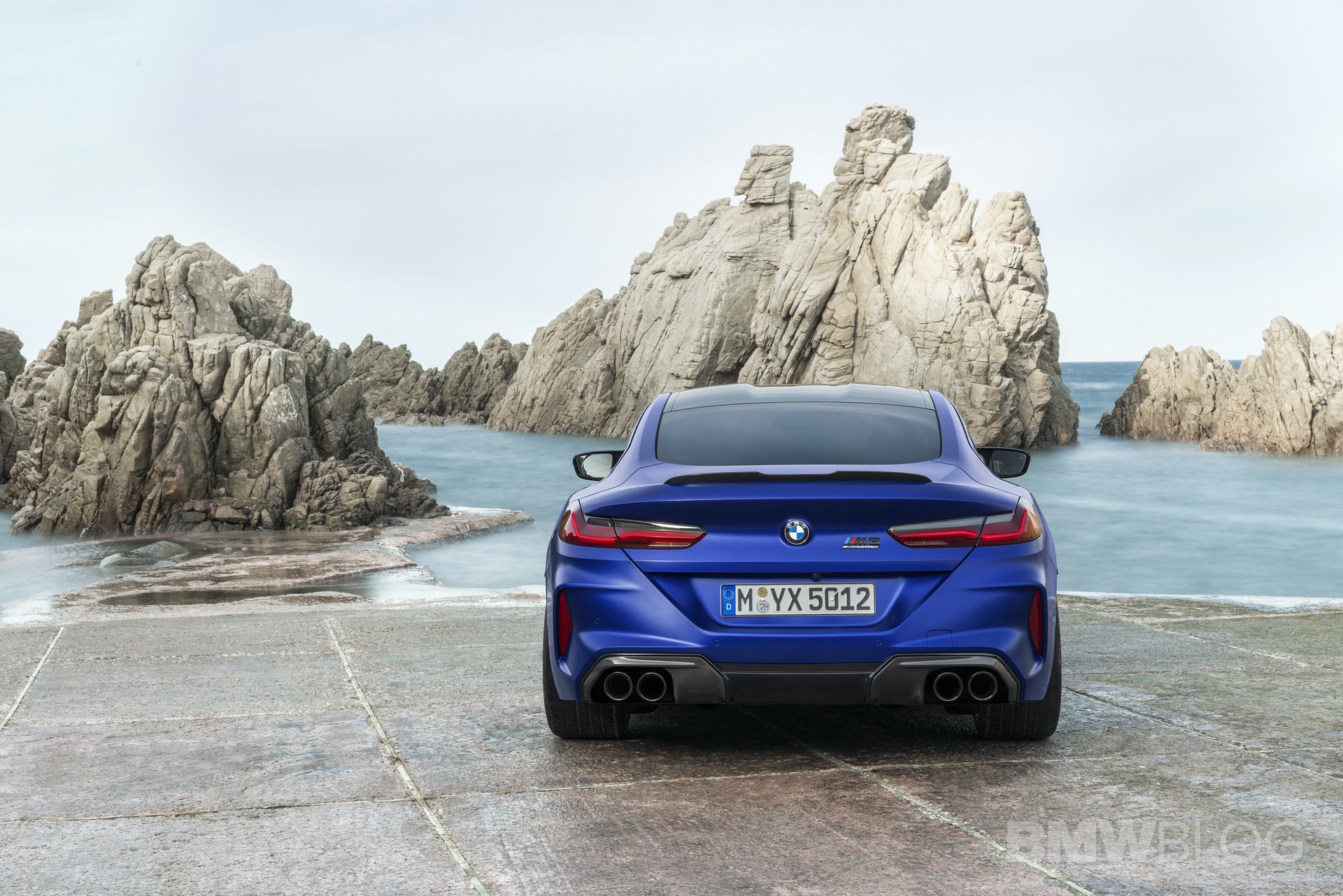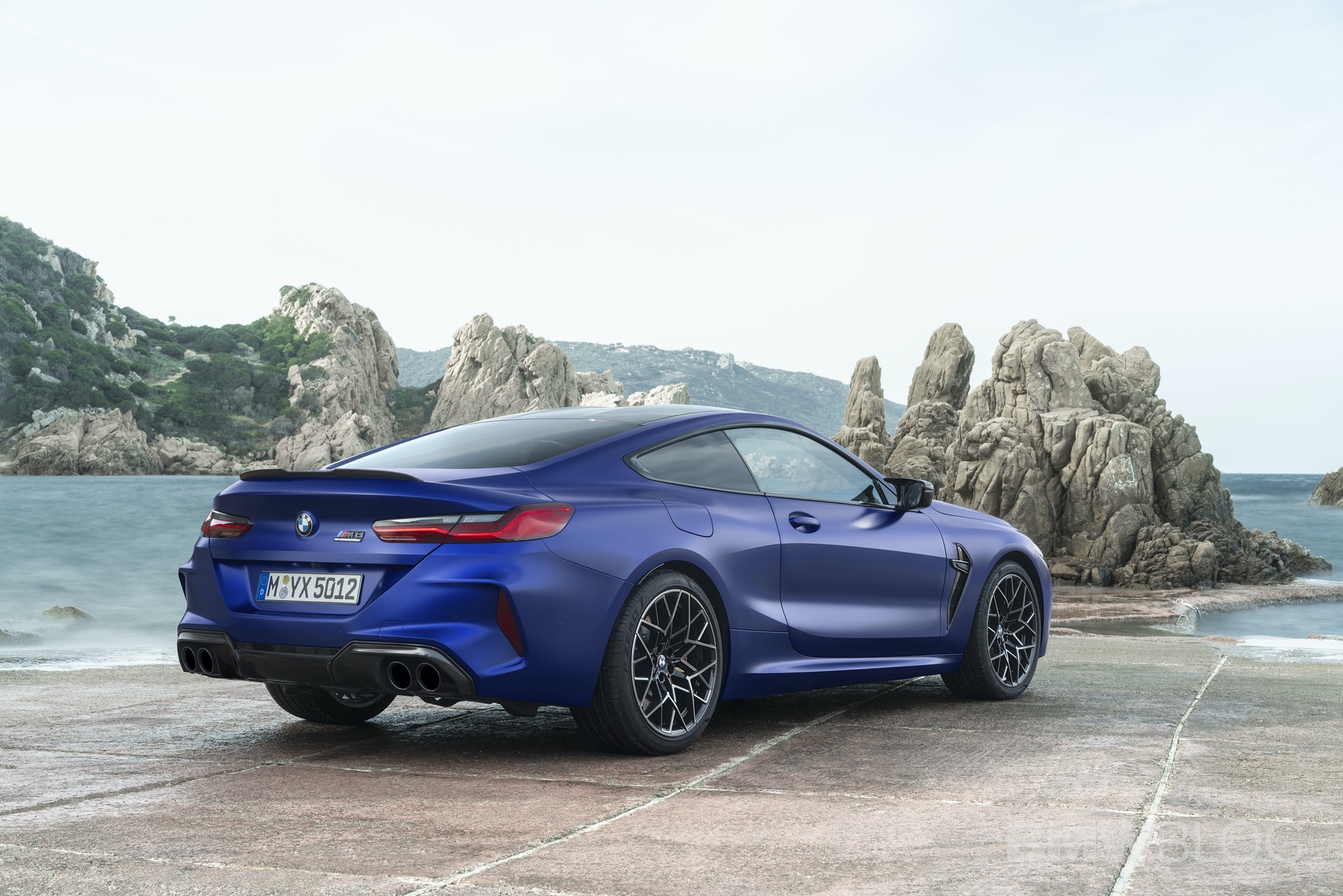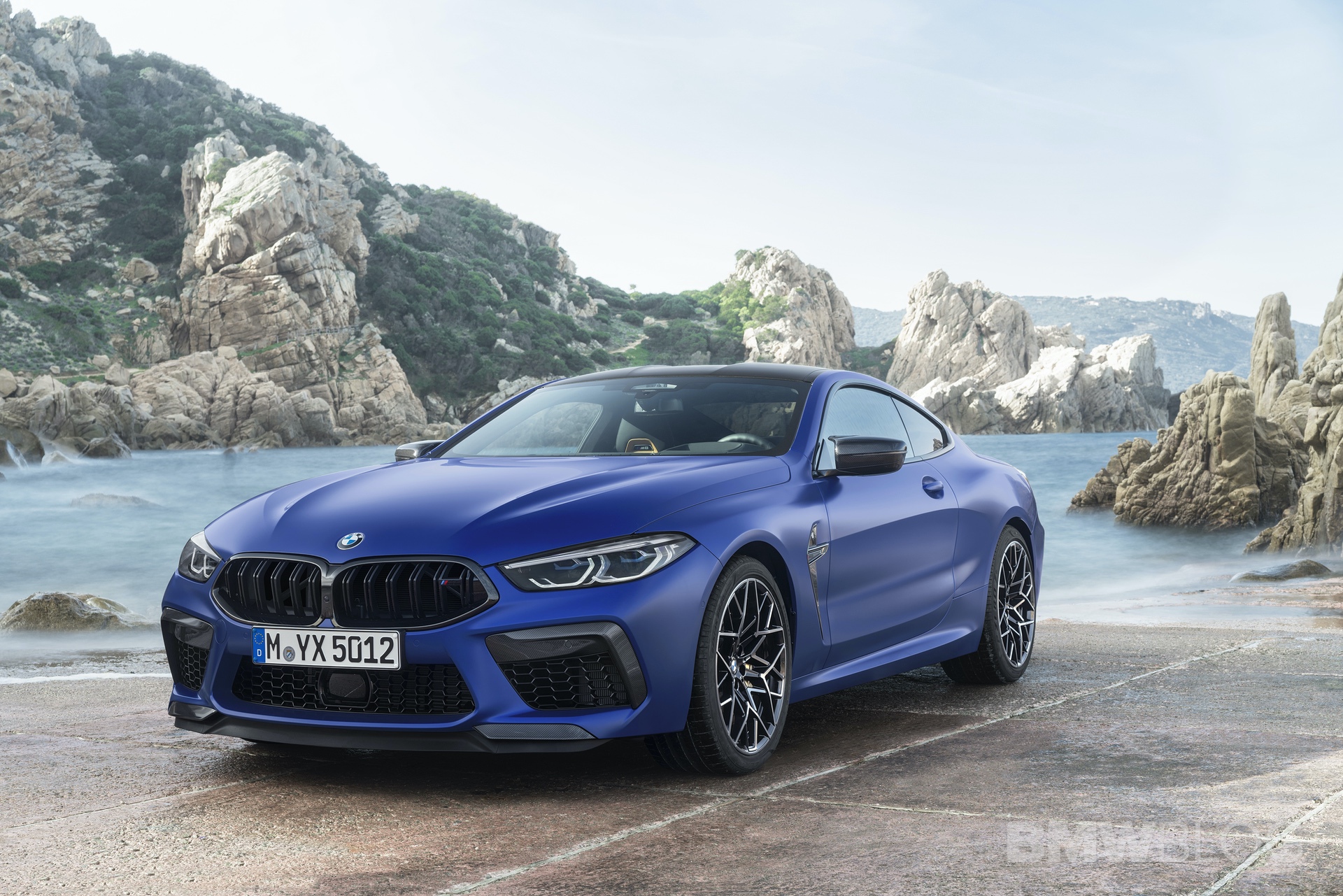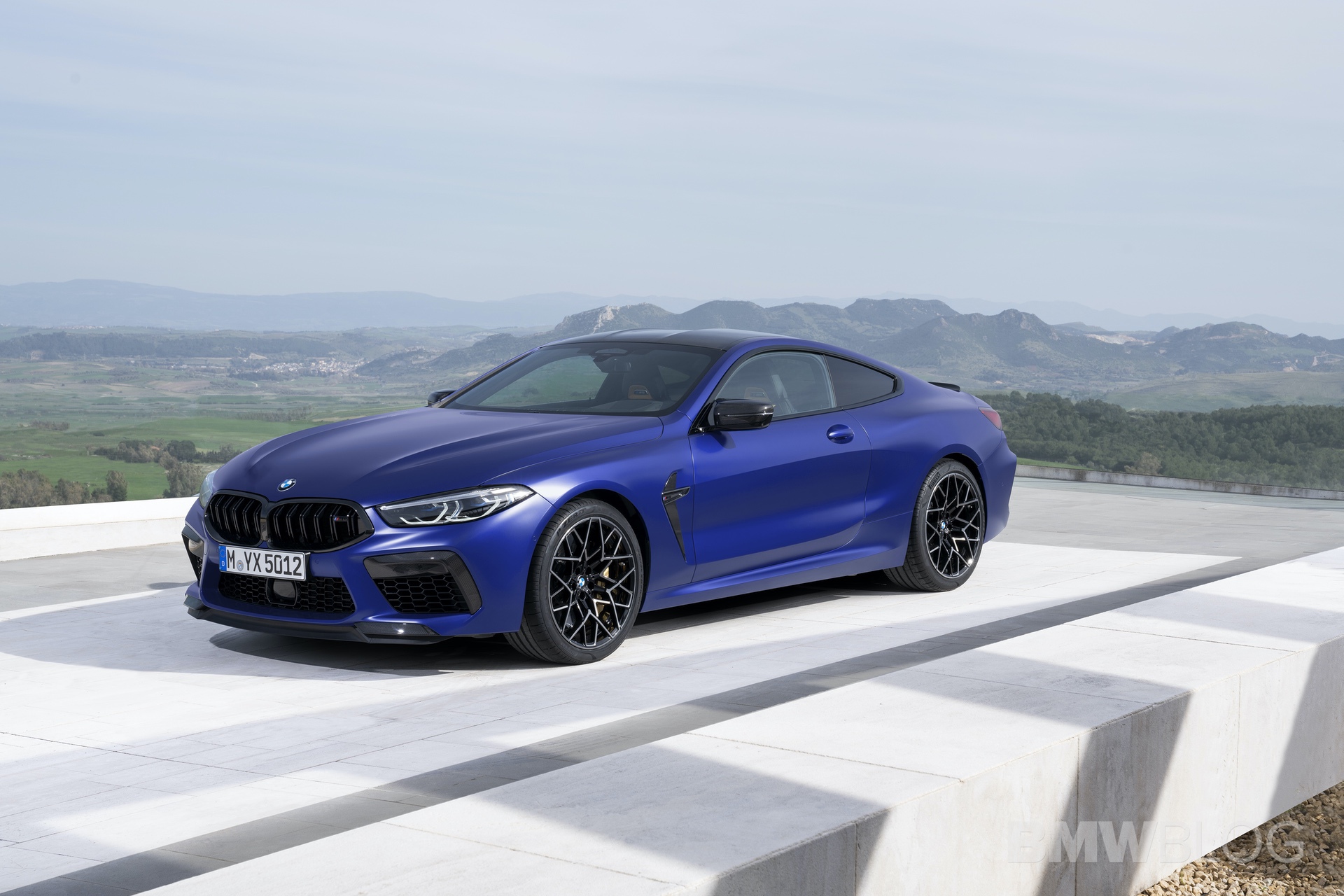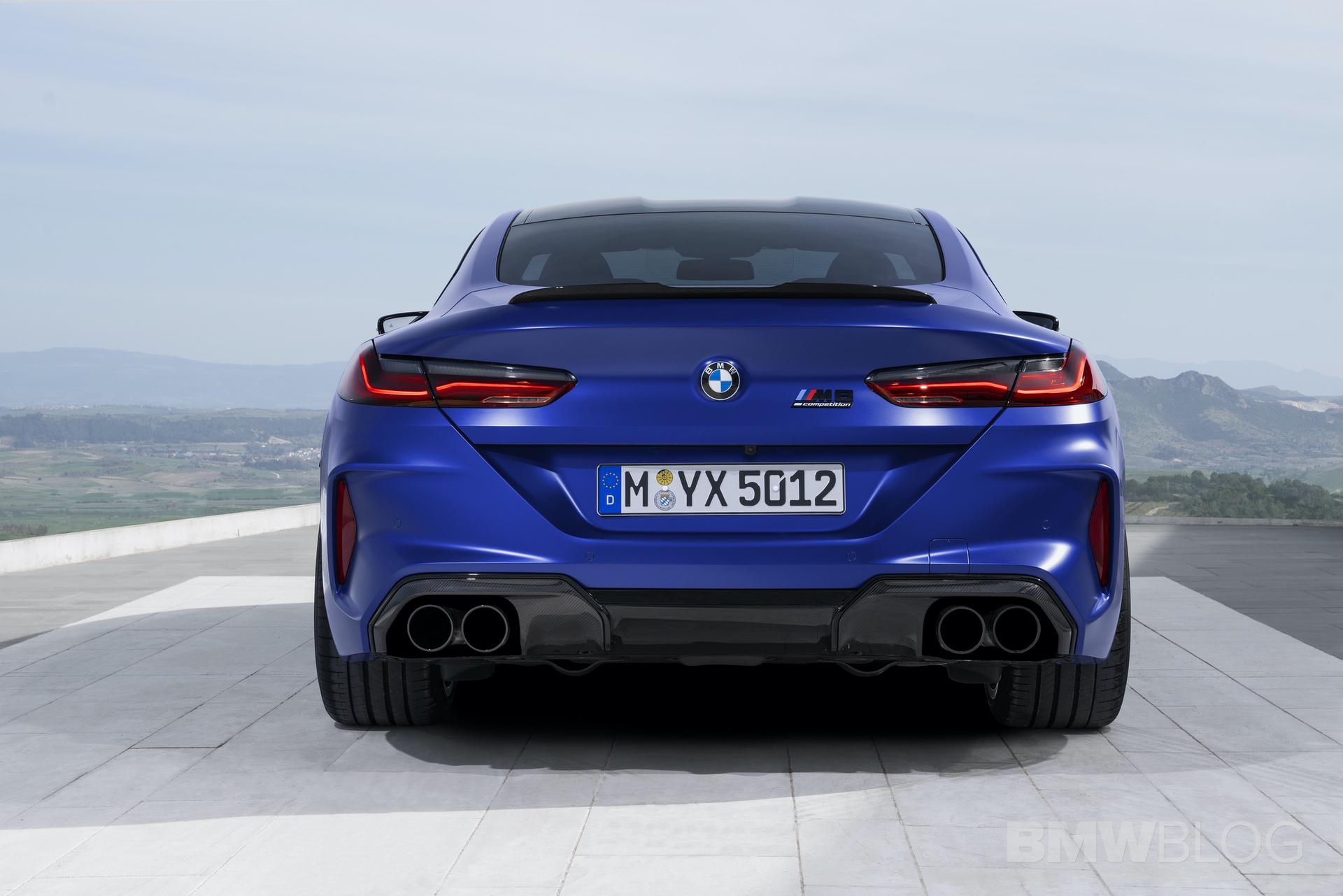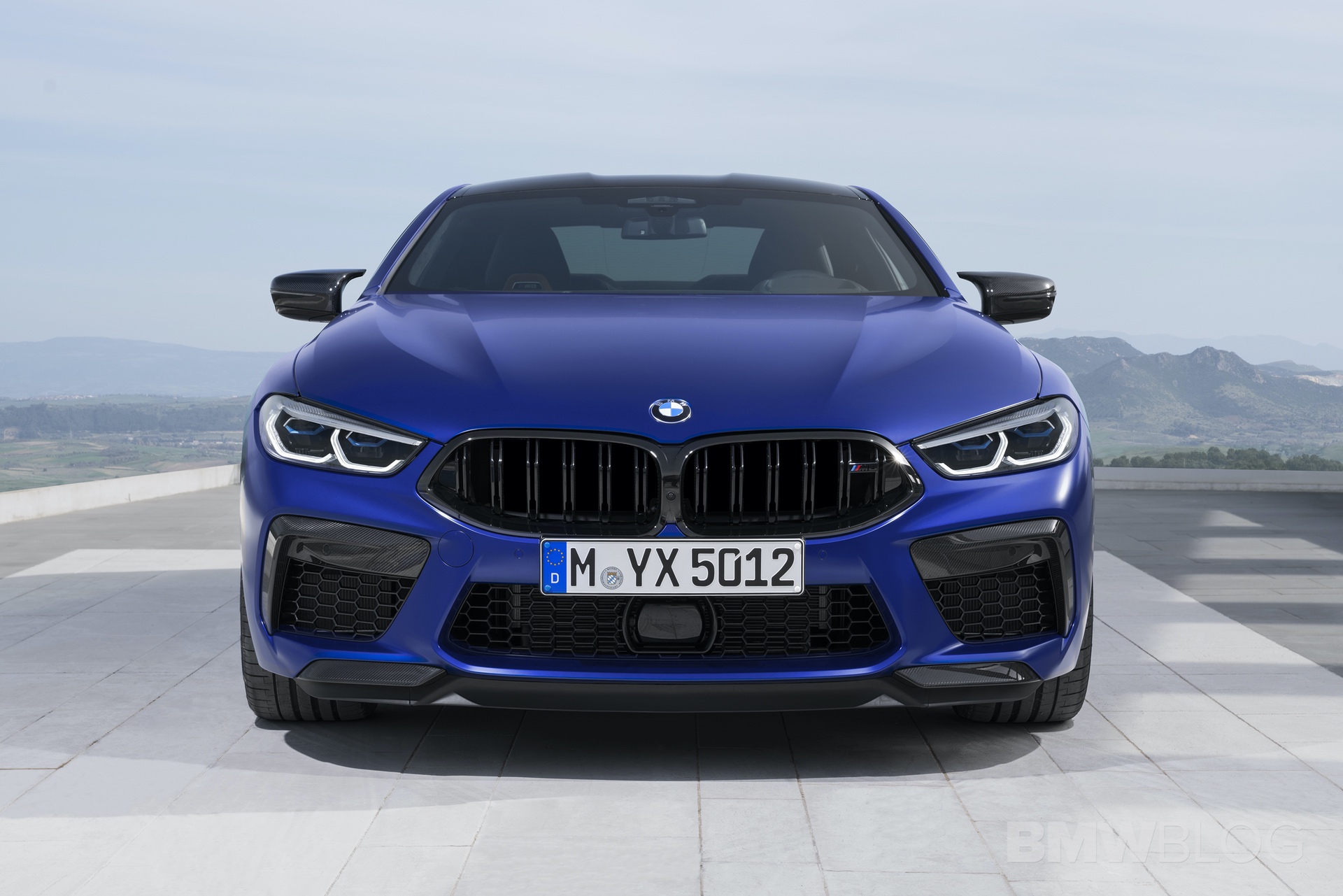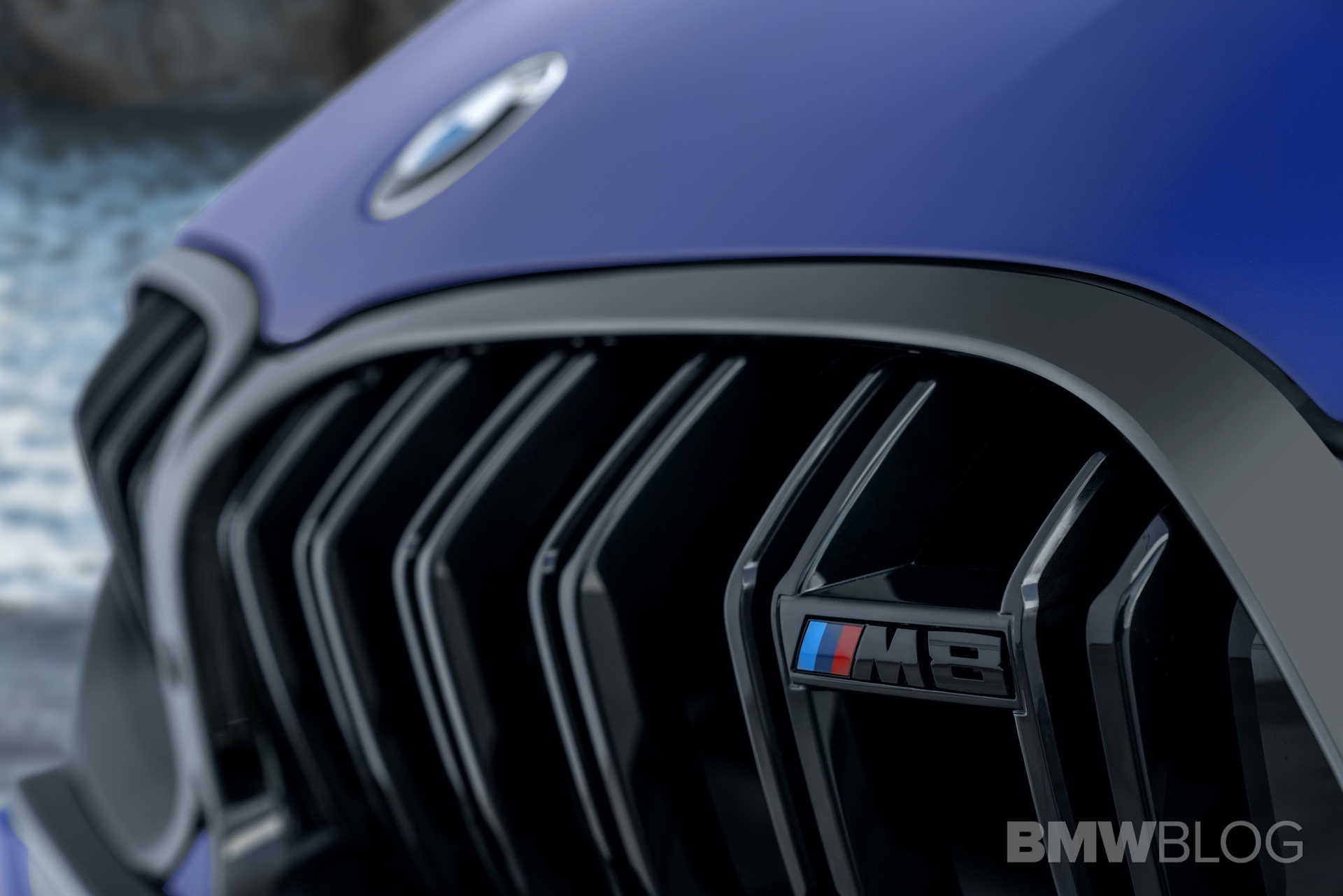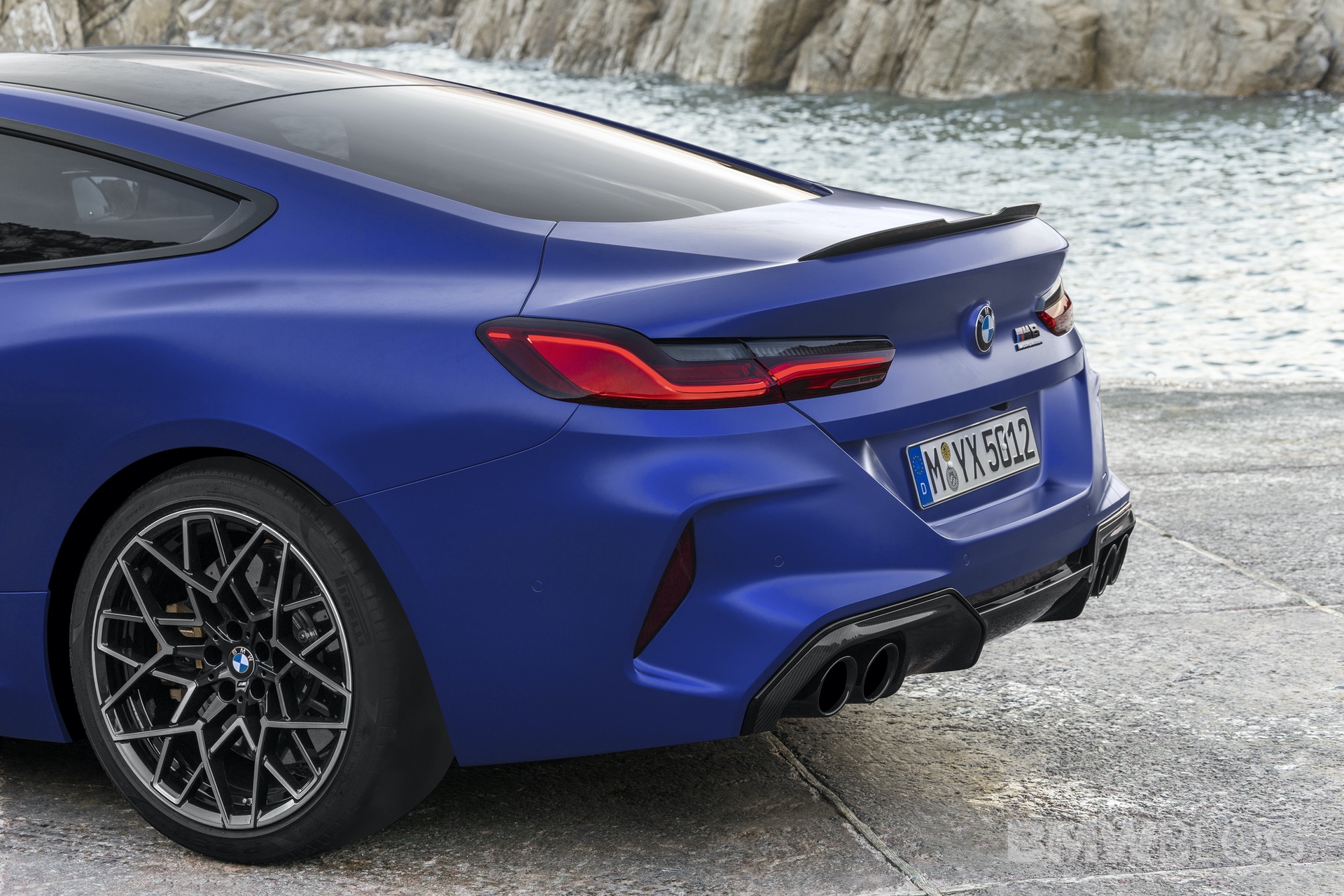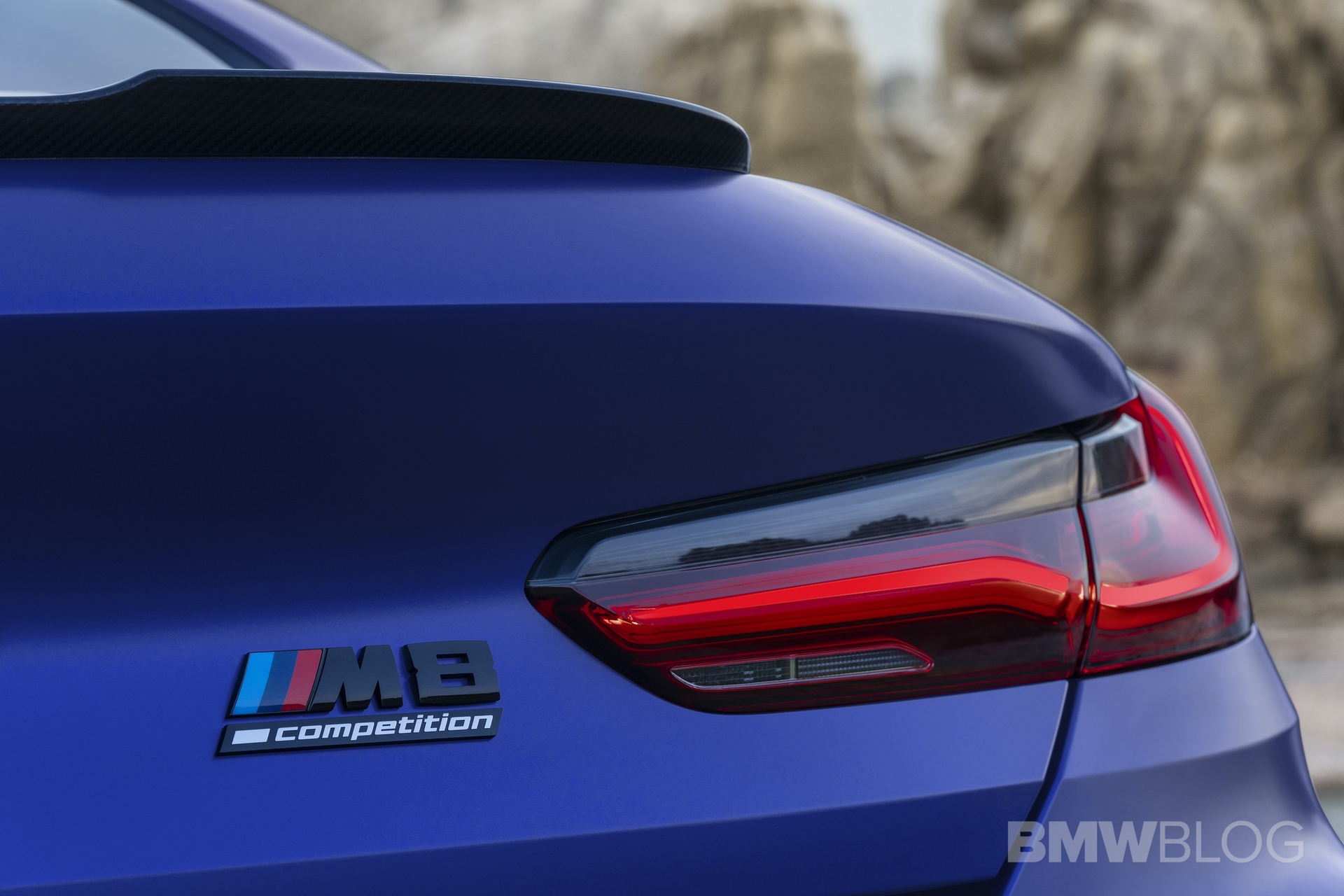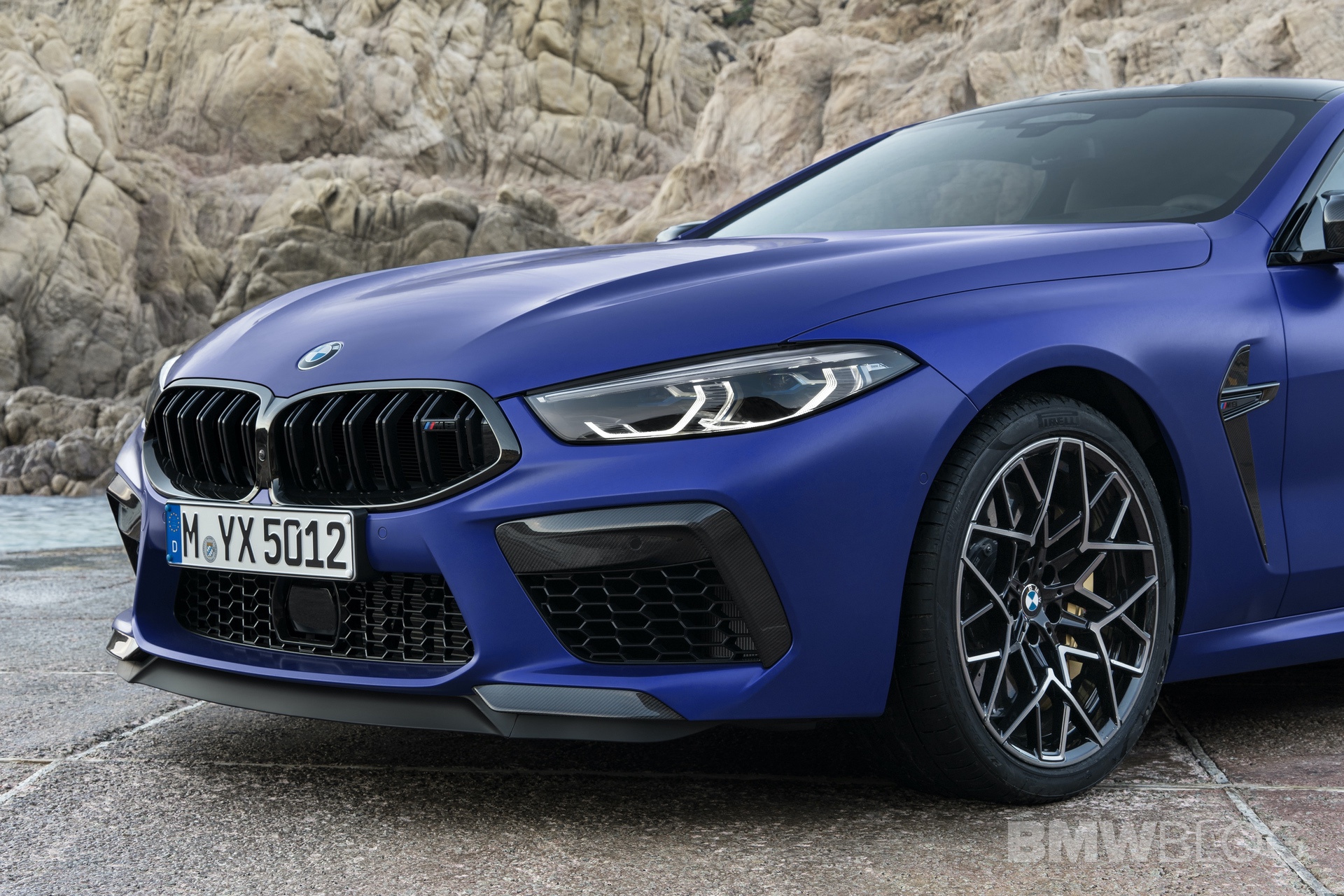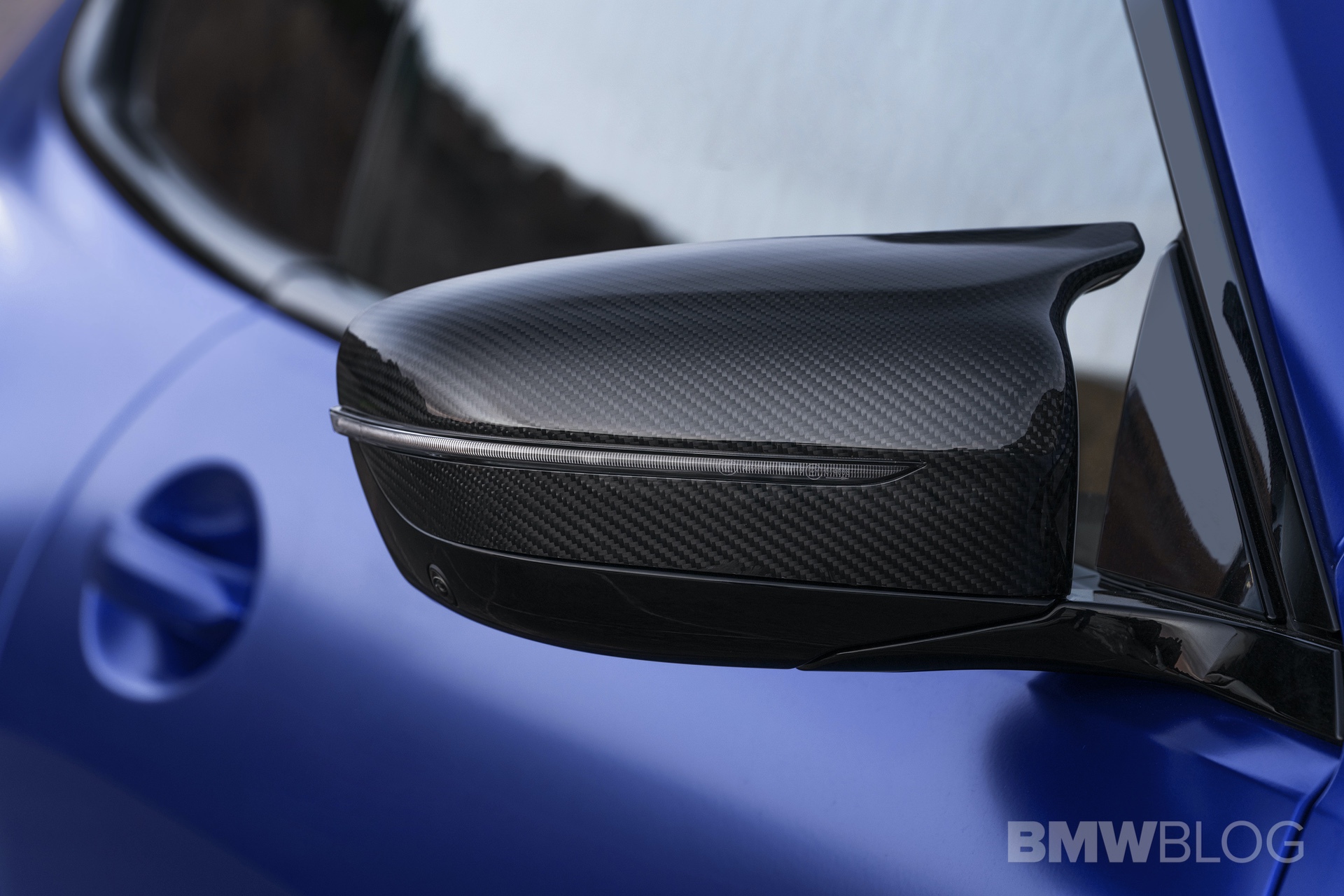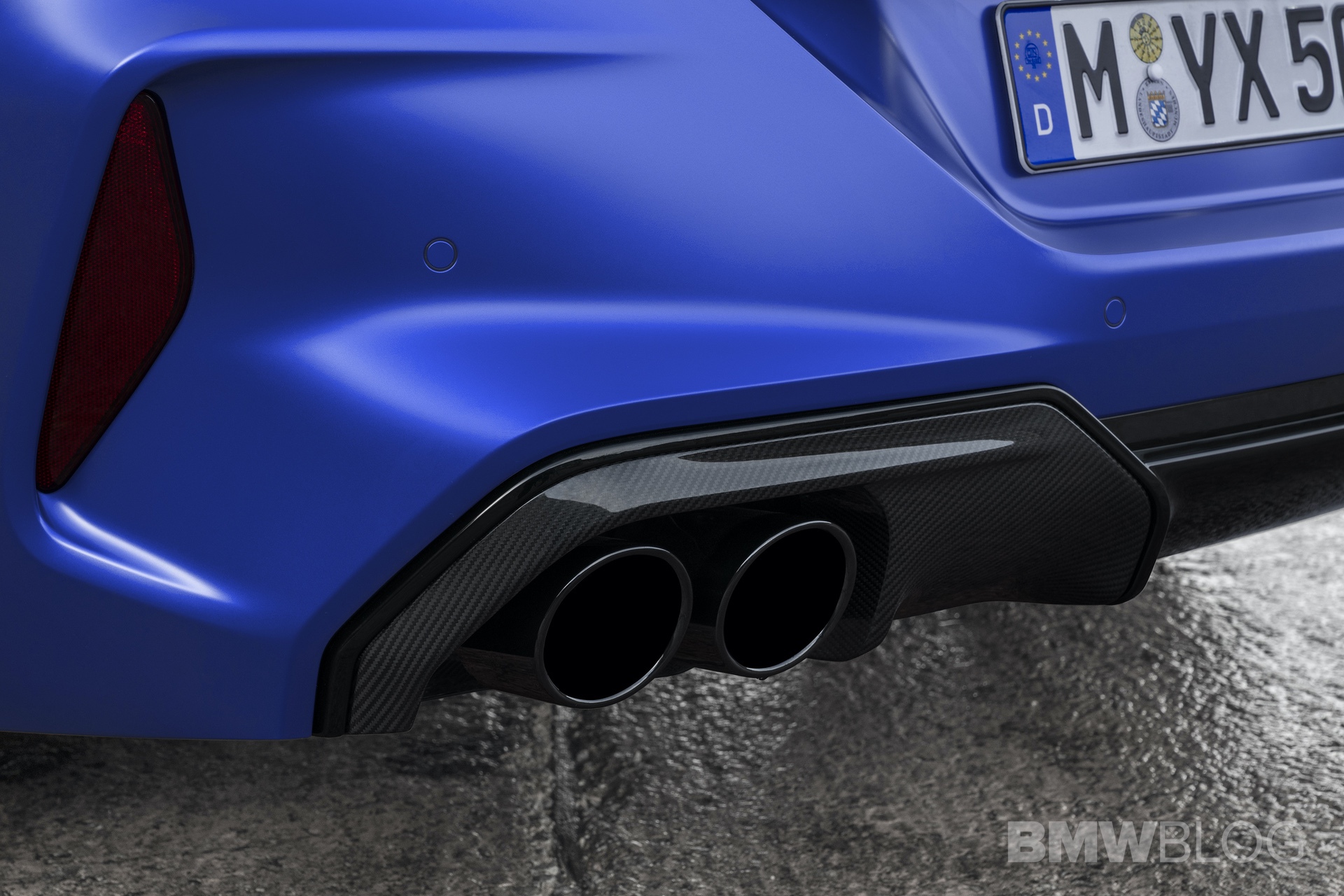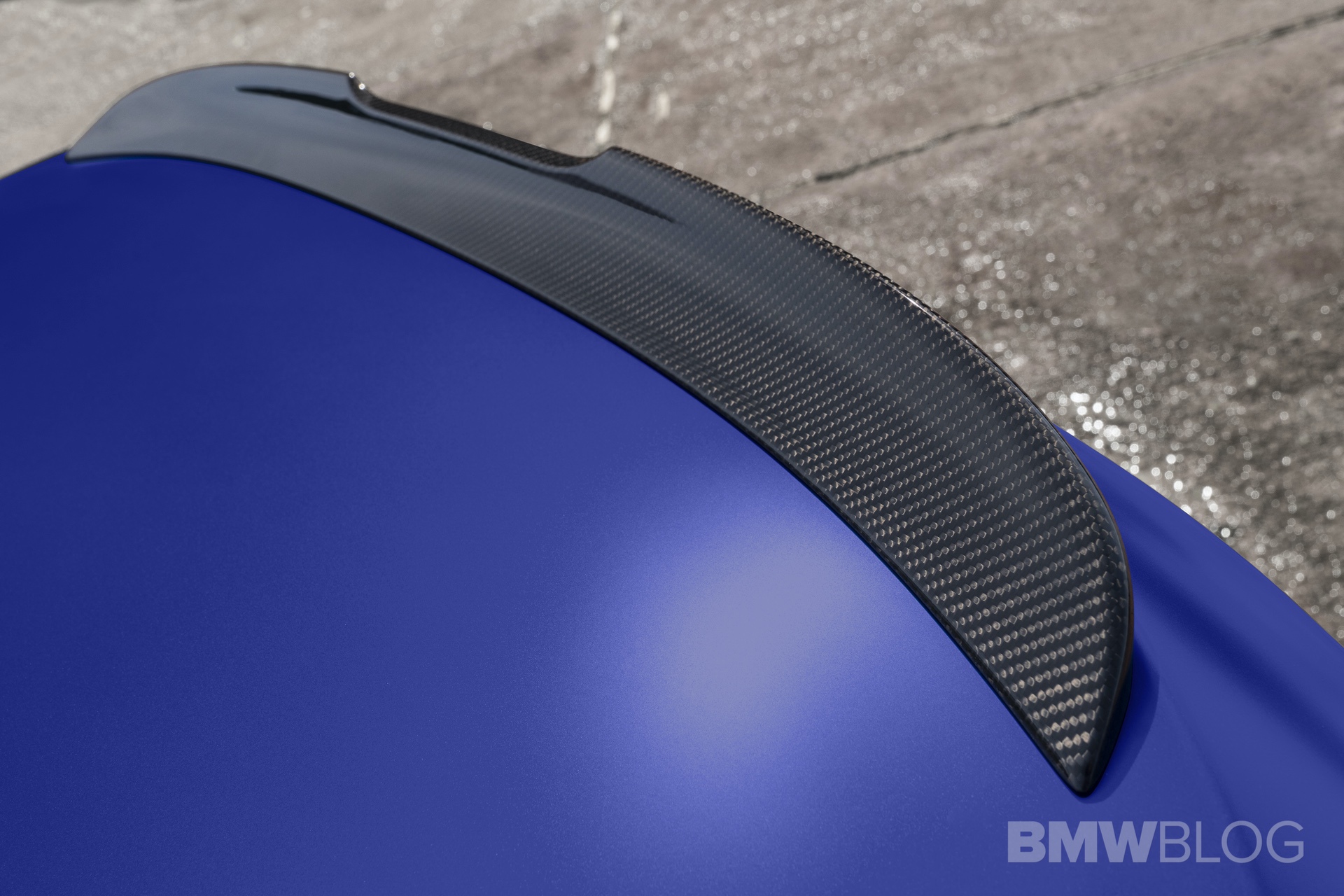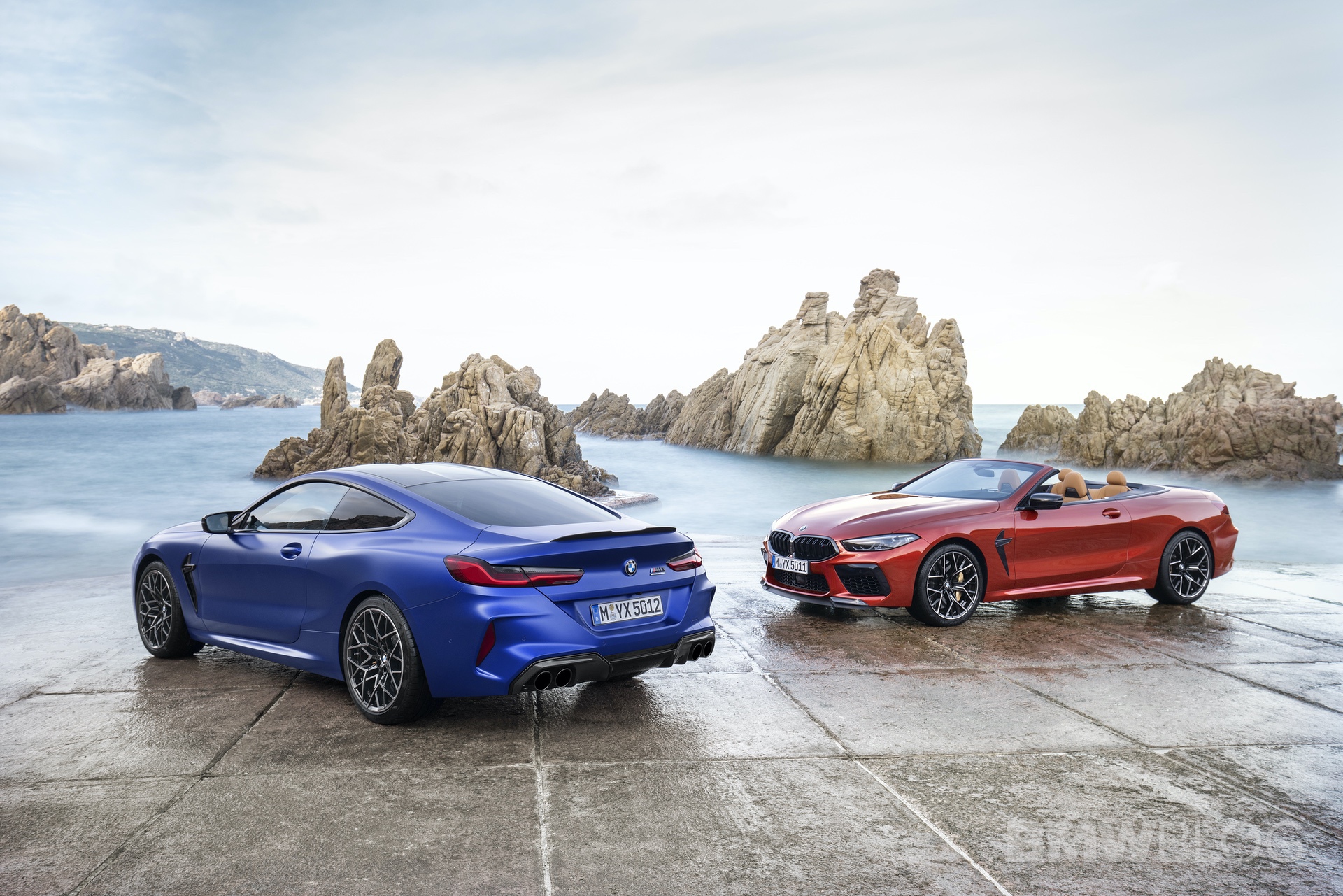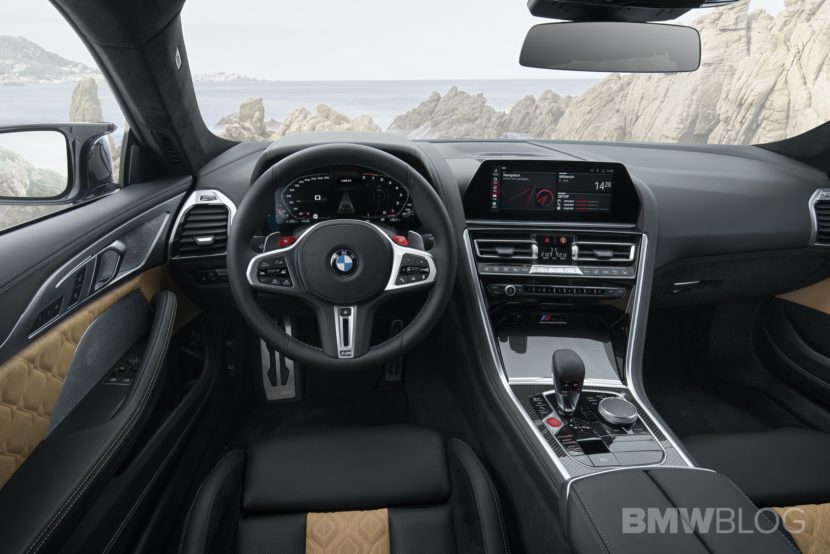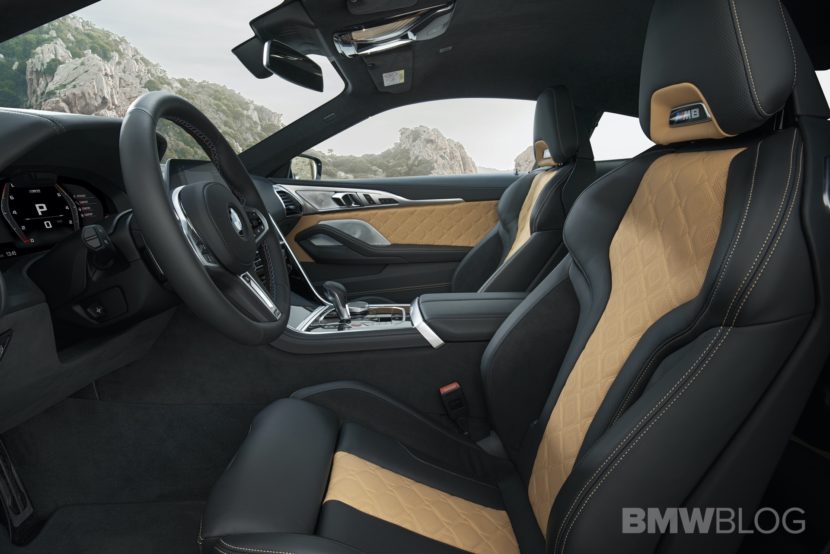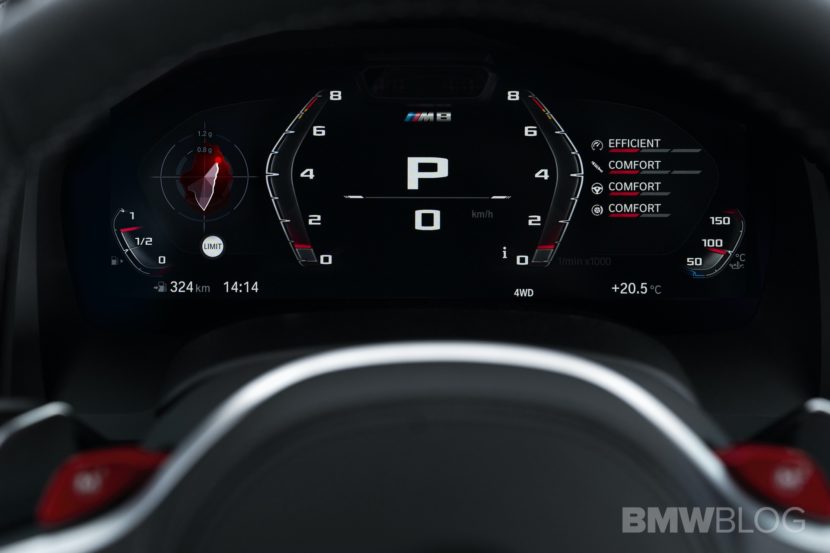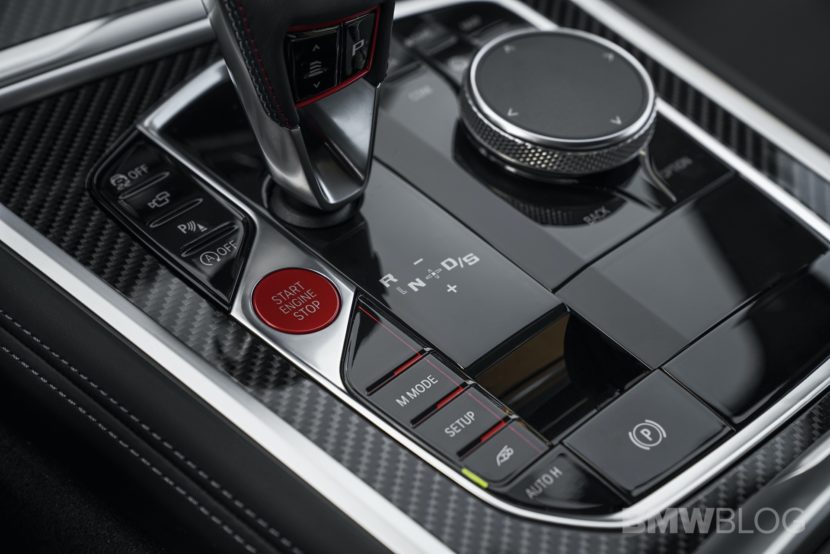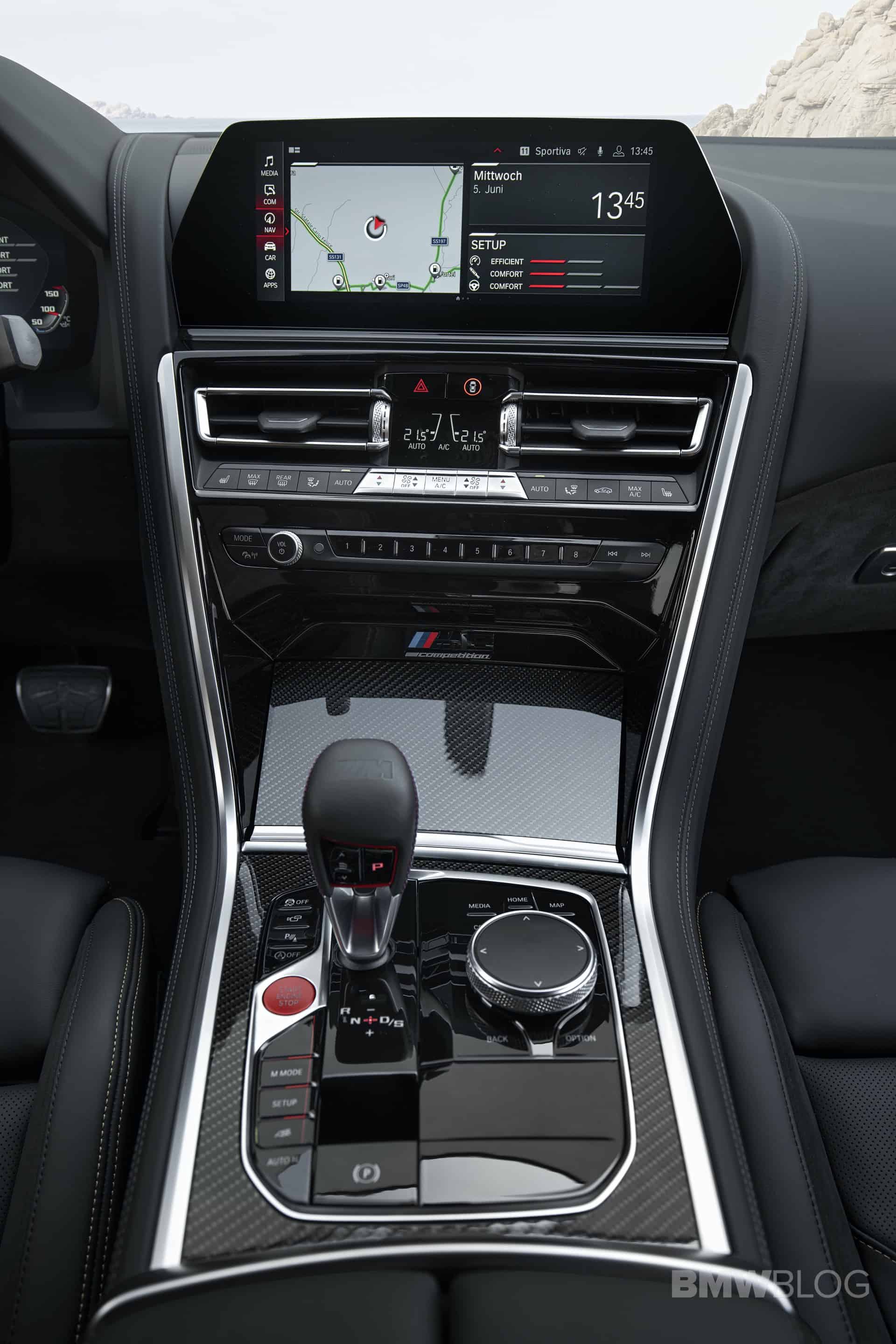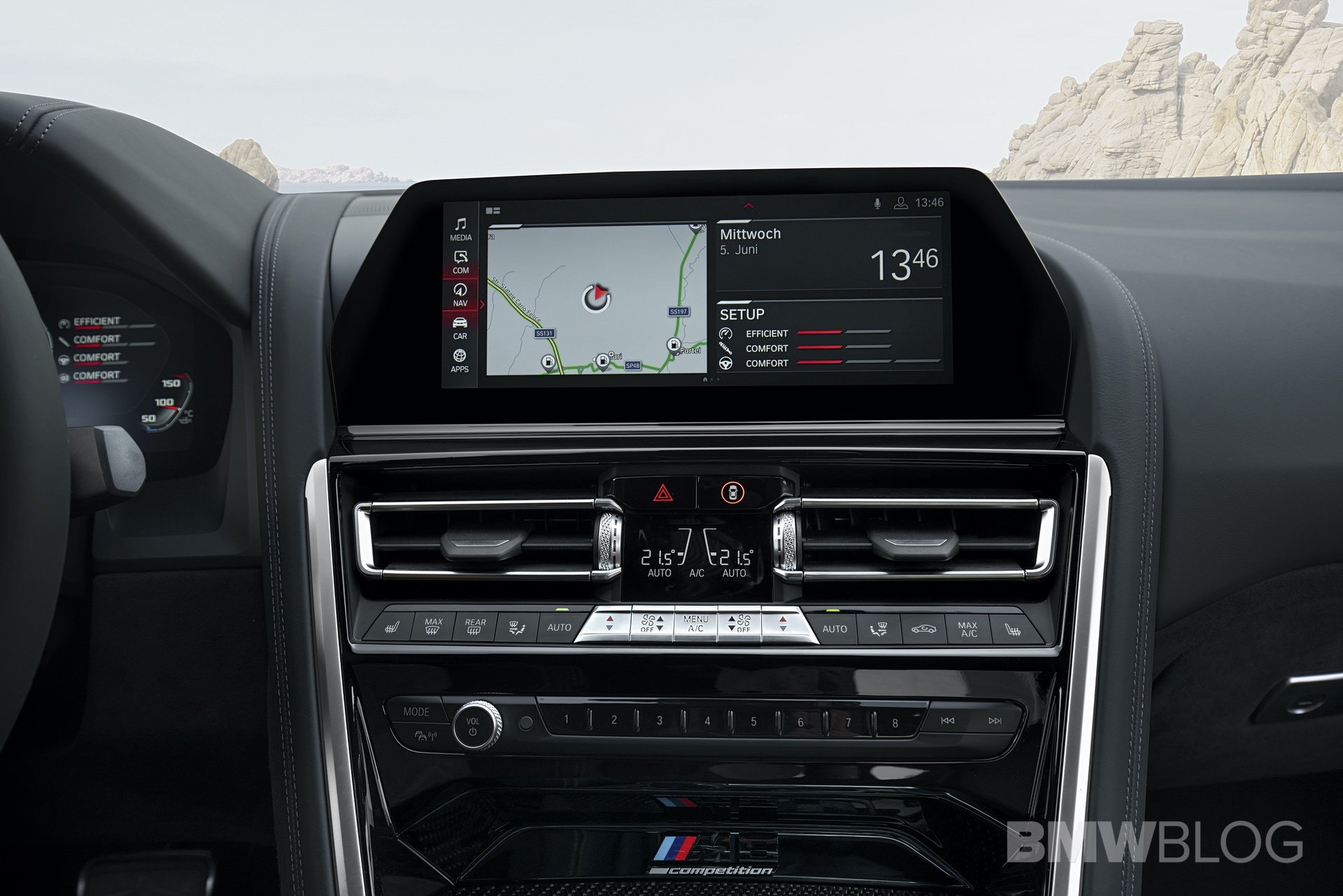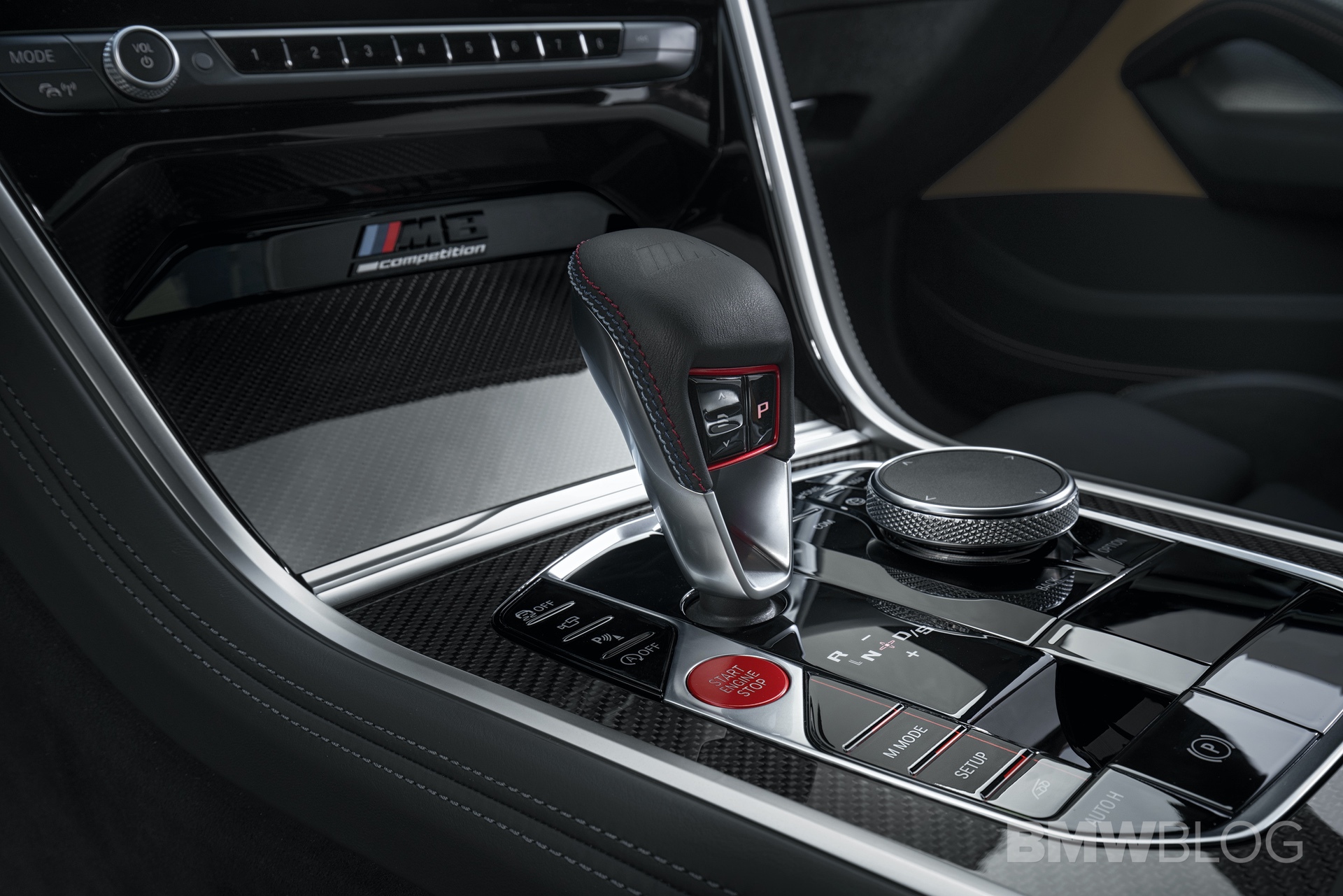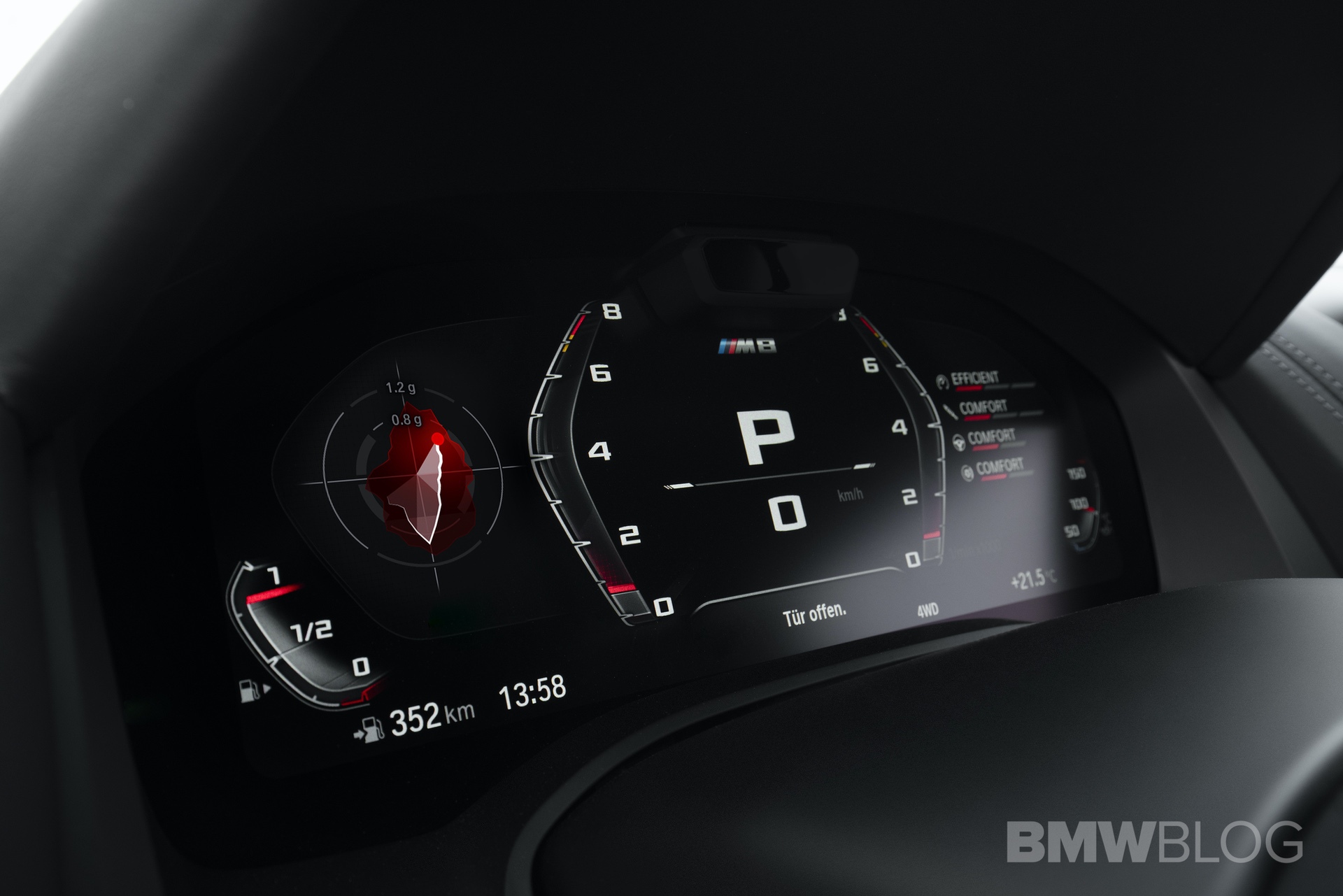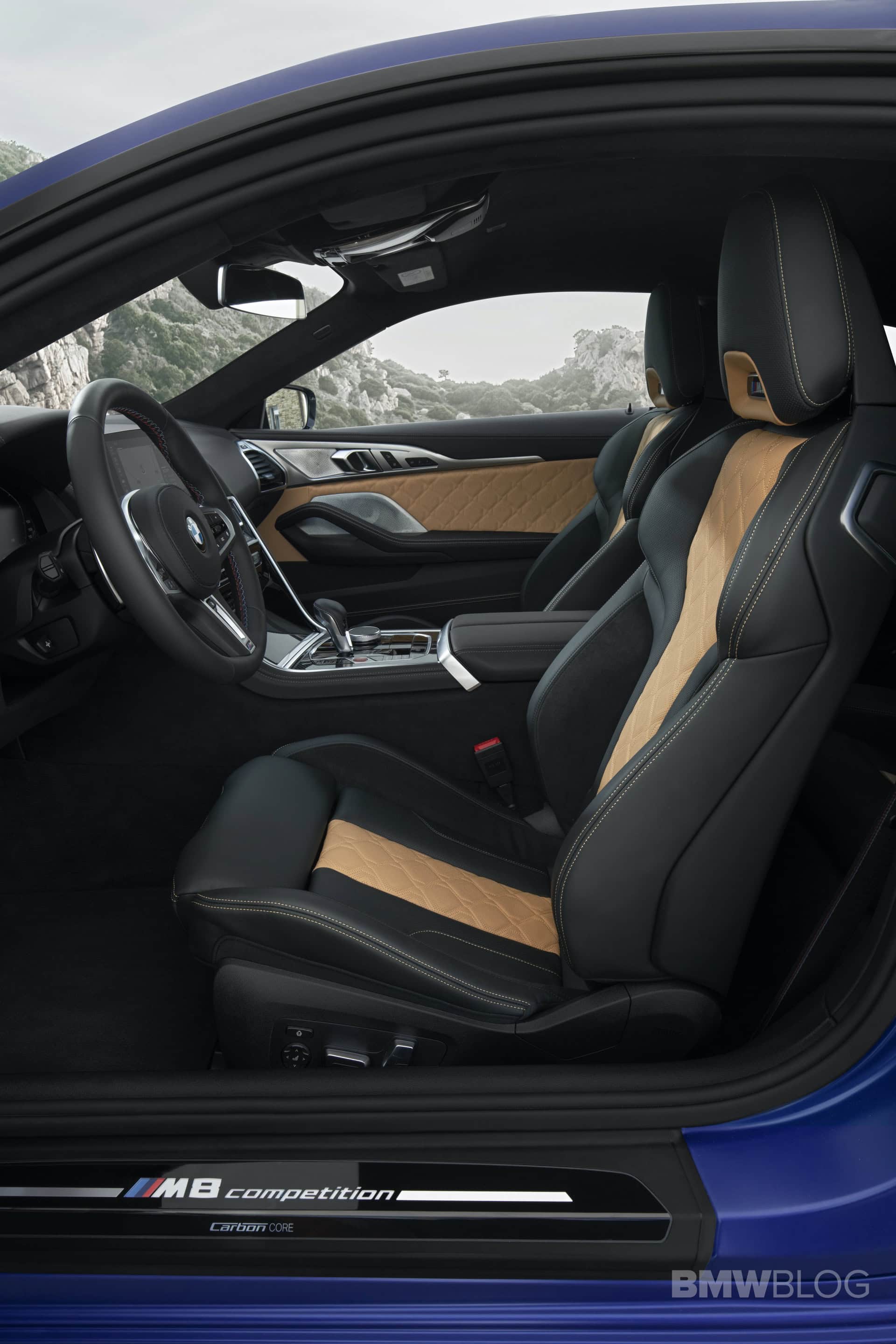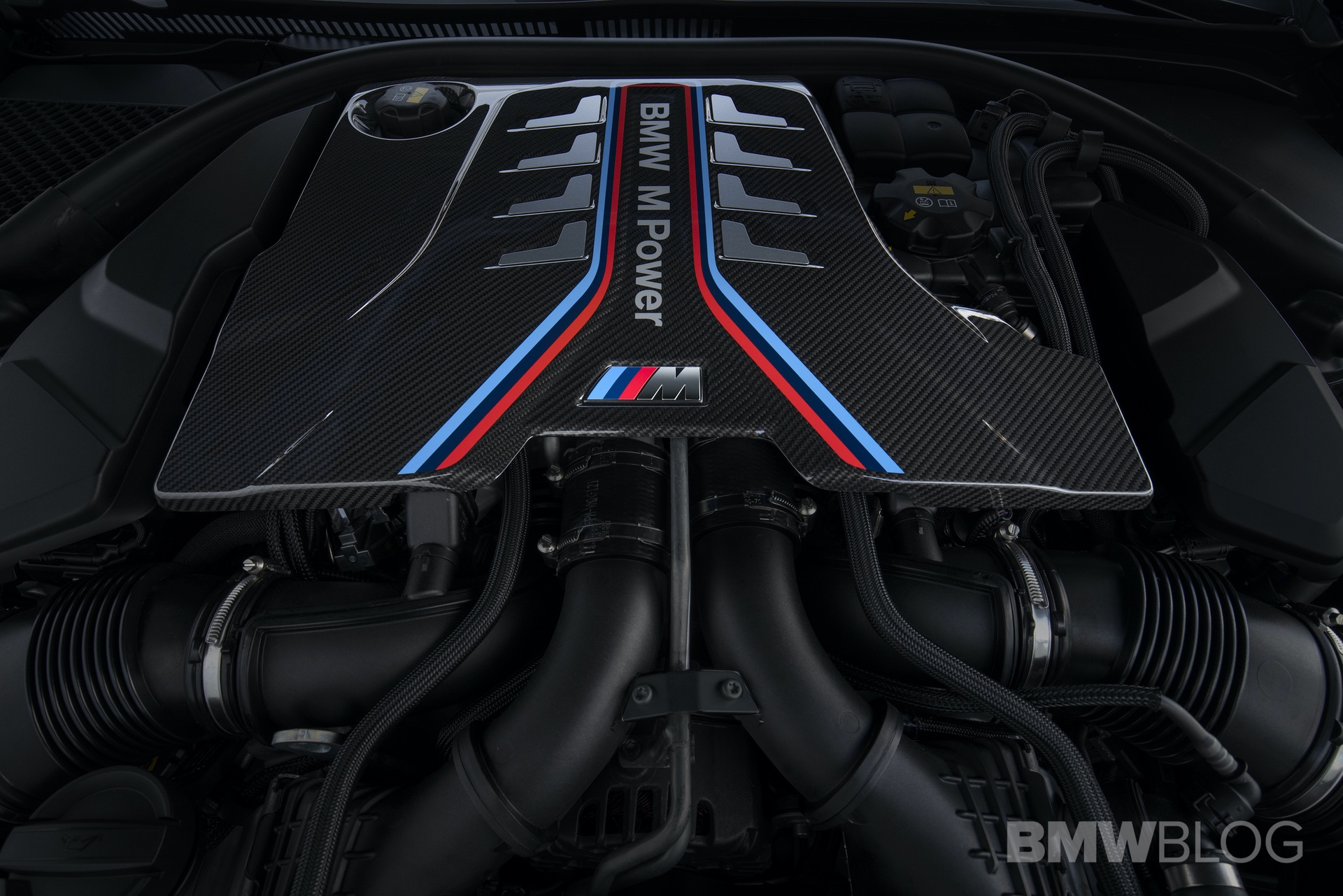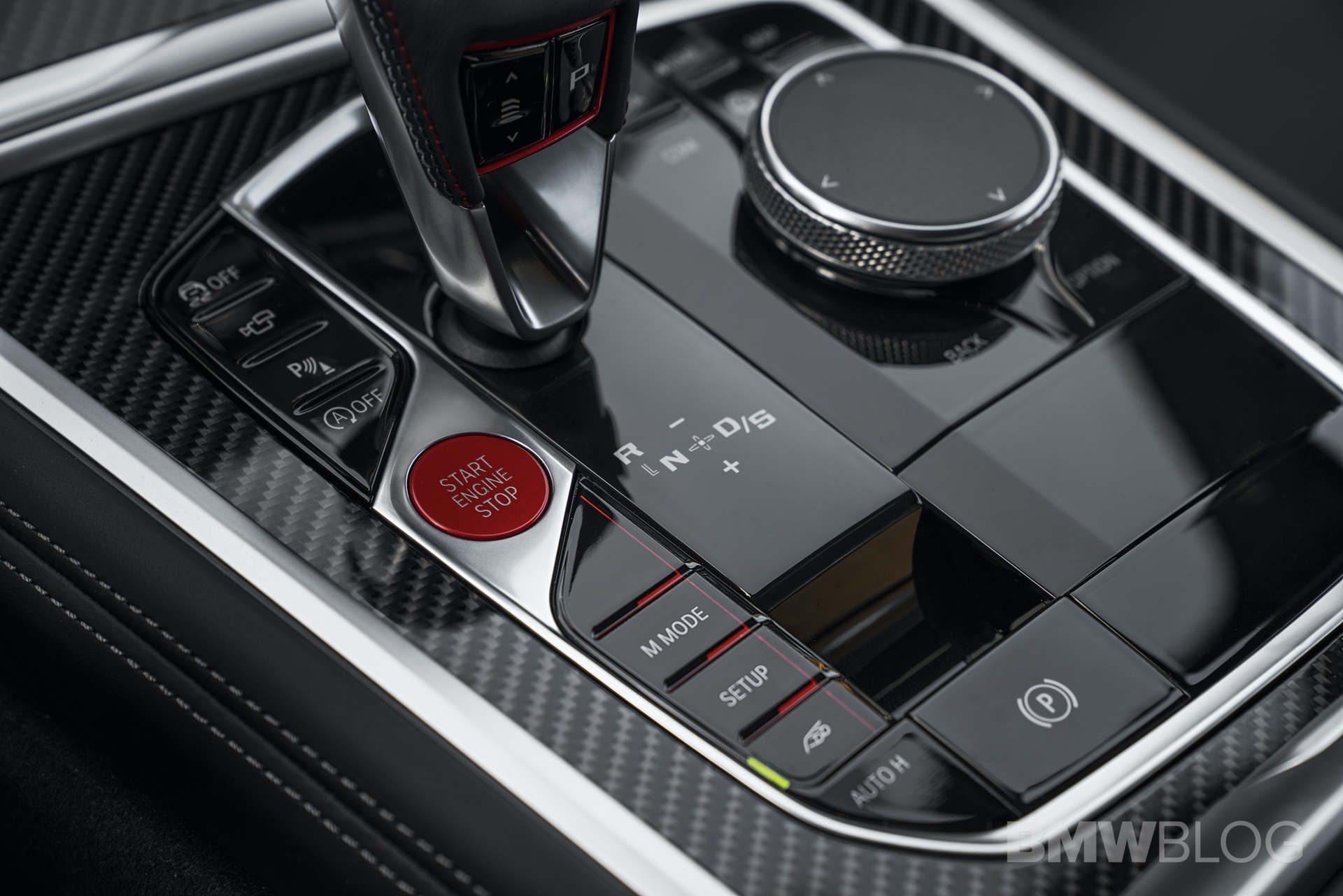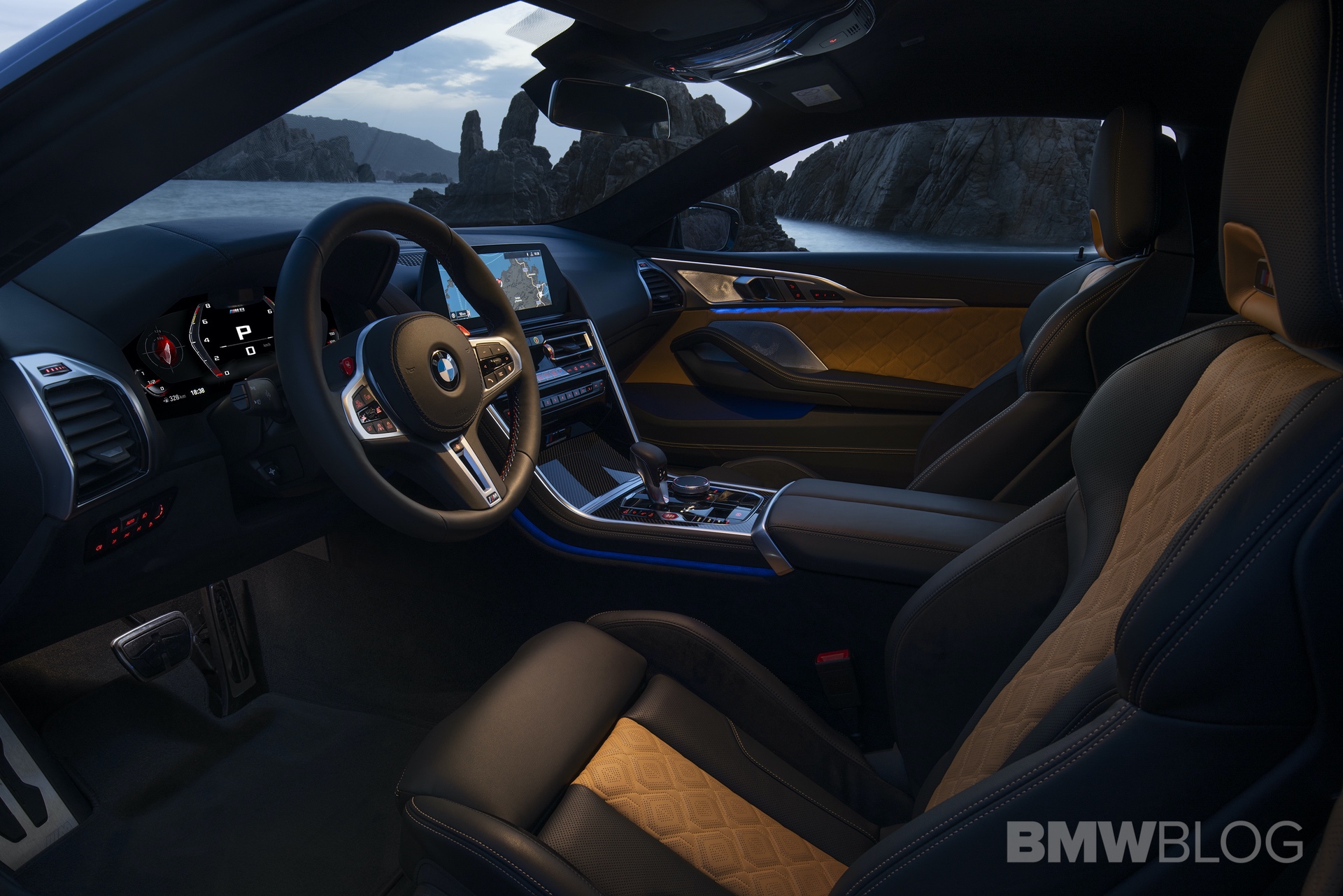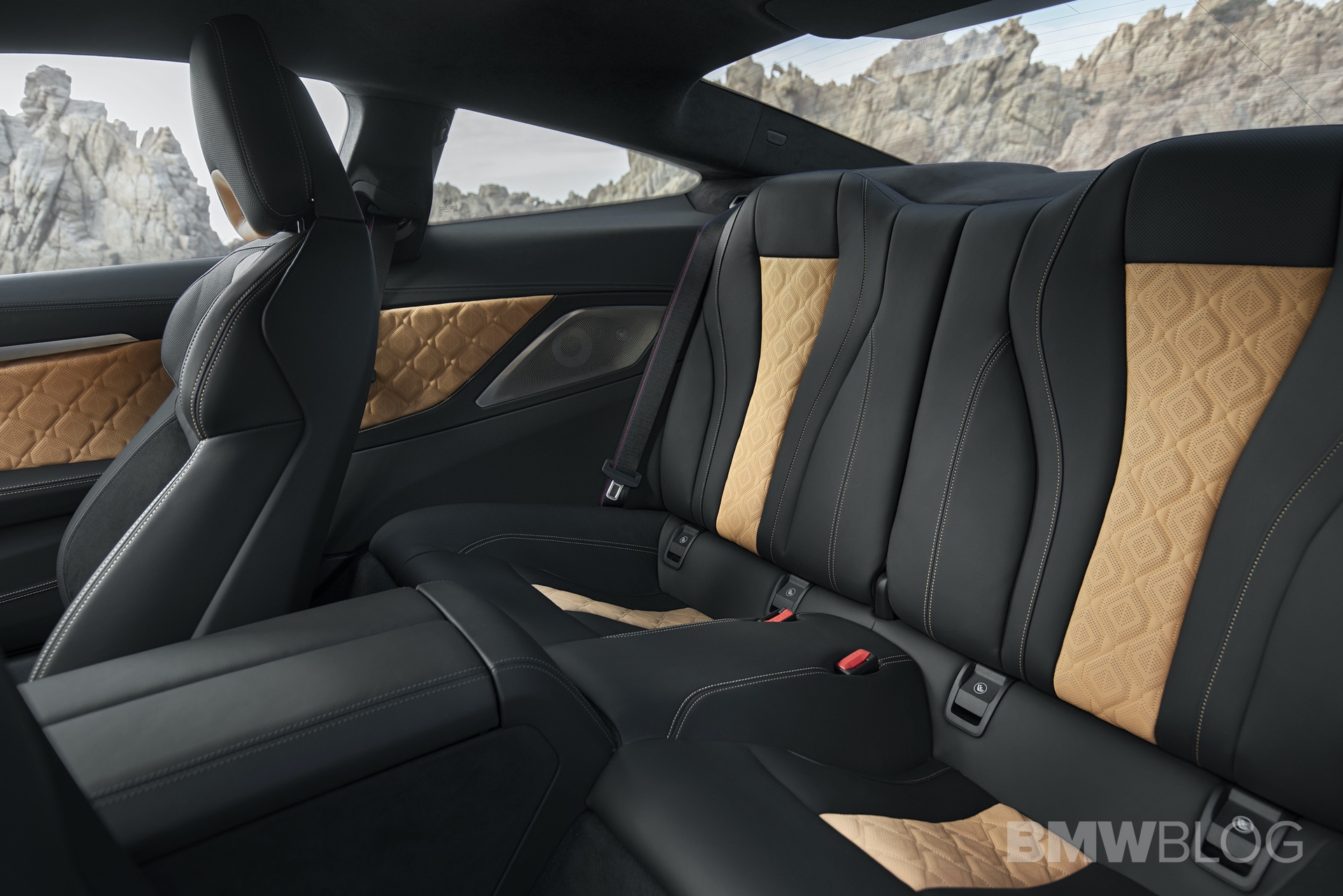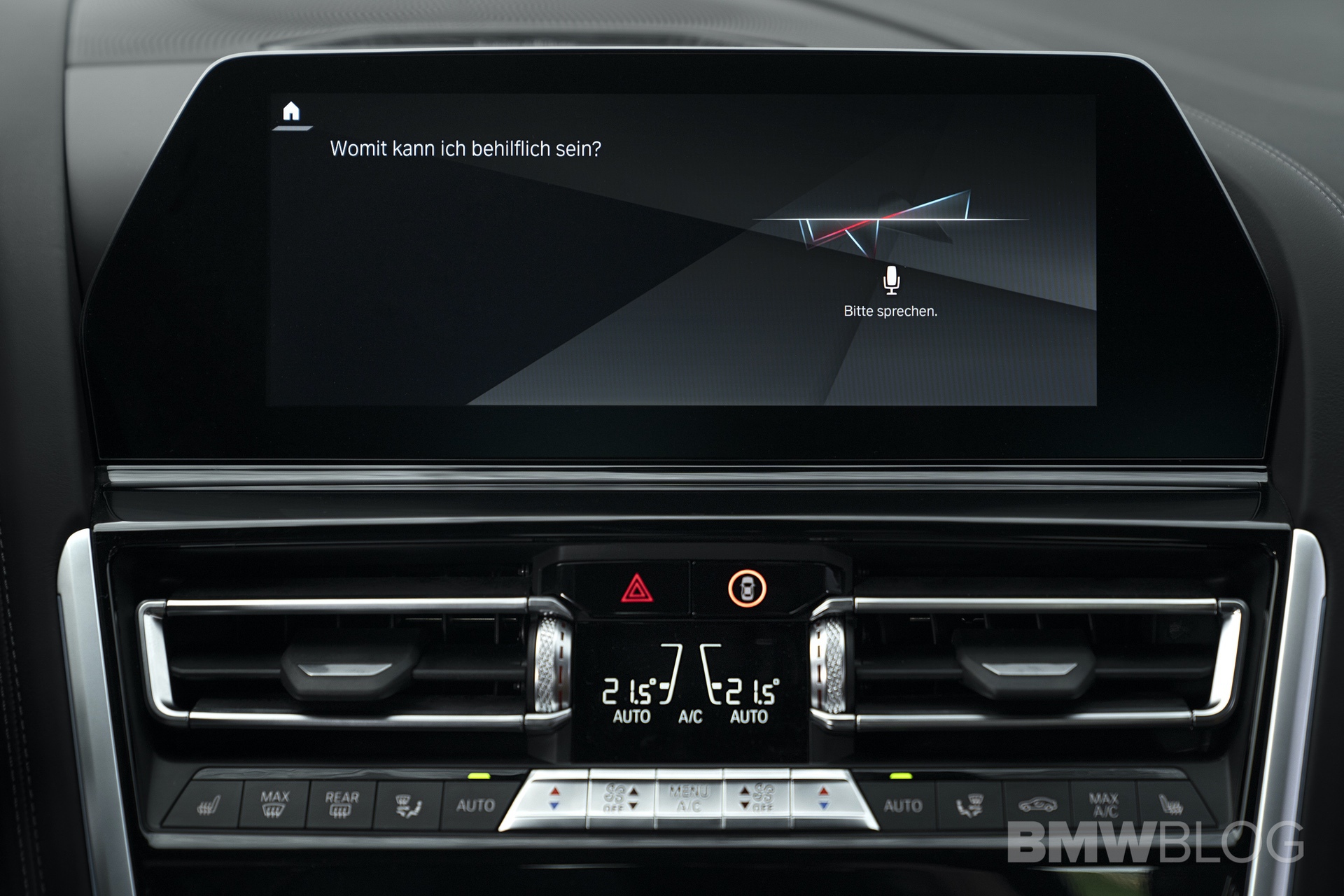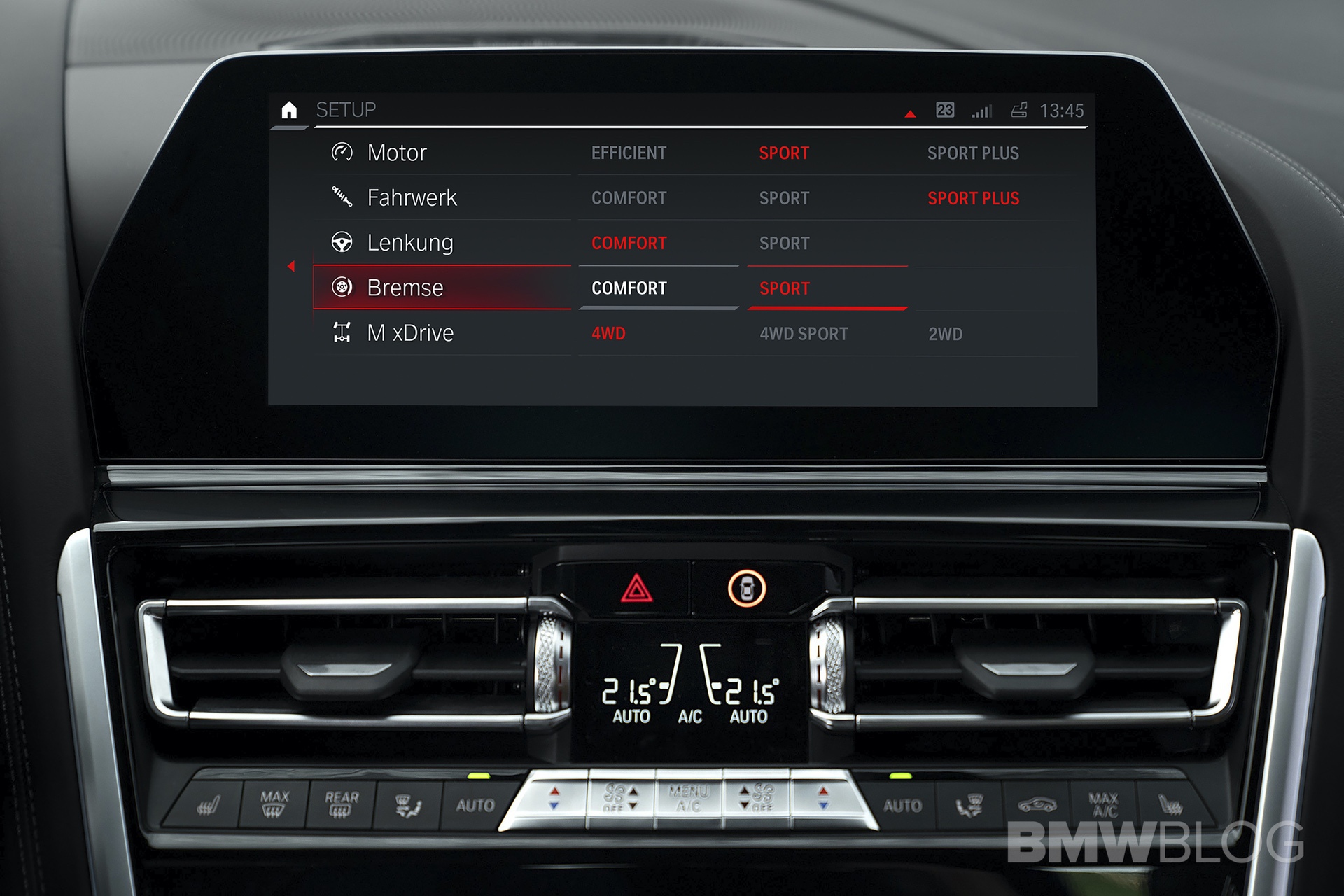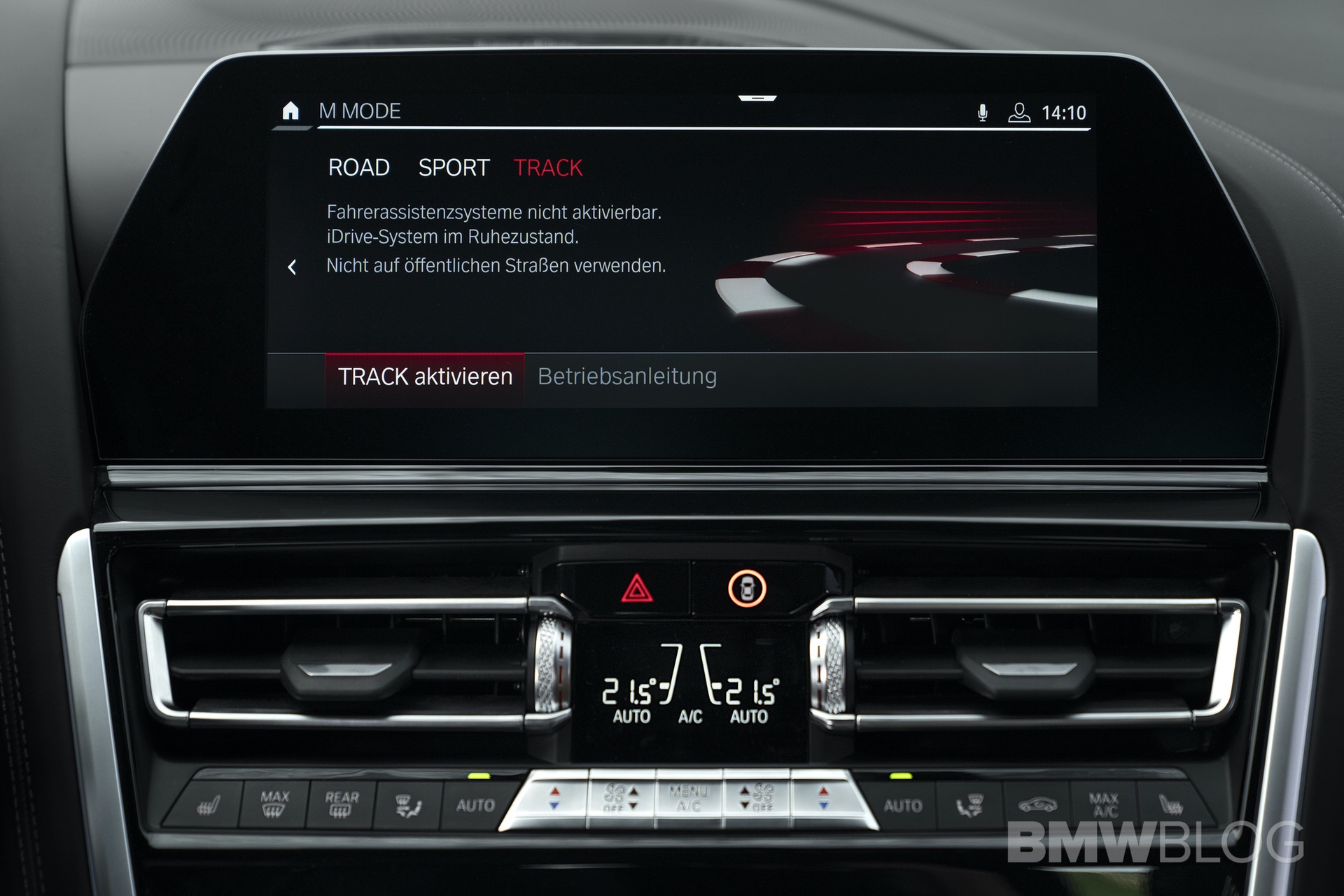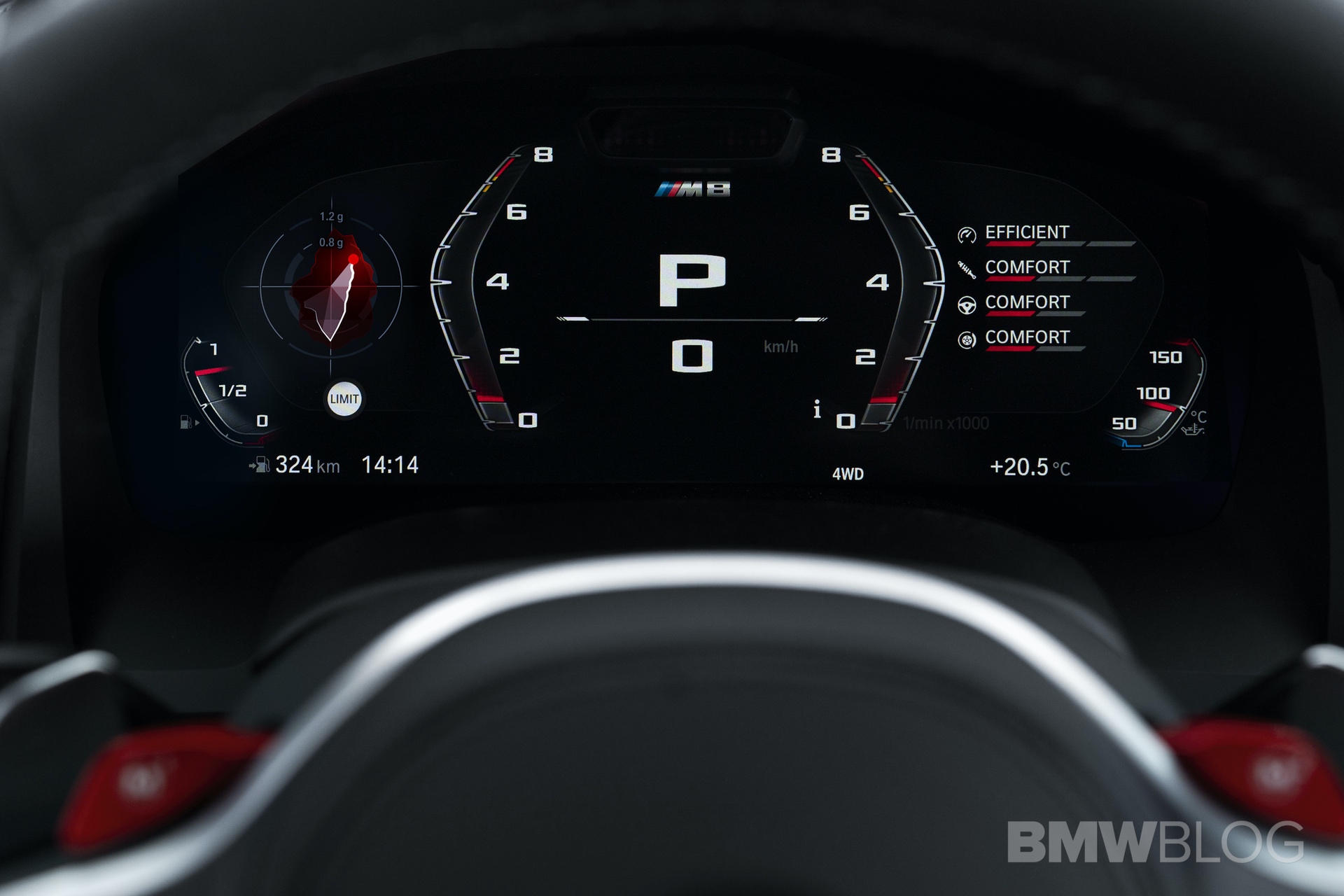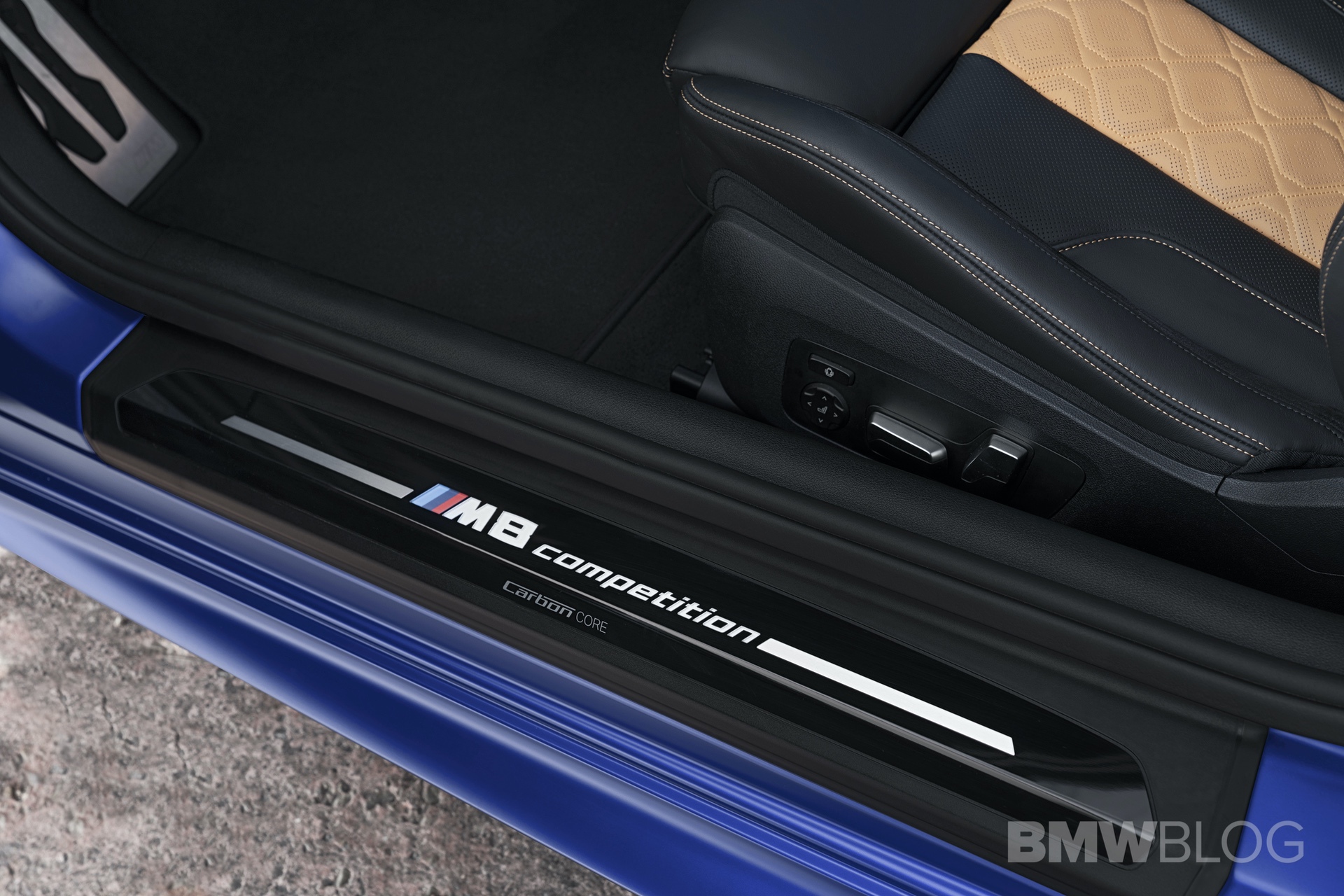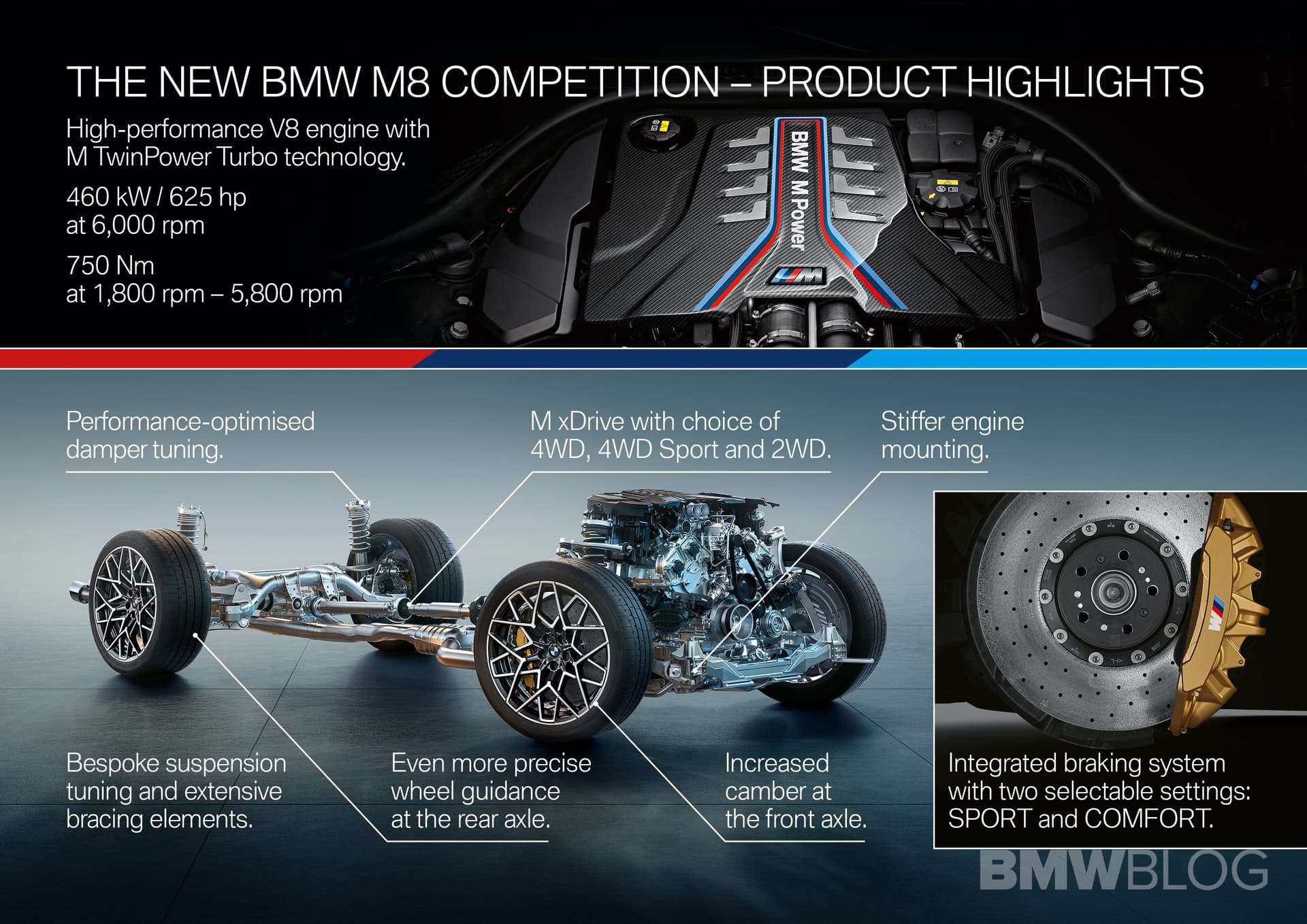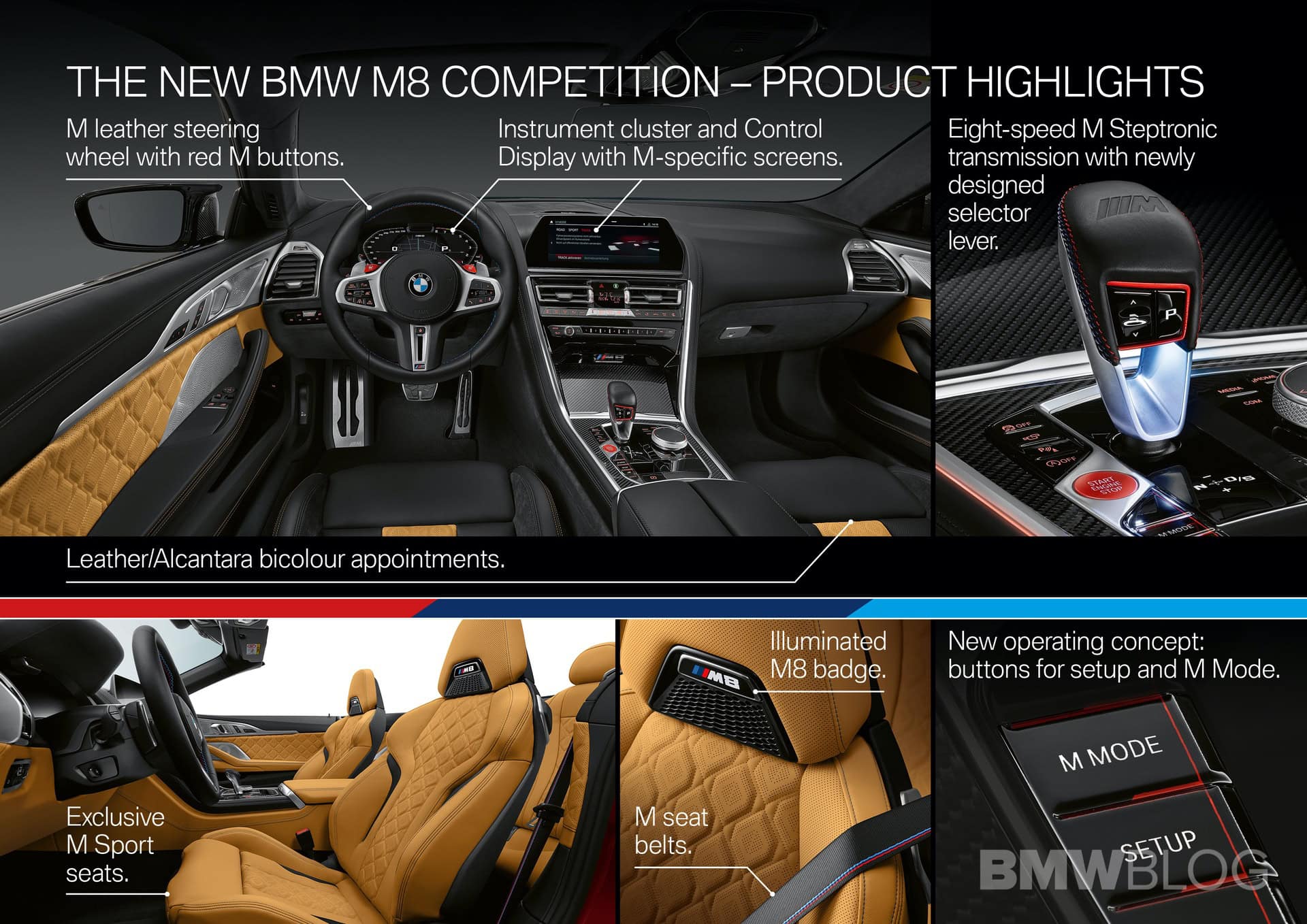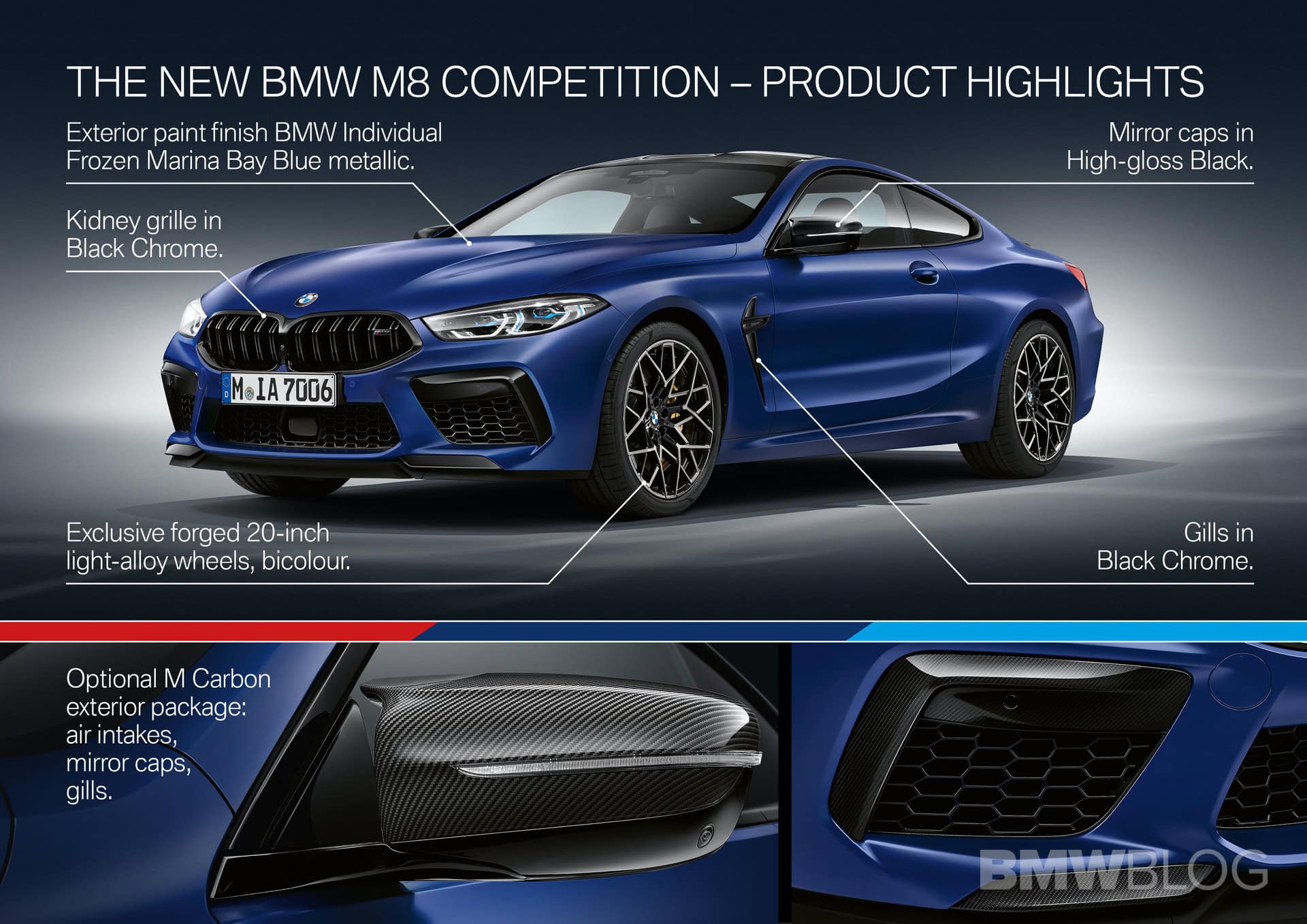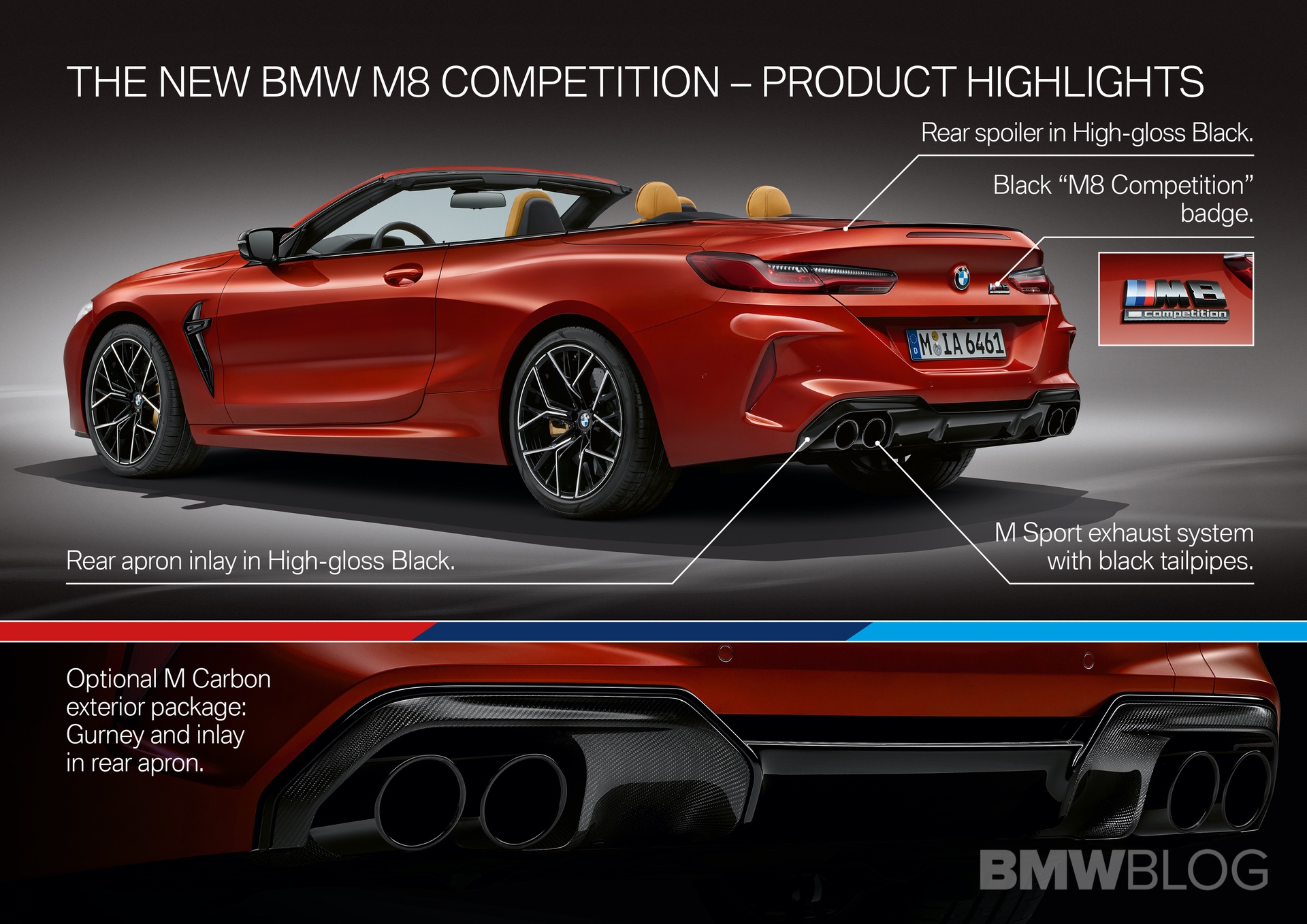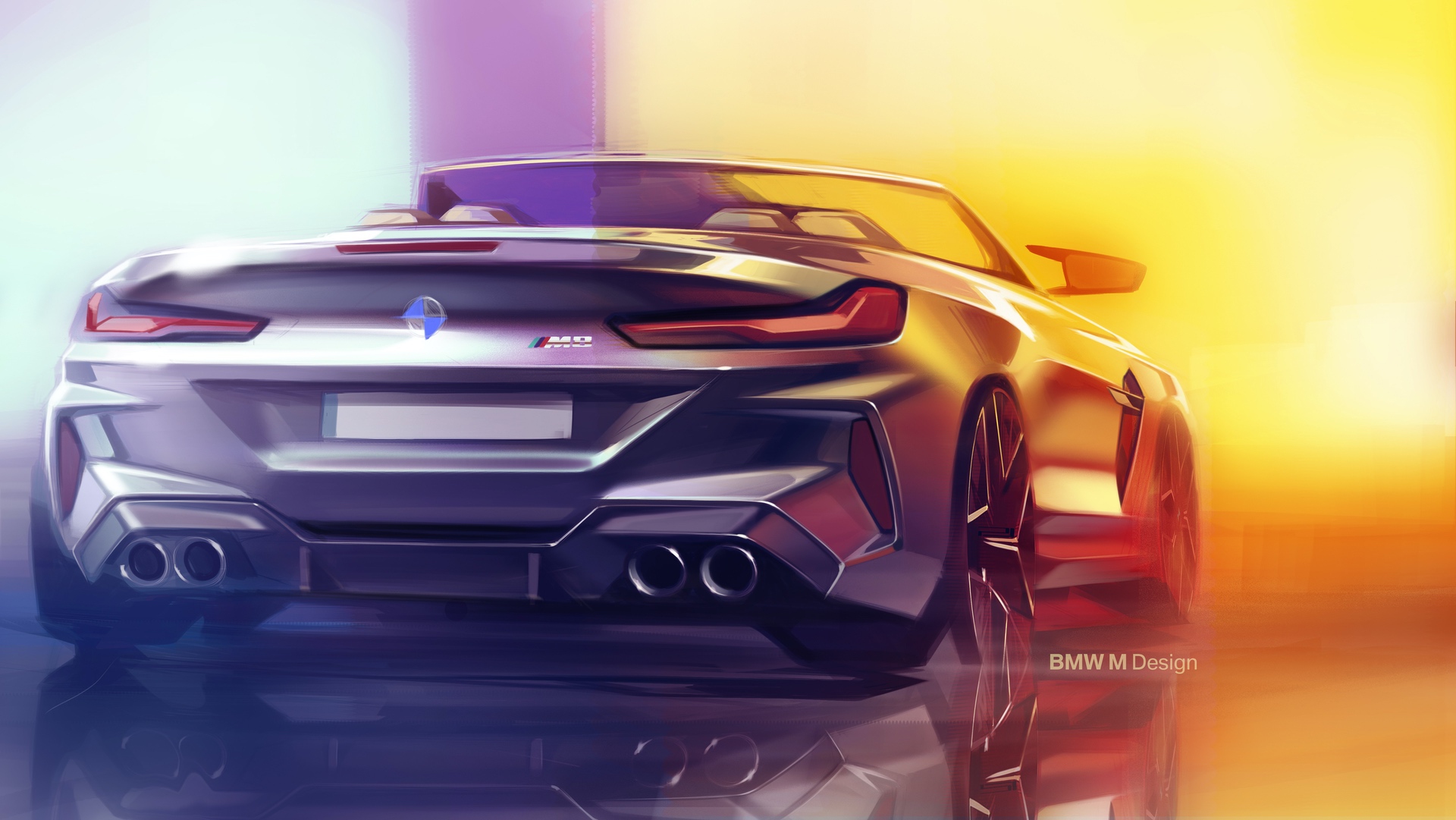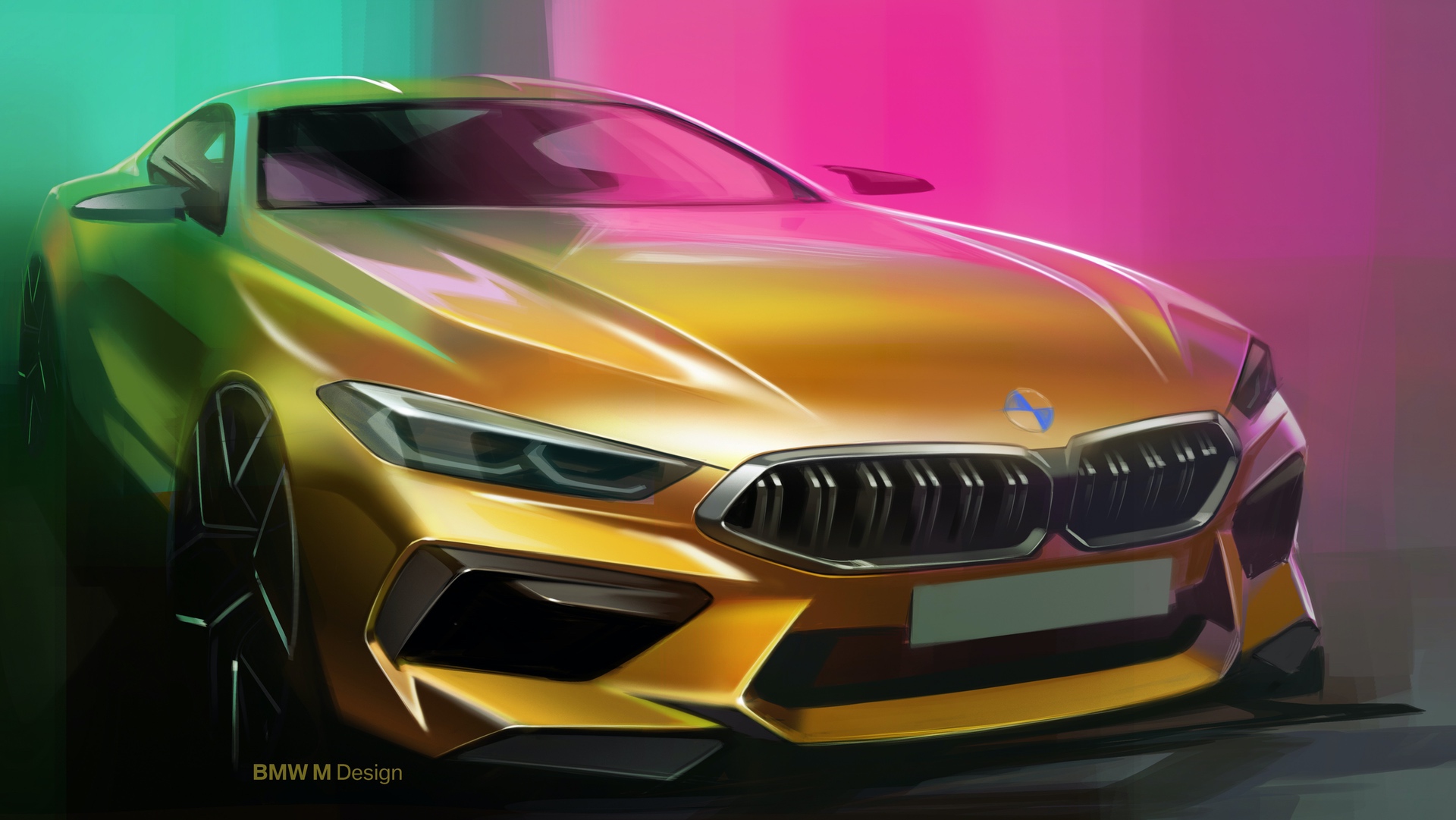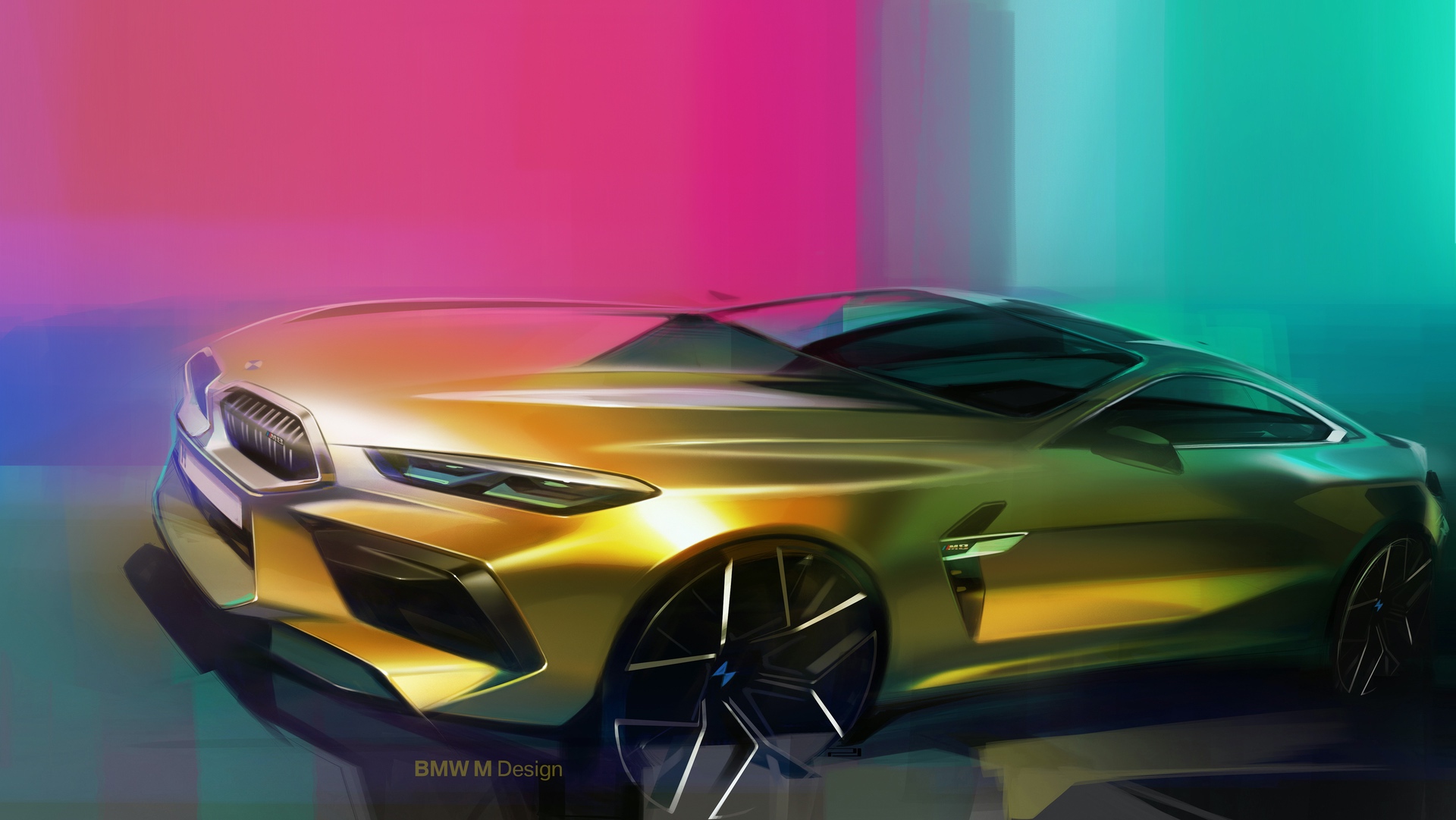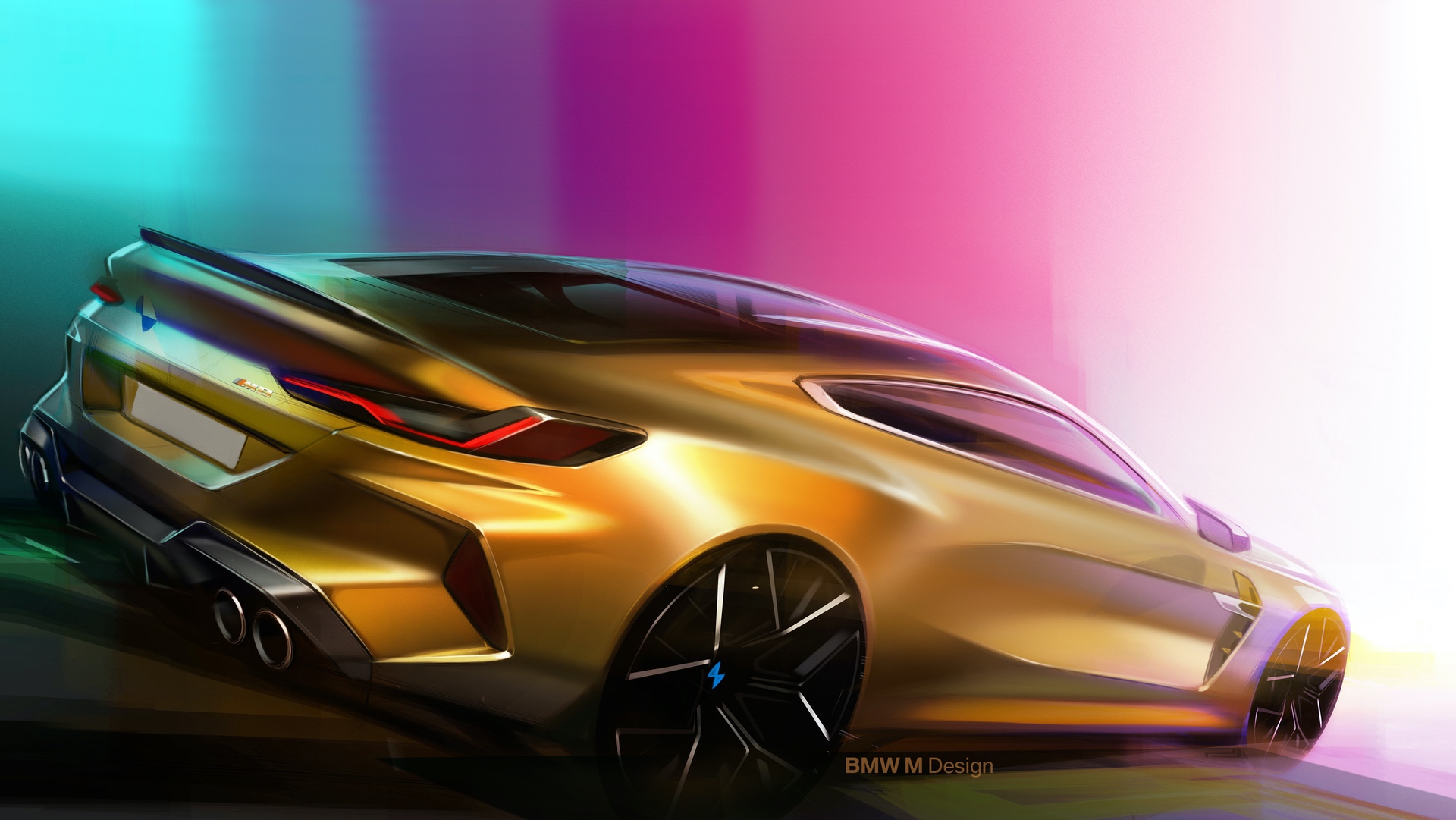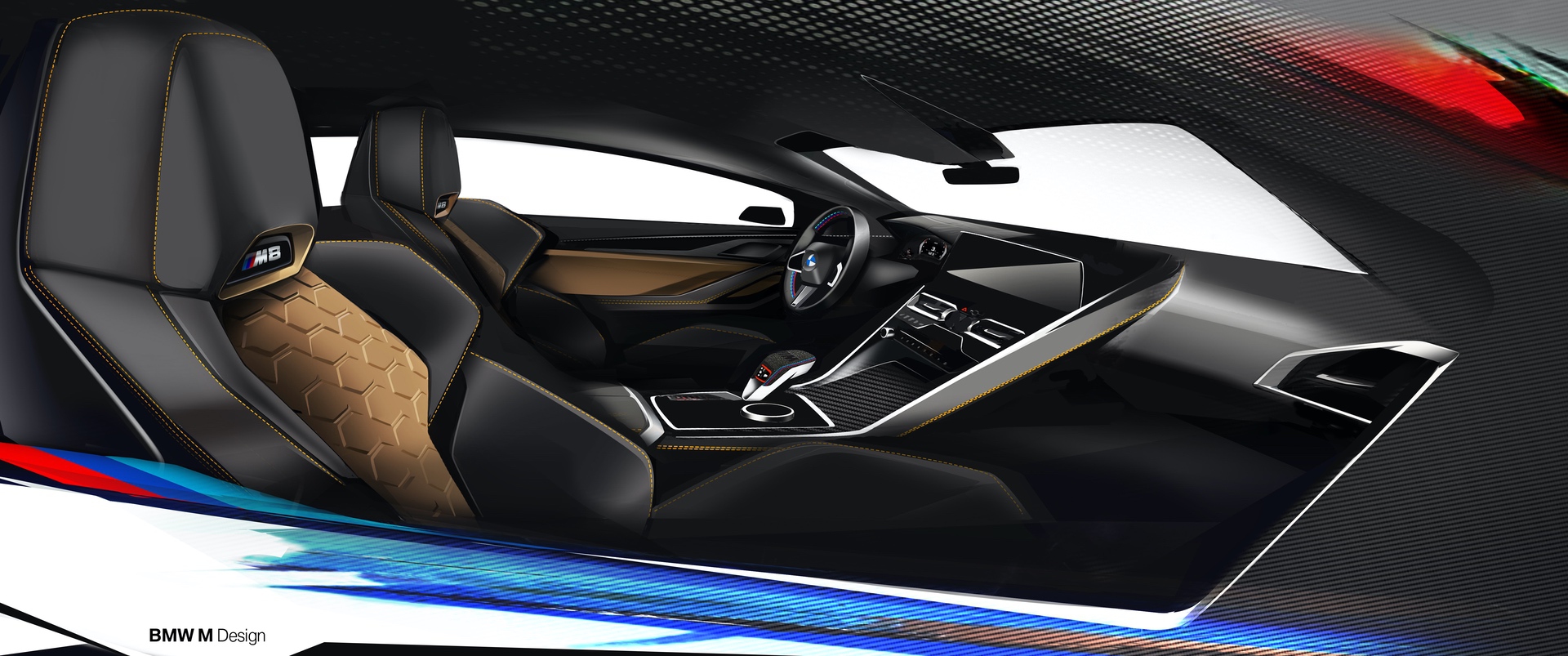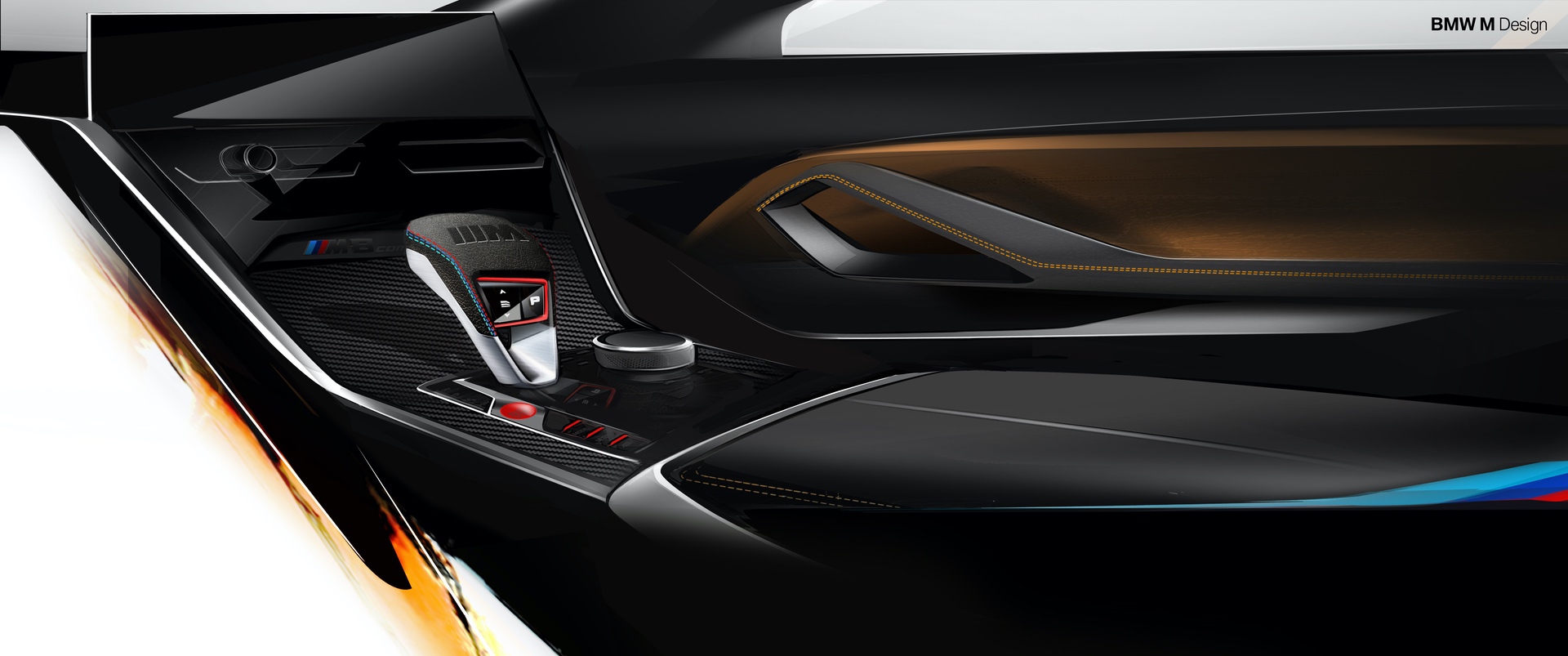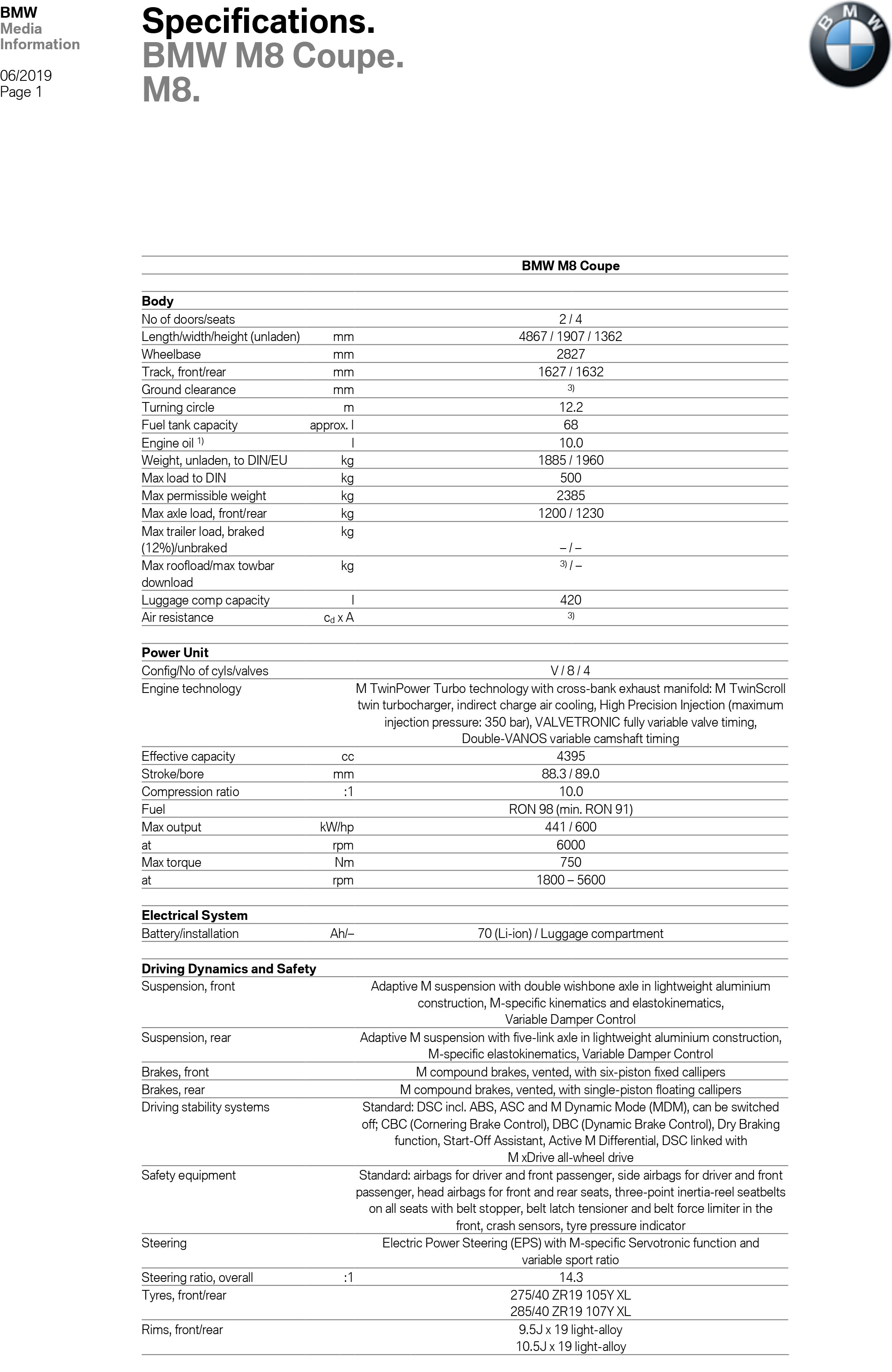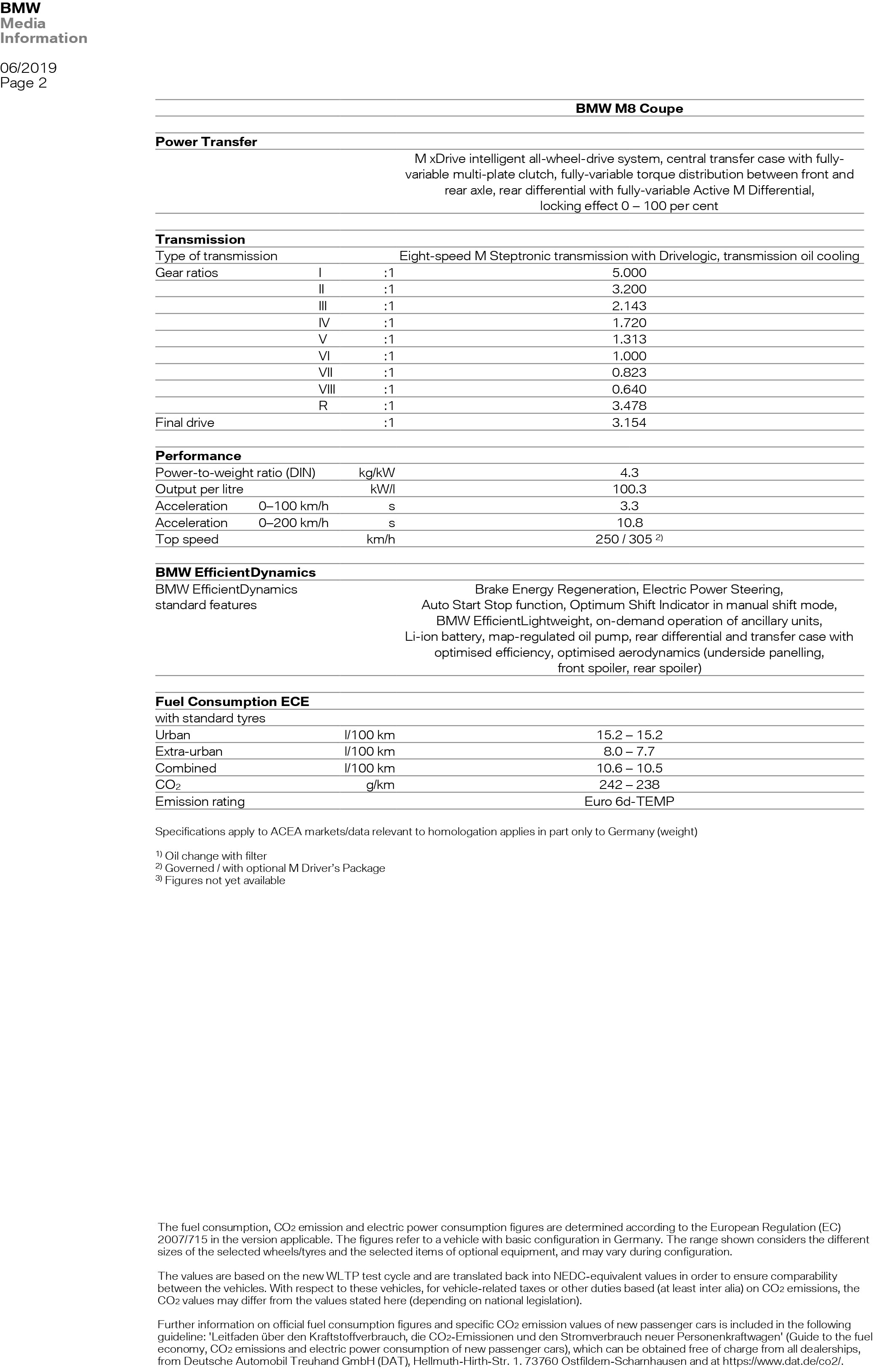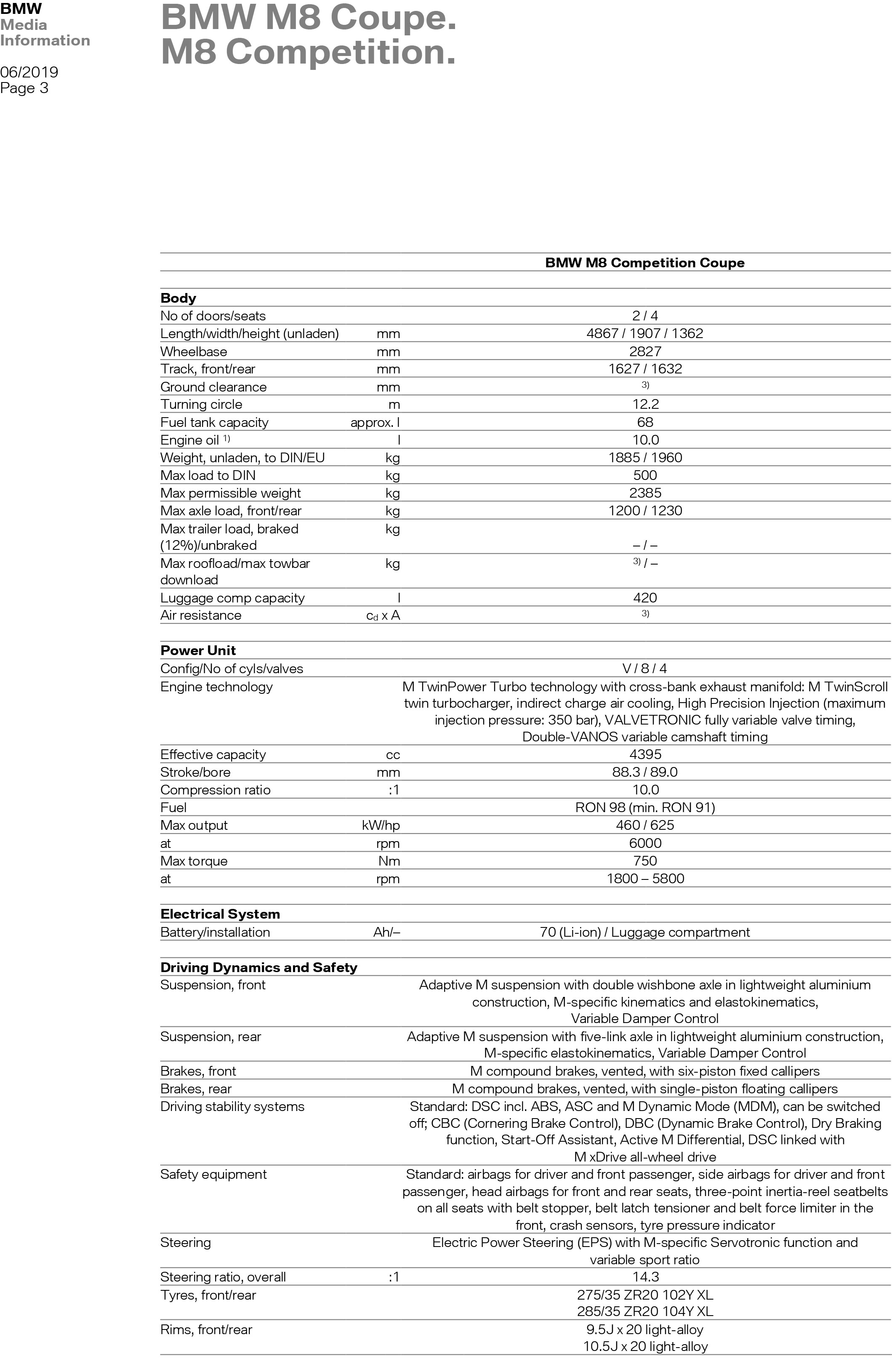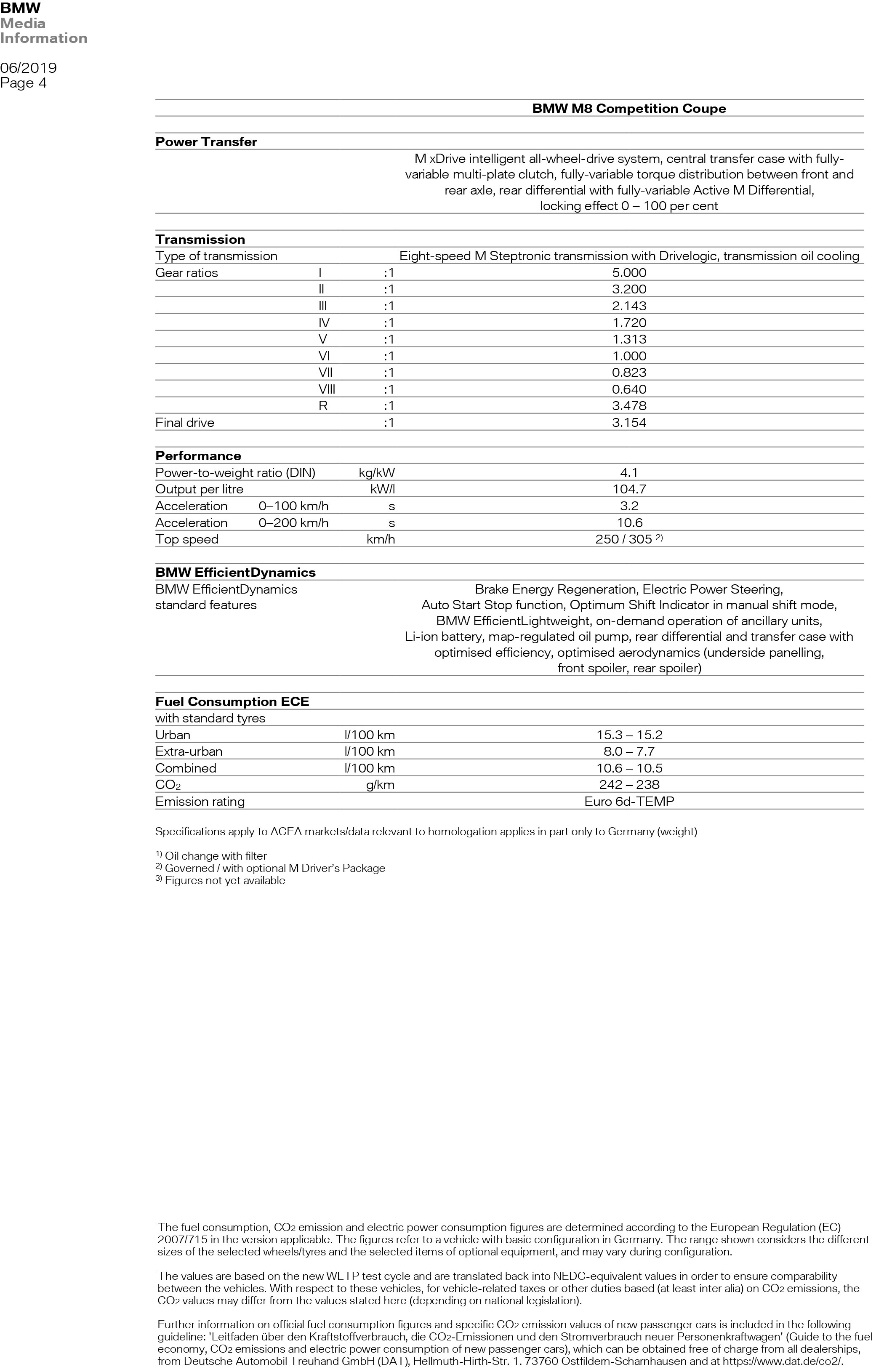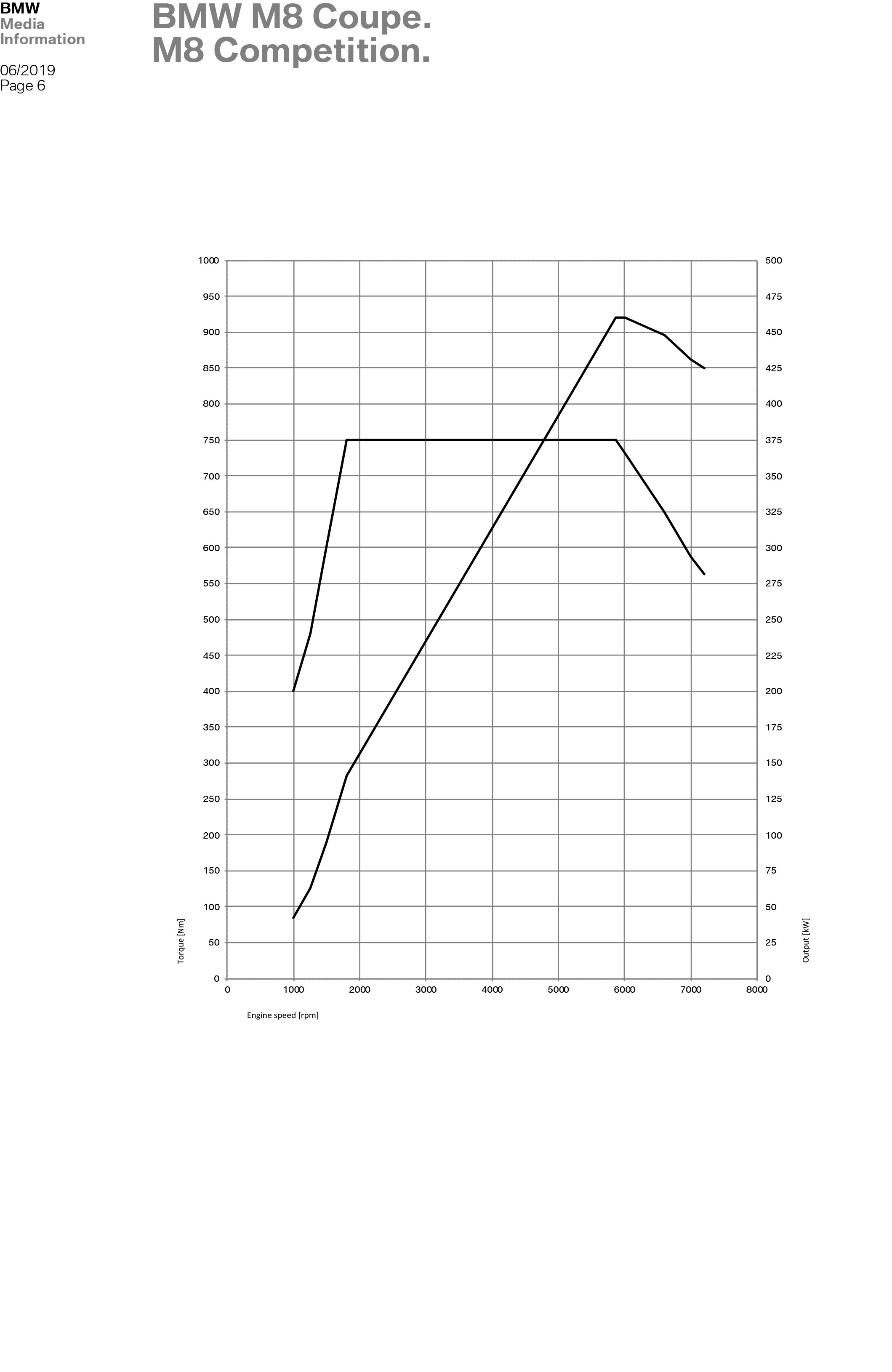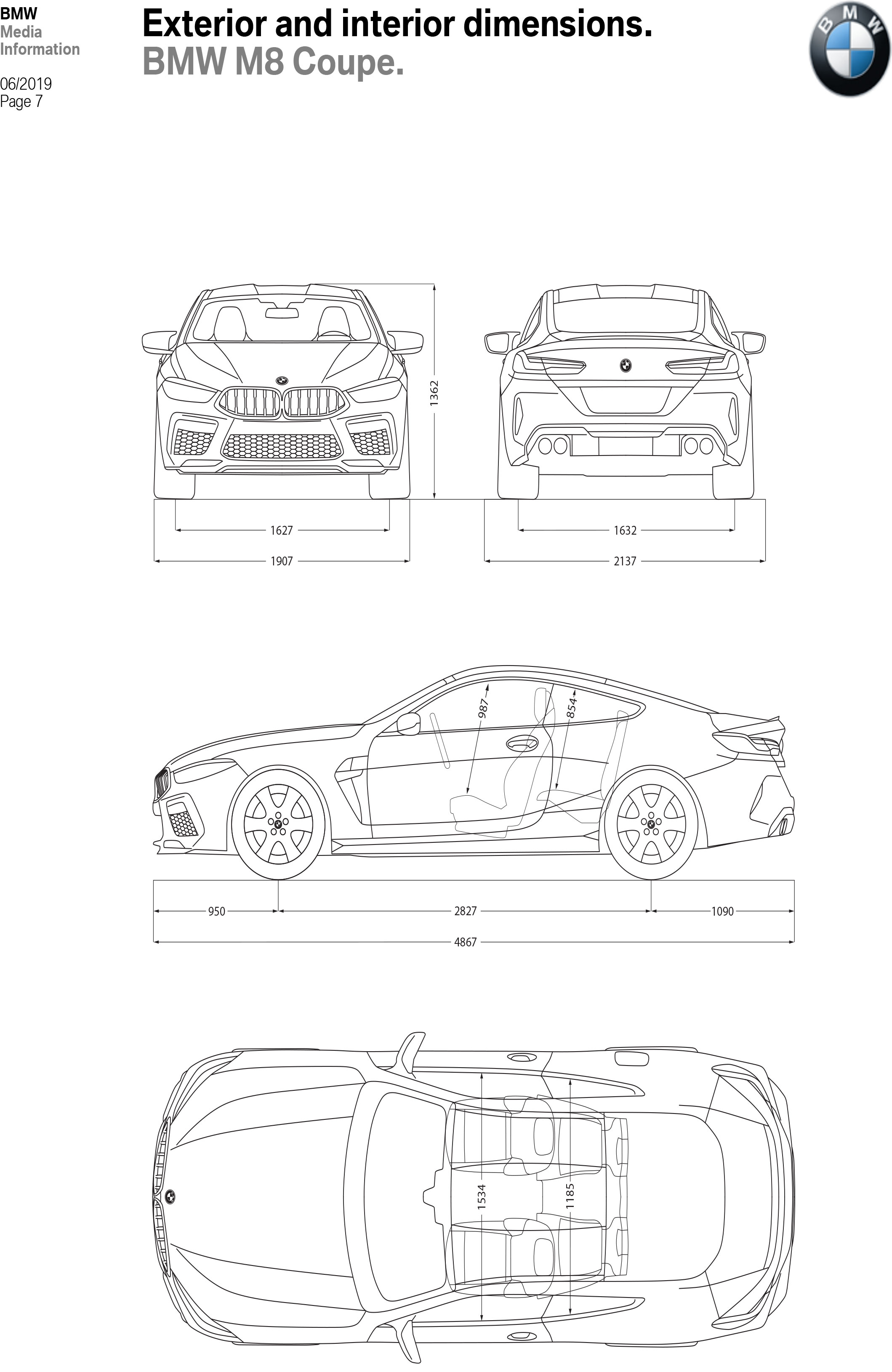Before today, there’s never been an official BMW M8 production car. The first-generation 8 Series was never given a proper M Division variant, despite the call for one from enthusiasts. To be fair, BMW did test the waters a bit, with a one-off prototype M8 back in the early ’90s. Though, it was too extreme for a production car, to put it lightly, and only saw the light of day a few years ago. Today is the day, though that we finally get a BMW M8 production car and it’s a day that enthusiasts have long been waiting for.
Pricing for the new 2020 M8 Coupe is $133,000 and $146,000 for the M8 Competition Coupe. The 2020 M8 Convertible MSRP is $142,500 and $155,500 for the M8 Competition Convertible. Pricing does not include $995 Destination.
Obviously, the new BMW M8 is based on the standard 8 Series but has had everything turned up to eleven. But let’s cut to the chase, because there’s really only one thing enthusiasts want to know about. Its engine.
Under the long, sculpted hood of the M8 lies essentially the same engine as in the F90 BMW M5. So it’s a 4.4 liter twin-turbocharged V8 that, in standard guise, makes 600 hp and 553 lb-ft of torque. Those are the same figures as the standard M5 and that’s honestly to be expected. That’s no bad thing, though. The M5 is stupid fast and we suspect the M8 won’t be much different.
According to BMW, the M8 Coupe can get from 0-62 mph (100 km/h) in 3.3 seconds. Like the M5, though we suspect the M8 will be a few ticks quicker than that, potentially breaking into the 2-second range.
Just like its aforementioned sedan sibling, there will also be a BMW M8 Competition. As the M8 Competition is the brand’s flagship performance machine, it needs to have the biggest horsepower figure of them all and it does. The M8 Competition will use the same engine but make 625 hp and the same 553 lb-ft of torque. That little bit of extra power is said to drop its 0-62 mph time by one tenth, doing it in 3.2 seconds. Again, like the M5 Competition, we suspect it will drop into the two’s.
Paired with that twin-turbo V8 is an eight-speed ZF-sourced automatic, much like the M5. If you haven’t figured it out by now, the BMW M8 essentially uses an M5 powertrain. That’s not a complaint, though. The M5 is brilliant to drive and its powertrain is a huge part of that. The ZF auto ‘box works wonderfully in the M5 so we expect it to do the same here.
Same goes for the drivetrain. The BMW M8 gets an advanced xDrive all-wheel drive system that splits most of the power to the rear wheels until the fronts are needed. Working in combination with the all-wheel drive system, an Active M Differential is standard equipment at the rear axle. The latter can lock anywhere between 0-100 percent in milliseconds and is essential for keeping its rear-end in check. Or doing big, smokey skids, depending on the driver’s preference.
There will also be multiple modes for the xDrive all-wheel drive system. So the BMW M8 can switch from the normal ‘4WD’ mode to a sportier ‘4WD Sport’ mode. The latter will keep more power at the rear axle and will allow for more hilarious slip-angles before it reins everything back in. If those slip angles aren’t enough for you, and you want some extreme tire-roasting fun, there’s a ‘2WD’ mode that completely deactivates the front axle. It also deactivates DSC entirely, so it’s the maximum hooligan mode. Unlike other brands’ “Drift Modes”, the M8’s ‘2WD’ mode stays on until the driver turns it off.
All of that power and tire-shredding ability is for naught if it can’t handle like a proper M car, however. The M8’s double-wishbone front suspension and a five-link rear axle have been designed with bespoke kinematic and elastokinematics, unique from its other 8 Series siblings. According to BMW, the M8 road car has had its chassis and suspension tuning developed with lessons learned from the M8 GTE race car. It’s also been given a stiffer anti-roll bar at the rear and both a steel X-brace and an aluminum transverse strut, for increases rigidity.
The BMW M8 also gets the M Division’s new Servotronic variable steering rack. So speed-sensitive power assistance along with a variable ratio combine to allow for the exact combination of steering weight and accuracy for every situation. In theory. The thought of variable steering racks still sends shivers down the spine of BMW enthusiasts fearful of vague steering. However, if the M5 is any indication, the M8’s steering will be very good.
However, the BMW M8 Competition will be tuned uniquely. Its steering, suspension and chassis are slightly sharper and more dialed in than the standard car, designed to give it an edgier, racier feel. To do so, BMW M has given the M8 Competition increased camber at the front axle, toe-link ball-joints instead of rubber bushings and even stiffer engine mounts. All to increase stiffness and chassis communication. Adaptive dampers are as-standard equipment on both cars, with the usual Comfort, Sport and Sport Plus modes.
What’s really unique about the BMW M8 is its brakes. It’s an integrated braking system that’s essentially a two-mode brake-by-wire setup. It uses a vacuum-free brake booster with an electronic actuator to deliver braking pressure. The idea here is that it can deliver more precise braking power while also eliminating pedal feel/pressure changes based on outside variables. So feedback through the brake pedal remains constant, even in wet conditions or during high lateral loads. It also has two modes, Comfort and Sport, which deliver different levels of pedal feel and pressure, to allow the driver to choose which to use at any given time.
There are two ways to look at that. One is that it offers the driver a more precise means of braking, which is even more important than accelerating, while also allowing the driver to choose a more comfortable pedal feel for everyday driving. Though, the other way to look at it is that it’s an overly complicated answer to a question no one asked. How well will this work? Only time will tell. Though, we can’t wait to drive it and find out.
The actual brakes themselves are massive 395 millimeter rotors with six-piston fixed calipers up front and 380 millimeter rotors out back with single-piston floating calipers. Optional M Carbon Ceramic brakes bring 400 millimeter rotors to the front and 380 millimeter rotors to the rear, for better track use and fade-free braking. Those carbon ceramics also get those flashy gold brake calipers that so many BMW M fans like.
Now that we’ve talked about its technical bits, it’s time for the fun part — its looks. We’ve actually already seen the BMW M8 Coupe in person and it looks fabulous. The 8 Series in any iteration is a pretty car but the M8’s little bit of extra aggression makes it that much better.
The M-style side mirrors, decklid spoiler, added aero bits at the front and quad exhausts all combine to make the BMW M8 even better looking than the already quite beautiful M850i. It looks especially good in M8 Competition guise, with its carbon fiber mirrors and spoiler, as well as gloss-black trim and badges. It also gets a sort of double-bubble carbon fiber roof, a design that’s mirror in its rear spoiler.
Those new wheels are also great looking. BMW M has always had good looking wheels but some of them have been a bit boring as of late (we’re looking at you, M5). These M8 Competition wheels, with their 3D-sculpture design, look fantastic.
BMW M8 Coupe – Exterior
Inside, the BMW M8 gets a few unique updates that separate it from its regular siblings. For starters, it gets new seats, with thicker side bolsters and a new diamond-esque inlay pattern. That same new pattern is present on the door panels as well and looks really quite good with a two-tone color scheme.
A new shift lever replaces the M5’s robot-leg knob and it looks much better. It’s now covered in black leather with red contrast stitching, giving it a more sportier look while also looking more premium than the plastic square in the M5. Having actually sat in the new M8 and held the new shifter, I can personally say that it’s much better than the one in the M5.
Red accents on all of the buttons make the center console seem a bit sportier than the standard 8 Series’. Though, the actual design is virtually unchanged. The steering wheel gets the same red ‘M1’ and ‘M2’ buttons as in the M5 and the digital instrument panel gets the new M style screen option.
It’s not entirely different than the M850i inside but, having sat in it, it does feel more special and more exciting.
The BMW Live Cockpit Professional also brings the benefits of the new BMW Operating System 7.0 to to the M8. Its fully digital screen grouping comprises a high- resolution instrument cluster behind the steering wheel with a screen diagonal of 12.3 inches and a 10.25-inch Control Display.
The driver has a choice of the Control Display’s touchscreen, the familiar iDrive Touch Controller, the controls on the steering wheel and voice control. Plus, in the new BMW M8 Coupe and new BMW M8 Competition Coupe, they also have the option of BMW gesture control.
The BMW Intelligent Personal Assistant is another element of the operating system. The digital companion can be activated with the spoken prompt “Hey BMW” and helps the driver to use vehicle functions. What’s more, he constantly acquires new skills thanks to the updates transmitted seamlessly by Remote Software Upgrade.
The M Mode button on the center console making its debut in the new BMW M8 can be used to alter both the responses of the driver assistance systems and the information shown in the instrument cluster and Head-Up Display. M Mode allows the driver to activate ROAD and SPORT settings, while the new BMW M8 Competition Coupe and BMW M8 Competition Convertible also come with a TRACK setting.
In the default ROAD setting, all the standard and optional driver assistance systems are fully activated. A simple press of the M Mode button engages the SPORT setting, in which the active driver assistance systems (in the configuration set by the driver) now only transmit alerts on speed limits and overtaking restrictions, for example. This mode allows all interventions in the braking and steering systems to be disabled, aside from those made by the Collision Warning with braking function and the Evasion Assistant.
In SPORT mode, the driver benefits from M View in both the instrument cluster and the Head-Up Display. Here, only relevant information for sporty driving – i.e. an M-specific engine speed dial, the shift lights, a digital speed display and the gear currently engaged – is displayed in the cockpit. Information on coolant temperature, charge pressure, tire condition, and longitudinal and lateral acceleration can be viewed in the right- and left-hand areas of the instrument cluster. The Head-Up Display readout is concentrated around the engine revs and shift lights, navigation instructions and distance warnings, the gear selected and the vehicle speed, plus the speed limits and overtaking restrictions detected by the Speed Limit Info system. Pressing the M Mode button again returns the driver to the default ROAD mode.
An extended press of the M Mode button engages TRACK mode, which is available in the Competition models and designed exclusively for use on race circuits. The decision to activate this mode must be confirmed using the iDrive Controller. In this setting, all the comfort and safety functions of the driver assistance systems are deactivated.
In addition, the audio system and Control Display are both switched off in order to focus the driver’s attention even more intently on the road ahead. TRACK mode allows drivers of the new BMW M8 Competition Coupe and new BMW M8 Competition Convertible to experience an ultra-pure, racing-car-inspired distillation of M feeling. Added to which, the instrument cluster and Head-Up Display also include M View; here, TRACK mode blanks out the road sign detection and distance information. Pressing the M Mode button again takes the car out of the TRACK setting and back into ROAD mode.
The new BMW M8 and M8 Competition are exactly what we hoped they’d be; more powerful, more exciting and better looking than the standard 8 Series. After driving the M850i, we understood the potential for a proper M version. Now that we know the specs and the tech behind BMW M’s latest flagship, we’re very excited about it. We can’t wait to drive it.
Specifications
2020 BMW M8 Coupe and Convertible
| M8 Coupe | M8 Competition Coupe | M8 Convertible | M8 Competition Convertible | ||
| Seats | — | 4 | 4 | 4 | 4 |
| Number of Doors | — | 2 | 2 | 2 | 2 |
| Drive type | — | AWD | AWD | AWD | AWD |
| Length | inches | 191.2 | 191.2 | 191.2 | 191.2 |
| Width | inches | 74.9 | 74.9 | 74.9 | 74.9 |
| Width including mirrors | inches | 84.1 | 84.1 | 84.1 | 84.1 |
| Height | inches | 53 | 53 | 53 | 53 |
| Wheelbase | inches | 111.1 | 111.1 | 111.1 | 111.1 |
| Turning radius | feet | 19.5 | 19.5 | 19.5 | 19.5 |
| Shoulder width front | inches | 57.2 | 57.2 | 57.2 | 57.2 |
| Shoulder room rear | inches | 46.9 | 46.9 | 45.7 | 45.7 |
| Legroom front | inches | 42.1 | 42.1 | 42.1 | 42.1 |
| Legroom rear | inches | 29.5 | 29.5 | 29.5 | 29.5 |
| Headroom front | inches | 38.9 | 38.9 | 38.9 | 38.9 |
| Headroom rear | inches | 33.6 | 33.6 | 34.7 | 34.7 |
| Trunk volume | ft³ | 14.8 | 14.8 | 12.4 | 12.4 |
| Fuel Tank capacity | gallons | 20.1 | 20.1 | 20.1 | 20.1 |
| Curb weight | lbs. | 4,295 | 4,295 | 4,560 | 4,560 |
| Gross vehicle weight | lbs. | 5,260 | 5,260 | 5,380 | 5,380 |
| Payload | lbs. | 910 | 910 | 770 | 770 |
| Engine type | S63B44T4 | S63B44T4 | S63B44T4 | S63B44T4 | |
| Engine type | — | V8 | V8 | V8 | V8 |
| Induction | Turbocharged | Turbocharged | Turbocharged | Turbocharged | |
| Cylinders | — | 8 | 8 | 8 | 8 |
| Valves per cylinder | — | 4 | 4 | 4 | 4 |
| Stroke | mm | 88.3 | 88.3 | 88.3 | 88.3 |
| Bore | mm | 89 | 89 | 89 | 89 |
| Displacement | cm³ | 4,395 | 4,395 | 4,395 | 4,395 |
| Compression rate | :1 | 10 | 10 | 10 | 10 |
| Engine power | hp | 600 | 617 | 600 | 617 |
| at rpm | 1/min | 6,000 | 6,000 | 6,000 | 6,000 |
| Engine torque | ft. lbs. | 553 | 553 | 553 | 553 |
| at rpm | 1/min | 1,800 – 5,700 | 1,800 – 5,860 | 1,800 – 5,700 | 1,800 – 5,860 |
| Fuel type | — | gasoline | gasoline | gasoline | gasoline |
| Recommended Fuel | Premium | Premium | Premium | premium | |
| Engine oil capacity | quarts | 10.6 | 10.6 | 10.6 | 10.6 |
| Output per liter | hp/liter | 136.5 | 140.4 | 136.5 | 140.4 |
| Transmission type | — | M8HP75 | M8HP75 | M8HP75 | M8HP75 |
| Transmission type | — | automatic | automatic | automatic | automatic |
| Gear ratios 1st gear | — | 5 | 5 | 5 | 5 |
| 2nd | — | 3.2 | 3.2 | 3.2 | 3.2 |
| 3rd | — | 2.14 | 2.14 | 2.14 | 2.14 |
| 4th | — | 1.72 | 1.72 | 1.72 | 1.72 |
| 5th | — | 1.31 | 1.31 | 1.31 | 1.31 |
| 6th | — | 1 | 1 | 1 | 1 |
| 7th | — | 0.82 | 0.82 | 0.82 | 0.82 |
| 8th | — | 0.64 | 0.64 | 0.64 | 0.64 |
| Reverse gear | — | 3.48 | 3.48 | 3.48 | 3.48 |
| Final drive ratio | — | 3.15 | 3.15 | 3.15 | 3.15 |
| Power-steering type | — | EPS | EPS | EPS | EPS |
| Steering ratio | :1 | 14.3 | 14.3 | 14.3 | 14.3 |
| Tires, standard, front | — | 275/40ZR19 | 275/40ZR19 | 275/40ZR19 | 275/40ZR19 |
| Tires, standard, rear | 285/40ZR19 | 285/40ZR19 | 285/40ZR19 | 285/40ZR19 | |
| Wheels, standard, front | inches | 9.5 x 19 | 9.5 x 19 | 9.5 x 19 | 9.5 x 19 |
| Wheels, standard, rear | Inches | 10.5 x 19 | 10.5 x 19 | 10.5 x 19 | 10.5 x 19 |
| Brake disk dia., front | mm | 395 | 395 | 395 | 395 |
| Brake disk dia., rear | mm | 380 | 380 | 380 | 380 |
| Brake disk dia., opt. front | mm | 400 | 400 | 400 | 400 |
| Brake disk dia., opt. rear | mm | 380 | 380 | 380 | 380 |
| Brake calipers, front / rear | pistons | 1-Jun | 1-Jun | 1-Jun | 1-Jun |
| Track, front | inches | 63.9 | 63.9 | 63.9 | 63.9 |
| Rear, track | inches | 64.1 | 64.1 | 64.1 | 64.1 |
| Cx | — | 0.33 | 0.33 | 0.33 | 0.33 |
| 0-60 mph | seconds | 3.1 | 3 | 3.2 | 3.1 |
| Top speed (optional) | mph | 155 (189) | 155 (189) | 155 (189) | 155 (189) |
| Fuel Economy, city / hwy | mpg | TBD | TBD | TBD | TBD |
BMW M8 Coupe – Interior
BMW M8 – Highlights
BMW M8 – Sketches
BMW M8 Coupe – Specs


